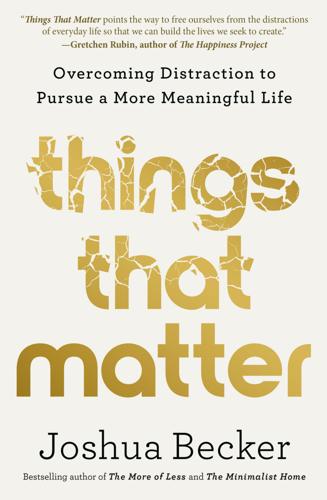
Things That Matter: Overcoming Distraction to Pursue a More Meaningful Life
by
Joshua Becker
Published 19 Apr 2022
And let’s face it, some pursuits in life are worth risk. Five Signs the Fear of Failure Is Keeping You from Your Best Life Left unchecked, the fear of failure will keep us from reaching our fullest potential. So it’s important to know if, in either a big way or a small way, we’re experiencing this kind of fear. Here are five signs the fear of failure may be affecting you: 1. You procrastinate or routinely avoid responsibility. The more anxiety or fear you feel about reaching a goal, the more likely you are to delay action toward achieving it. 2. You don’t take charge of your own future. When the fear of failure is present, initiative wanes.
…
Make no mistake—the distraction of fear may be holding you back in significant ways from your fullest potential. Meanwhile, those closest to you need you to succeed. How Fear of Failure Blocks Your Progress Fear of failure affects us at three points: when we’re starting, when we’re trying again after a failure, and when we’re progressing. (That last one was Randy’s downfall.) Theo Tsaousides, a neuropsychologist and author of Brainblocks, said that in the short run, fear of failure influences the types of goals we pursue and how we go about trying to achieve them. For example, people with fear of failure may… focus their efforts more on preventing losses than on achieving gains avoid situations in which they expect to be evaluated or judged set lower standards for themselves create obstacles to undermine their own efforts to achieve their goals so that later they can blame the obstacles Those are just the short-term consequences of fear of failure.
…
For example, people with fear of failure may… focus their efforts more on preventing losses than on achieving gains avoid situations in which they expect to be evaluated or judged set lower standards for themselves create obstacles to undermine their own efforts to achieve their goals so that later they can blame the obstacles Those are just the short-term consequences of fear of failure. If we let our fear of failure continue, it can do more than prevent some achievements; it can actually have debilitating effects on the kind of person we’re becoming. Tsaousides said, In the long-run, fear of failure could cause even bigger problems that affect a person’s physical and mental health. People with fear of failure often experience fatigue and low energy, they feel emotionally drained, they are more dissatisfied with their lives, they experience chronic worry and hopelessness, and their performance in the relevant domains becomes objectively worse.[6] Name Them Are you nodding your head at these words about how fear can distract you from your potential and purpose?
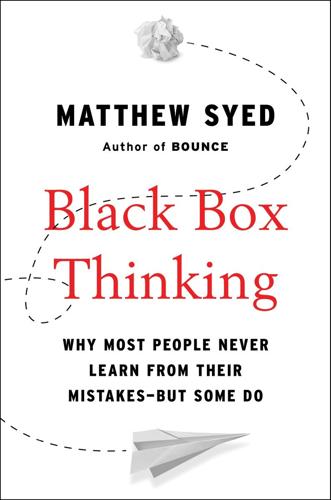
Black Box Thinking: Why Most People Never Learn From Their Mistakes--But Some Do
by
Matthew Syed
Published 3 Nov 2015
Cognitive dissonance occurs when mistakes are too threatening to admit to, so they are reframed or ignored. This can be thought of as the internal fear of failure: how we struggle to admit mistakes to ourselves. The original nozzle is at the top. The final nozzle, after 45 generations and 449 iterations, is at the bottom. It has a shape no mathematician could possibly have anticipated. In sections 5 and 6, we will return to this crucial issue. We will look at how to create a culture where mistakes are not reframed or suppressed, but wielded as a means of driving progress. We will also look at the external fear of failure—the fear of being unfairly blamed or punished—which also undermines learning from mistakes.
…
She showed YouTube clips of famous people practicing: i.e., learning from their own mistakes. She told students about the journeys taken by the likes of David Beckham and James Dyson so they could have a more authentic understanding of how success really happens. Hanbury has said: You’re not born with fear of failure, it’s not an instinct, it’s something that grows and develops in you as you get older. Very young children have no fear of failure at all. They have great fun trying new things and learning very fast. Our focus here is on failing well, on being good at failure. What I mean by this is taking the risk and then learning from it if it doesn’t work. There’s no point in failing and then dealing with it by pretending it didn’t happen, or blaming someone else.
…
They looked at attitudes toward entrepreneurship in twenty innovation-based advanced economies. The results were emphatic. Japanese citizens demonstrated the highest fear of failure. Americans, meanwhile, displayed one of the lowest levels.7 Five years later the same attitudes prevailed. In a survey of seventy different countries, at different stages of development, and facing different challenges, Japan had the highest fear of failure of all of them with the exception of Greece, which was going through the trauma of an externally imposed fiscal consolidation. The United States remained among the lowest.8 In a 2013 survey Japan was rated the lowest in the world in terms of believing that the skills associated with entrepreneurship can be improved over time.
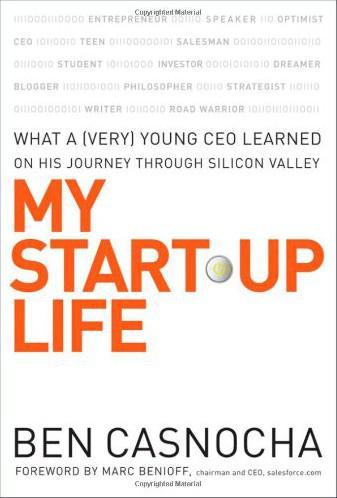
My Start-Up Life: What A
by
Ben Casnocha
and
Marc Benioff
Published 7 May 2007
It’s Called Doing Things. 49 Confronting Failure . . . and Bouncing Back 52 Brainstorm: Building Resilience—A Transferable Quotient Brainstorm: How to Create and Leverage an Advisory Board 57 Hiring an Interim CEO: My First Big Mistake 60 64 Brainstorm: Three Sure Ways to Maximize Luck 68 The Hunt for a COO: Recruiting a Top Team 70 Brainstorm: The Art of Courtship Brainstorm: How to Overcome Fear of Failure 78 85 10.0 Life as a Road Warrior: Making Memorable 90 Sales Pitches 11.0 Brainstorm: Presentations—Worthy of Obsession Brainstorm: Pricing in an Early-Stage Company Brain Trust: Life Is a Sales Call, by Jeff Parker 93 100 105 I’m a Sophomore: Balancing Work, School, and Life 106 Brainstorm: Redefining the Entrepreneurial Lifestyle: Sleep, Nutrition, Exercise Brainstorm: Being a Corporate Athlete Brain Trust: A Life That Works, by Chris Yeh 108 12.0 A Silicon Valley Life: Building Me, Inc.
…
I agreed to a conference call with him later in the week to ostensibly talk about the challenge of obtaining buy-in during the sales process but, more, to continue to make me comfortable. Looking back, I think my fear came from the enormity of the risk, the incomplete information, the emotional challenges inherent in an outsider’s taking over the company—my company. Brainstorm: How to Overcome Fear of Failure I betcha I fail more than you do. Take that! I failed to get good grades in school. I failed to successfully start a radio station in high school. I failed to launch my first business idea, which was going to be a sweepstakes clearinghouse online. I have failed in countless sales presentations, sometimes with people walking out on me.
…
I have failed in countless sales presentations, sometimes with people walking out on me. I failed to lead my basketball team to a league championship. Now, I don’t like dwell on my failures too much since I prefer to take lessons away and then look forward. But I won’t deny that I fail early and fail often. And this is the best way to overcome the fear of failure: fail. Fail at little things. Get good at it. Laugh at yourself. Fail with 100 percent effort—don’t engage in the kind of self-protection that 75 percent effort affords (“Well, if I had given it my all I would have succeeded”). Then when the stakes get higher, you’ll have practice. There will still be fear.

A Guide to the Good Life: The Ancient Art of Stoic Joy
by
William Braxton Irvine
Published 14 Feb 2009
According to Plutarch, Cato did this not because he “sought vainglory”; to the contrary, he dressed differently in order to accustom himself “to be ashamed only of what was really shameful, and to ignore men’s low opinion of other things.”7 In other words, Cato consciously did things to trigger the disdain of other people simply so he could practice ignoring their disdain. Many people are haunted by a fear that in some cases significantly constrains their freedom, namely, the fear of failure. The individuals in question might contemplate doing something that will test their courage, determination, and ability, but then decide against the attempt, with the key factor in their decision being the fear of failure. From their point of view, it is better not even to attempt something than to fail while trying to accomplish it. There are, to be sure, failures that any sensible person will want to avoid—those failures, for example, that result in death or disfigurement.
…
I mentioned above that since becoming a Stoic, I have become a collector of insults. I have also become a collector of butterflies. I like to engage in activities, such as competitive rowing, that give me butterflies simply so I can practice dealing with them. These feelings are, after all, an important component of the fear of failure, so that by dealing with them I am working to overcome my fear of failure. In the hours before a race, I experience some truly magnificent butterflies. I do my best to turn them to my advantage: They make me focus on the race that lies ahead. Once a race has begun, I have the pleasure of watching the butterflies depart. I have also turned elsewhere in my pursuit of butterflies.After I began practicing Stoicism, for example, I decided to learn how to play a musical instrument, something I had never done before.
…
In response to this complaint, I would point out, to begin with, that it might be possible for someone, by spending enough time practicing goal internalization, to develop the ability not to look beyond her internalized goals—in which case they would become her “real” goals. Furthermore, even if the internalization process is a mind game, it is a useful mind game. Fear of failure is a psychological trait, so it is hardly surprising that by altering our psychological attitude toward “failure” (by carefully choosing our goals), we can affect the degree to which we fear it. The Stoics, as I have explained, were very much interested in human psychology and were not at all averse to using psychological “tricks” to overcome certain aspects of human psychology, such as the presence in us of negative emotions.

Taming the To-Do List: How to Choose Your Best Work Every Day
by
Glynnis Whitwer
Published 10 Aug 2015
Neil Fiore, PhD, in his book The Now Habit, describes the perfectionist cycle that leads to procrastination this way: As conflict builds between your internal fears of failure or imperfection and the external demands of others, you seek relief through procrastination. This can lead to a pernicious cycle: Perfectionistic demands lead to → fear of failure → PROCRASTINATION → self-criticism → anxiety and depression → loss of confidence → greater fear of failure which leads to → stronger need to use PROCRASTINATION as a temporary escape.[1] What a hard cycle to break! Thankfully, with God’s help we can identify and address this tendency before it consumes our lives.
…
Luke 18:7 says, “And will not God bring about justice for his chosen ones, who cry out to him day and night? Will he keep putting them off?” Our identity is not defined by our actions, and so we will never be a “failure” when our performance doesn’t match our expectations. When we reassign the source of our value and worth to its rightful place, we will be free from the fear of failure or of the opinions of others. The only thing that matters is what our heavenly Father thinks about us. We can rest knowing we are safe and secure in God’s unconditional love. Let’s Redefine “Failure” I wish we could rewind our lives like the old VCR tapes and go back to the time when we learned that a mistake or a disappointing result equaled failure.

A More Beautiful Question: The Power of Inquiry to Spark Breakthrough Ideas
by
Warren Berger
Published 4 Mar 2014
We’ve seen that companies sometimes use a hypothetical What If question to temporarily remove constraints that can inhibit ambitious thinking (What if cost weren’t an issue—how might we do things differently?), and the same principle applies when people are pursuing new ideas or embarking on change in their lives. Often the biggest constraint is fear of failure. When I asked Sebastian Thrun why the What if you could not fail? question resonated with him, he responded, “People mainly fail because they fear failure.” A central tenet of Thrun’s approach to bringing about radical change, whether that involves reinventing cars or college courses, is “the willingness to fail fast and celebrate failures.”
…
A central tenet of Thrun’s approach to bringing about radical change, whether that involves reinventing cars or college courses, is “the willingness to fail fast and celebrate failures.” Thrun added, “Innovators have to be fearless.” That was the message Dugan conveyed in her TED speech featuring the could-not-fail question. “If you really ask yourself this question,” she told the audience, “you can’t help but feel uncomfortable,” because it becomes clear that fear of failure “keeps us from attempting great things . . . and life gets dull. Amazing things stop happening.” But if you can get past that fear, Dugan said, “Impossible things suddenly become possible.” The notion that we should embrace failure has been a popular credo in Silicon Valley, though more recently the “failure is good” message has gone mainstream,38 showing up in, for example, a 2013 commencement speech by Oprah Winfrey.
…
In fact, the sudden ubiquity of this idea prompted a mini-backlash from a writer on the website Big Think, who used the term failure fetish39 to describe the trend. The writer pointed out that failure, despite all its current good press, is in reality often painful and sometimes devastating. Nonetheless, many are pushing the “embrace failure” message. The writer Peter Sims pointed out40 that fear of failure has been drummed into us, starting early in life: “Your parents wanted you to achieve, achieve, achieve—in sports, the classroom, and scouting or work. Your teachers penalized you for having the ‘wrong’ answers,” Sims wrote in Harvard Business Review. And if anything, it only got worse as you moved into the business world, where, Sims noted, “modern industrial management is still predicated largely on mitigating risks and preventing errors.”

Daughter Detox: Recovering From an Unloving Mother and Reclaiming Your Life
by
Peg Streep
Published 14 May 2017
Keep in mind that everyone—depending on the situation—will shift focus from approach to avoidance from time to time; the difference here is that these are broad underlying tendencies and ways of responding that affect every decision and thought process in every area of life, including work and relationship. Here’s what we know about daughters who are largely motivated by avoidance: Fear of failure—or rather, the shame associated with failure itself—is a driver of this behavior. Often, this simply means that the daughter rejects challenges as too difficult, and change as impossible to effect, so she stays where she is, regardless of whether it makes her happy or not. One study by Elliott and Thrash showed that fear of failure was actually closely connected in college students to mothers’ withdrawal of love when the child had transgressed some rule or had performed in such a way as to displease the mother.
…
SUBSTITUTING APPROACH FOR AVOIDANCE Once you’ve recognized that you’re motivated by avoidance—you tend to dodge tough conversations, worry too much about failing so stay in place, default to pleasing or appeasing instead of speaking up—you have to become your own best cheerleader. Once again, concentrate on disarming your default positions by reminding yourself of their origins and how they undermine your true strengths and abilities. Studies show that parents transmit a fear of failure to their children, which is hardly surprising if you think about it. If your parent defines and loves you for what you do and not for who you are, you are going to be filled with terror at letting her or him down and being shut out. Remind yourself that while avoidance is safe, it also keeps you stuck in place.
…
Journal of Child Psychology and Psychiatry , 2004, vol. 45(7), pp. 1209-1218. Elliott, Andrew J., and Todd M. Thrash. Approach and Avoidance Temperament as Basic Dimensions of Personality. Journal of Personality , 2010, vol. 78(3), pp. 865-906. Elliott, Andrew J., and Todd M. Thrash. The Intergenerational Transmission of Fear of Failure. Personality and Social Psychology Bulletin , 2004, vol. 30(8), pp. 957-971. Gibson, E. J., and Walk, R. D. The “Visual Cliff.” Scientific American , 1960, vol. 202, pp. 67-71. Hazan, Cindy, and Phillip Shaver. Romantic Love Conceptualized as an Attachment Process. Journal of Personality and Social Psychology , 1987, vol. 42(3), pp. 511-524.

Asperger Syndrome: A Love Story
by
Sarah Hendrickx
and
Keith Newton
Published 14 Jun 2007
(AS male) Finding a Partner / 27 It is definitely easier to stay alone, but I have finally mustered the courage to at least attempt a relationship. I am tired of being lonely. (AS male) Respondents were asked whether self-esteem had played any part in their ability to begin or maintain relationships, and whether fear of failure inhibited new attempts to find someone. Someone’s capacity to recover from past failures and move forward varies enormously from person to person. Self-esteem, for most people, is developed through interaction and feedback from others (Hénault 2006) and this is often lacking in those with AS because they have few opportunities to experience positive relationships.
…
(AS male) I generally feel inferior to other people and therefore do not feel worthy of associating with them. (AS male) He (AS) did have problems with trying again after his first marriage. He was alone for ten years. (NT female) Compliments do not increase my self-confidence. I don’t believe them to be true so they have no meaning to me. (AS male) Yes (fear of failure affects ability to attempt a relationship) I would still be alone if I was not set up on a blind date. (AS male) 28 / Love, Sex and Long-Term Relationships During different periods of my life I felt so trapped by fear of sexual failure and inadequacy. The advent of Viagra® made a huge difference, as did some therapy.
…
Allow yourself some time to process your feelings rather than swiftly moving on to find another partner or shutting yourself away fearing another ‘failure’. A relationship ending is not a ‘failure’: people change, circumstances change and the relationship may no longer be able to keep up with those changes: He (AS) chose it (celibacy) after the breakdown of his first relationship and went into (seven) years of mourning. (NT female) Fear of failure or rejection affects ability and desire… I remained alone for seven years. (AS male) My husband (AS) says he was involved with a crazy older woman who pursued him… When it ended my husband pierced his own penis, as some kind of act of what he said would be a commitment to life-long abstinence.

The Alchemist
by
Coelho, Paulo
Published 23 Feb 2015
It was a strange furnace, fueled by firewood, with a transparent flask heating on top. As the Englishman stared out at the desert, his eyes seemed brighter than they had when he was reading his books. “This is the first phase of the job,” he said. “I have to separate out the sulfur. To do that successfully, I must have no fear of failure. It was my fear of failure that first kept me from attempting the Master Work. Now, I’m beginning what I could have started ten years ago. But I’m happy at least that I didn’t wait twenty years.” He continued to feed the fire, and the boy stayed on until the desert turned pink in the setting sun. He felt the urge to go out into the desert, to see if its silence held the answers to his questions.
…
“Don’t give in to your fears,” said the alchemist, in a strangely gentle voice. “If you do, you won’t be able to talk to your heart.” “But I have no idea how to turn myself into the wind.” “If a person is living out his Personal Legend, he knows everything he needs to know. There is only one thing that makes a dream impossible to achieve: the fear of failure.” “I’m not afraid of failing. It’s just that I don’t know how to turn myself into the wind.” “Well, you’ll have to learn; your life depends on it.” “But what if I can’t?” “Then you’ll die in the midst of trying to realize your Personal Legend. That’s a lot better than dying like millions of other people, who never even knew what their Personal Legends were.
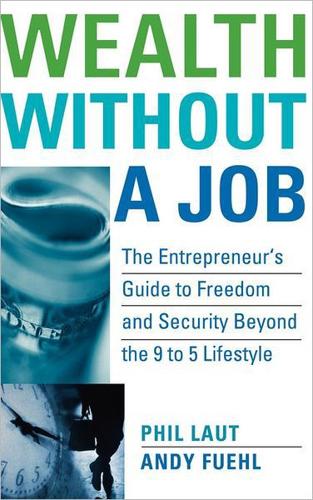
Wealth Without a Job: The Entrepreneur's Guide to Freedom and Security Beyond the 9 to 5 Lifestyle
by
Phil Laut
and
Andy Fuehl
Published 12 Sep 2004
Change does not have to be agony, but it certainly will activate uncomfortable feelings. Remember the Dilbert cartoon that says, “Change is good. You go first”? Fear is chronically linked to change. Unacknowledged fear causes procrastination. At the beginning of an important project, there is fear of failure or fear that you will not be able to reach completion. Toward the end of the project, as success gets closer and more certain, the emotional experience tends to shift to fear about what success may mean. Expect to feel a little uncomfortable about making changes. The discomfort is natural and does not mean that you are doing something wrong.
…
Many people have since told me that their own motivation strategy is similar to what I had originally used. I’ll describe first my original unconsciously developed motivation strategy and then the new one I now use. When I got started on any new goal, I was excited and began moving forward. Soon after the fear of failure set in, but somehow I got over that. Then after a little while I bumped into obstacles and got frustrated and angry. Still, somehow I got through them. Next, as I continued to move forward, lots of distractions appeared. Somehow I moved past those. Then a combination of fear of success and the concern that the results would not be as good as I originally thought came to my awareness.
…
Now think of a goal that you want to achieve. See yourself working on your goal through your own eyes. See the pictures, hear the sounds, and feel the feelings associated with achieving your goal. Now move through your mental image of achieving your goal. It is only natural that you experience some fear of failure. If you don’t, then either your goal is trivial or you are denying your feelings. Consider a larger goal that offers a bigger challenge or slow down so you can focus your awareness more carefully on your current feelings, whichever is appropriate. Now stand on first base (PATIENCE). Notice that the goal is not accomplished yet.
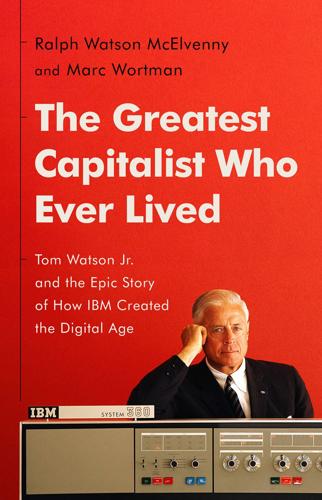
The Greatest Capitalist Who Ever Lived: Tom Watson Jr. And the Epic Story of How IBM Created the Digital Age
by
Ralph Watson McElvenny
and
Marc Wortman
Published 14 Oct 2023
“Cooperation must outrank self-interest” among divisions, departments, and their managers, he insisted. But a decentralized yet cooperative management structure could succeed only by frequent, multi-channel communication up and down within the company; he devoted an extraordinary amount of time to it. He ran IBM with a deep and abiding fear of failure and warned, “Complacency is the most natural and insidious disease of large corporations.” He wanted all managers to share his fear and had outsized expectations of them, enriching many and derailing more than a few careers. But IBM had to win employee loyalty ceaselessly, because, he explained, “No matter how good your people may be, if they don’t really like the business, if they don’t feel totally involved in it, or if they don’t think they’re being treated fairly—it’s awfully hard to get a business off the ground.”
…
“I didn’t realize how much I still needed him emotionally,” he recalled, “the weight of IBM was now all on me.” He believed that if his father were still there, he would not have “felt so burdened.” But if initially overcome by grief and briefly overwhelmed by his responsibility and sense of isolation, from that time on he also felt driven. “Fear of failure became the most powerful force in my life,” he recalled. He did not want to let his father down. From then on, he said, “not a day went by when I didn’t think about the old boy, but the only thing I really worried about was lousing the business up.”35 For short periods, uncontrolled anxiety and crushing bouts of depression would waylay him.
…
When hearing him speak over the loudspeakers placed inside all IBM sites, “You could sense that he cared about people, cared about employees, cared about the customers. That came through,” said Fred Brooks.55 Watson was something of an actor. He understood he possessed great personal attractiveness. He deployed his charisma, his desire to improve the lives of others, his ferocious temper, his fear of failure, and his dictatorial power to impose his will on IBM. He fully expected his commands, once given, to be followed to the letter. When he saw any hesitancy or lack of discipline on the part of an executive, he would explode. Dean Phypers served as his executive assistant through much of the 1960s.
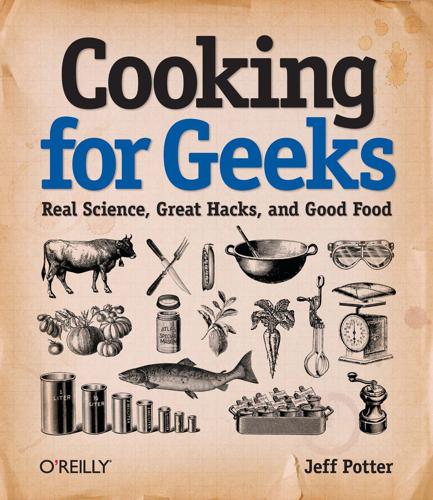
Cooking for Geeks
by
Jeff Potter
Published 2 Aug 2010
Failure in the kitchen is a better instructor than success. Fear of failure is another thoroughly modern American phenomenon. We’re bombarded with images of the perfect Thanksgiving turkey (they probably used a plastic one during the photo shoot), photos of models sporting impossible physiques (thanks, Photoshop), and stories of triumph and success (where they don’t disclose the sad parts and trade-offs). Then when we go to try something, we often find it doesn’t work for us the way it seems to for others. Setbacks. Negative feedback. No wonder there’s so much fear of failure: we’ve set ourselves a bar so high that it simply doesn’t exist.
…
You probably learn more from failure than you do from success because when something goes right you don’t really think about how you did it or why it worked. But when something goes wrong and you have to fix it, then you learn a lot more about what’s happening. Why do you think people have a fear of failure in the kitchen? Because they have a fear of failure in life. Nobody wants to fail. Most people who are cooking at home and trying a new recipe are usually cooking for someone else. And if you screw up in the kitchen, it’s expensive—to ruin a whole thing of food and then you don’t have anything to eat? You have to have a sense of humor in the kitchen.
…
I think there are several reasons for that. One is a lack of confidence that comes from not having grown up around cooks so that you’re afraid to trust your instincts, whereas if you’ve grown up making cookies with your grandmother for your whole life, then a cookie recipe wouldn’t scare you. I think there’s some fear of failure there. I think there’s another thing that probably relates to science and common sense more than people realize: don’t poke at your food while you’re cooking it. If you have something cooking in a hot pan, and the recipe says either sauté it or cook until the onions are wilted or whatever it is, if you get in there with a spoon and you keep moving it around so that the food doesn’t have any chance to come into contact with the heat, whether you’re actually stirring or, as more often happens, poking, that food doesn’t ever cook.
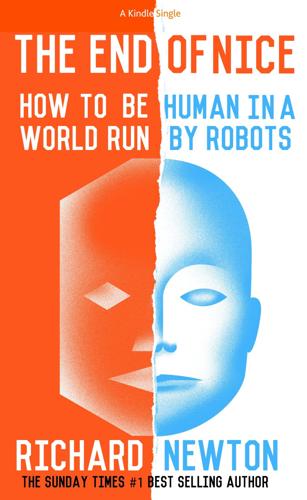
The End of Nice: How to Be Human in a World Run by Robots (Kindle Single)
by
Richard Newton
Published 11 Apr 2015
And a report from the Kauffman Foundation in 2012 showed that immigrant founders were the social group most likely to start companies in either the “innovation and manufacturing related services” (45%) or software (22%).) Perhaps the significant feature of immigrants is that they are already outsiders, so the compulsion to conform with the host society’s nice ways of doing things is tempered by the knowledge that they are different anyway. Unbound by the domesticated fear of failure, it seems that immigrants can step outside the normal zone of nice and predictable. This sense of difference seems to generate a great appetite for the creative and buccaneering life of start-up businesses. What’s true for entrepreneurs is also true for artists. Malcolm Gladwell explained, in the NY Times, that impressionism, the most influential artist movement in history, was the product of misfits.
…
In his study of iconoclastic innovators Berns identifies the following three characteristics as key to being creative and successful: Different perception: Seeing the world differently enables you to imagine new possibilities where others see the same. This of course is a feature of the Anti-Conform mentality and thinking differently. Fear management: As you take risks and buck the convention of “Nice” you must be able to handle the fear of failure, social ostracism, or potential mockery that is highly likely to accompany this different direction. You must, in other words, be comfortable being Anti-Safe. Social intelligence: If you have new ideas, new ways of seeing things and want others to see the value of this – whether it is art or business or something else – then you must be able to persuade people.

The Gifted Adult: A Revolutionary Guide for Liberating Everyday Genius(tm)
by
Mary-Elaine Jacobsen
Published 2 Nov 1999
Mary Rocamora, a therapist who works with gifted and talented adults, writes about this common block. She observes that running away from the idea of exceptional ability is understandable because gifted people “find that description incompatible with their self-concept. For others, their resistance can be attributed to fear of failure to live up to the label. Those clients whose core identity is based in shame, or who polarize from anything that would tend to make them feel superior to others, also have a hard time being called gifted.… [S]hame is the leading cause of death of the potential for actualizing giftedness.” However, Rocamora reminds us, “Once it is explained that giftedness is not identified by high intelligence alone, and that there is a personality profile attendant to giftedness, the resistance begins to yield and a new sense of identification emerges.… Simply knowing one is gifted opens a floodgate of energy.”1 We learned to guard against criticism in ways that disguised us and dumbed-down our insights and ideas.
…
This creative block surfaces nearly every time we try something new. Perhaps everyone marches through life fearing failure. Nevertheless, for gifted adults, these feelings are more intense than simple inhibition or the desire to avoid embarrassment, because we have been led to expect superhuman performance from ourselves. Our fear of failure seems to have two components: fear of humiliation and loss of future opportunities if others see our downs as well as our ups, and fear of subjecting our true Self to scrutiny or even exploitation. These fears are not simple foolishness. Each of us has firsthand knowledge of how sometimes others ask more from us, offering less in return, when they discover what we have to offer.
…
The emerging true Self brings with it so many rewards during its long-awaited return that we seize every opportunity to respect our abilities and ourselves in ways that provide a more suitable creative environment for our authentic Self. Exaggerated demands for instant expertise and mistake-free living soon fade as we build a friendship with our eccentricities and accept the necessity of error in every creative pursuit. In fact, it’s laughable when we admit that our fear of failure is founded on a ridiculous learned pressure to be superhuman, boldly innovative, and a failure-proof achiever all rolled into one. When we set this burden for greatness aside, we discover entirely new avenues for fulfillment. This is when the fun begins, in the playful freedom that emerges from the conscious decision to be not grand, not noteworthy, and not impressed by our gifts and achievements.

The Gifted Adult: A Revolutionary Guide for Liberating Everyday Genius(tm)
by
Mary-Elaine Jacobsen
Published 18 Feb 2015
Mary Rocamora, a therapist who works with gifted and talented adults, writes about this common block. She observes that running away from the idea of exceptional ability is understandable because gifted people “find that description incompatible with their self-concept. For others, their resistance can be attributed to fear of failure to live up to the label. Those clients whose core identity is based in shame, or who polarize from anything that would tend to make them feel superior to others, also have a hard time being called gifted.… [S]hame is the leading cause of death of the potential for actualizing giftedness.” However, Rocamora reminds us, “Once it is explained that giftedness is not identified by high intelligence alone, and that there is a personality profile attendant to giftedness, the resistance begins to yield and a new sense of identification emerges.… Simply knowing one is gifted opens a floodgate of energy.”1 We learned to guard against criticism in ways that disguised us and dumbed-down our insights and ideas.
…
This creative block surfaces nearly every time we try something new. Perhaps everyone marches through life fearing failure. Nevertheless, for gifted adults, these feelings are more intense than simple inhibition or the desire to avoid embarrassment, because we have been led to expect superhuman performance from ourselves. Our fear of failure seems to have two components: fear of humiliation and loss of future opportunities if others see our downs as well as our ups, and fear of subjecting our true Self to scrutiny or even exploitation. These fears are not simple foolishness. Each of us has firsthand knowledge of how sometimes others ask more from us, offering less in return, when they discover what we have to offer.
…
The emerging true Self brings with it so many rewards during its long-awaited return that we seize every opportunity to respect our abilities and ourselves in ways that provide a more suitable creative environment for our authentic Self. Exaggerated demands for instant expertise and mistake-free living soon fade as we build a friendship with our eccentricities and accept the necessity of error in every creative pursuit. In fact, it’s laughable when we admit that our fear of failure is founded on a ridiculous learned pressure to be superhuman, boldly innovative, and a failure-proof achiever all rolled into one. When we set this burden for greatness aside, we discover entirely new avenues for fulfillment. This is when the fun begins, in the playful freedom that emerges from the conscious decision to be not grand, not noteworthy, and not impressed by our gifts and achievements.

Why Has Nobody Told Me This Before?
by
Dr. Julie Smith
Published 11 Jan 2022
Most people are shocked and surprised to find out that self-criticism is more likely to lead to an increase in depression rather than motivation (Gilbert et al., 2010). Self-compassion, on the other hand, treating yourself with kindness, respect, honesty and encouragement after a failure, is associated with increased motivation and better outcomes (Wohl et al., 2010). Try this: If we are not aware of our self-criticism and the impact it is having on our fear of failure and motivation, then it is much harder to change it. Use these prompts to reflect on the way you talk to yourself after a setback. When you experience failure, what does your self-criticism sound like? What emotions are attached to it? Do you suppose that the failure reveals something about your inadequacy or incompetence as a person?
…
We all want to be enough. We all want to be acceptable and failure is a sign that maybe we weren’t enough this time. It is not only our relationship with our own failure that needs to change, but also how we respond to the failure of others. You don’t have to spend too long on Twitter to develop an overwhelming fear of failure. Say the wrong thing in a tweet and a collective army of tweeters invade and hound you with verbal abuse, demanding you be pulled down from whatever heights you may have climbed in your lifetime. I have seen this happen to people who make simple mistakes in their use of language and immediately apologize for it.
…
For those who tend to self-attack after any failure, big or small, any signs of potential failure will likely lead to a spike in the stress response. We all have a limited capacity for attention, and when we need to perform under stressful conditions we need to take full control of that spotlight and focus on what is going to help us face the challenge. To overcome that fear of failure in the moment and that preoccupation with everything that could go wrong, we need to immerse ourselves in a narrow focus on the process, leaving no space for worrying thoughts about potential outcomes. This is where it can help to practise ahead of time, if it is possible given the situation.
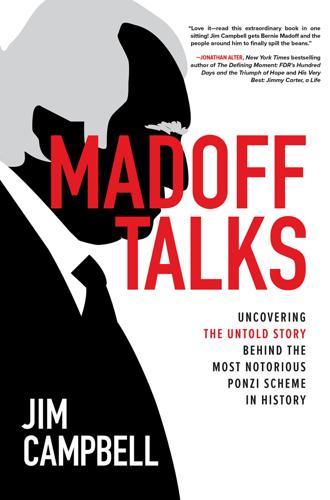
Madoff Talks: Uncovering the Untold Story Behind the Most Notorious Ponzi Scheme in History
by
Jim Campbell
Published 26 Apr 2021
He wanted to be the person that everyone had to go to when they needed something. He wanted to be Uncle Bernie.”40 After all, he let Picower make seven times what he took for himself. Ike Sorkin, Madoff’s attorney, tried to figure out his client: “No it was not greed. That’s the amazing thing. Was it ego? Was it fear of failure? I think fear of failure and acceptance. And third, he didn’t know how to get out of it.”41 There was a recklessness to Bernie’s noted generosity. He was doling out loans at the same time he was running out of money. I believe it went back to needing to be a people pleaser, to always being able to deliver.
…
On the other hand, the investment advisory business was a bad fit for Bernie’s obsessive need for control, considering he couldn’t control the markets, couldn’t disappoint customers, couldn’t accept losses, and wouldn’t deal with investors or feeders who actually wanted to know what he was doing. He was out front in the industry as a market maker In the Ponzi scheme it was all paranoid secrecy. The control and secrecy likely hinted that he must have subconsciously known all along it wouldn’t end well. Was the obsessive control driven by a fear of failure rooted in his father’s repeated business failures? He told me: “Jim, you ask whether there is a connection between the failure of my father’s sporting goods business and my situation. Quite frankly, I am not sure. Surely like me, he attempted to fulfill his obligations by taking a great risk.
…
Bernie’s fatal character flaws gravely wounded 16,000 US investors and potentially 720,000 more international investors. These flaws were literally fatal for Mark and Andrew Madoff, French aristocrat René-Thierry Magon de La Villehuchet, and British war hero Willard Foxton Sr. Madoff’s egotism, narcissism, need for approval, fear of failure, and inability to accept losses of any nature deluded him into thinking there was no way out. It was a Greek tragedy of hubris that begat an affinity crime against his own Jewish network. At the time, Bernie told me: “My health is so-so. I have stage four kidney disease and a stent in my main artery of my heart.”43 It now appears his health is worse than so-so.
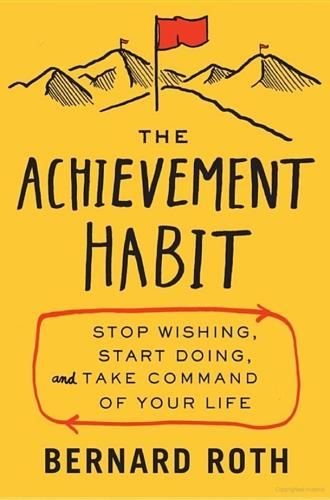
The Achievement Habit: Stop Wishing, Start Doing, and Take Command of Your Life
by
Bernard Roth
Published 6 Jul 2015
My former colleague Rolf Faste used to have participants in our workshop take the clown’s ta-da bow when they messed up. It did wonders; it made it okay to show one’s mistakes and not try to cover them up. The accepting-repeated-failure route, if used with an open mind, can lead to much better solutions than does a fear of failure. A system that punishes failures rather than accepting that they occur on the road to success squelches creativity. People tend to accept the notion that failure can be productive as an abstraction, yet unsurprisingly, in reality they find it difficult to accept failure unless they’re in an environment that supports this notion.
…
Success opens the door for increased self-esteem. If it comes early in life, it can do much to shape your future direction. If it does not come early, it can still be achieved. It is important to attempt different modalities and not to remain stuck in one that does not nurture and fulfill you. Fear of failure often keeps us in an unsatisfying routine. Instead of daydreaming about change, reach out and attempt new things. Small steps with accompanying successes lead to major life transitions. YOUR TURN Did you have a youthful formative experience of accomplishing something on your own? Think back to the essence of that experience.
…
THE MAIN CONSTRUCTS OF this chapter are easy to test in your own life: Be honest and notice the differences between your self-image and the ways you actually act. Notice the difference between intention and attention, between trying to do something and actually doing it. Finally, notice how the habit of acting on your dreams builds from direct experience, and from overcoming the fear of failure. CHAPTER 6 Sincerity—if you can fake that, you’ve got it made. —George Burns The way we communicate with people has a significant effect on their opinions of us. It’s not just about what we say, but about how we say it. Becoming better communicators can heal relationships, lead to better job opportunities, and enable us to reach wider audiences with whatever messages we want to share.
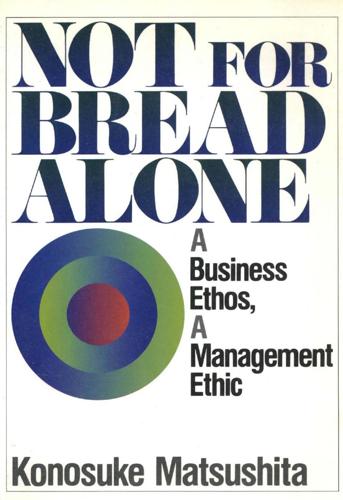
Not for Bread Alone: A Business Ethos, a Management Ethic
by
松下幸之助
Published 14 Jun 1984
No Such Thing as Failure You are about to make a decision that could change the whole direction of your life. How to approach it? Virtually everyone comes to such a critical juncture at least once. You cannot make that decision casually, for it affects many others around you. To plunge off in the wrong direction may cost them as dearly as it costs you. On the other hand, to let the fear of failure immobilize you will stop you from ever trying anything new, and yours will be the loss in personal growth and fuller human relations. In June 1917, at the age of twenty-two, I resigned from the Osaka Electric Light Company (now Kansai Electric Power Company) where I had worked for seven years, to start my own business.
…
And so, fued by the need to produce something positive myself, I left an unusually good job with a prominent fIrm and started out on my own. Naturally, after seven years, I still felt a strong attachment to the company, and I was also somewhat uneasy about the future. Would I be able to make a go of it? But, despite my anxiety, I was a twenty-two-year-old full of youthful optimism, and my hope of success was stronger than my fear of failure. I was excited, heading into a new world and new experience. Moreover, in the chance-which I thought was very small-that I didn't make it independently, I could always go back to myoid company and work there for life. That knowledge sustained me in my determination to keep going, once I had started.
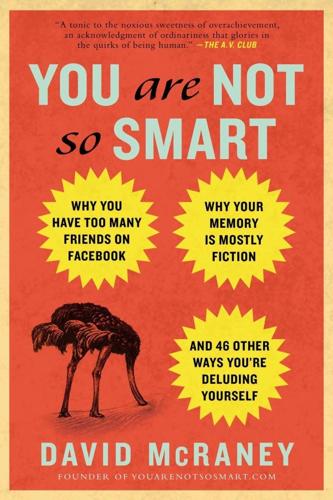
You Are Not So Smart
by
David McRaney
Published 20 Sep 2011
It could be as epic as writing a book or directing a major motion picture, or it could be something more pedestrian like passing a final exam or delivering an important speech to your corporate boss. Naturally, some doubts will float through your mind whenever failure is possible. Sometimes, when the fear of failure is strong, you use a technique psychologists call self-handicapping to change the course of your future emotional state. Self-handicapping is a reality negotiation, an unconscious manipulation, of both your perceptions and those of others, that you use to protect your ego. Like its cousins sour grapes, in which you pretend you don’t want what you can’t have, and sweet lemons, in which you convince yourself something unpleasant is actually not so bad, self-handicapping is what psychologists call an anticipatory rationalization.
…
When they then gave them the chance to take what they were told was either a performance-inhibiting or a performance-enhancing drug before a second exam, the majority took the inhibiting drug. The drug was fake, but the behavior was real. Berglas and Jones later said their research showed when you are successful but don’t know why, you wonder inside if you are truly capable of success. The stakes on future tests of ability are raised, but so are the fears of failure. Instead of making excuses after the fact that feel like lies, you create conditions ahead of time so the excuses can be real. You might wear inappropriate clothes to a job interview, or pick a terrible character in Mario Kart, or stay up all night drinking before work—you are very resourceful when it comes to setting yourself up to fail.
…
The reasons are unclear. Perhaps men feel more pressure from society to be seen as competent, or maybe men are more likely to associate external task success with an internal sense of worth. The reasons are as yet unknown, but the tendency is clear. Men use self-handicapping more than women to assuage their fears of failure. Whenever you venture into uncharted waters with failure as a distinct possibility, your anxiety will be lowered every time you see a new way to blame possible failure on forces beyond your control. The next time you face a challenge, remember you are not so smart, and start preparing for it now. 42 Self-Fulfilling Prophecies THE MISCONCEPTION: Predictions about your future are subject to forces beyond your control.

Late Bloomers: The Power of Patience in a World Obsessed With Early Achievement
by
Rich Karlgaard
Published 15 Apr 2019
On a late summer day, I sat down with Dweck to discuss the changes she’s seen in her years of teaching college freshmen. “I think society is in a crisis,” she told me. “Kids seem more exhausted and brittle today. I’m getting much more fear of failure, fear of evaluation, than I’ve gotten before. I see it in a lot of kids; a desire to play it safe. They don’t want to get into a place of being judged, of having to produce.” And these are the kids who were admitted to Stanford—these are the early “winners” in life. The optimism of youth, it seems, has been warped into a crippling fear of failure. But it gets worse. Rates of teen depression and suicide have climbed sharply since 2011. This is especially tragic, because on most counts young people’s habits are improving.
…
Just when we should be encouraging kids to dream big, take risks, and learn from life’s inevitable failures, we’re teaching them to live in terror of making the slightest mistake. Forging kids into wunderkinds is making them brittle. Journalist Megan McArdle has written extensively about the fear of failure that plagues today’s young adults. In 2014 she recounted the following exchange with an ambitious high schooler: The other day, after one of my talks, a 10th-grade girl came up and shyly asked if I had a minute. I always have a minute to talk to shy high school sophomores, having been one myself.
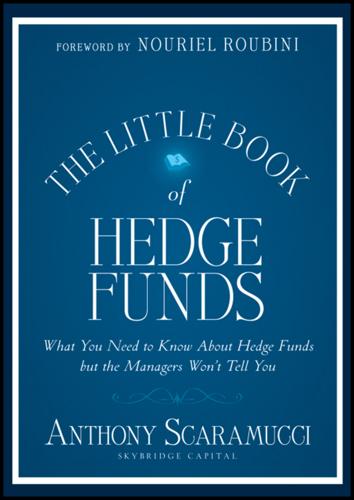
The Little Book of Hedge Funds
by
Anthony Scaramucci
Published 30 Apr 2012
Like a live performer whose demeanor swings from excited anticipation to paralyzing fear the moment he sets foot on stage, the stock market gyrates based upon human emotions and the impulses of greed and fear. Why? 1. Investors are not fully rational. In pursuit of glamour, fortune, and fame or fear of failure, the minds of investors can be clouded by overly emotional thoughts that negatively affect their decision-making abilities. 2. Investors are overconfident. They have a tendency to operate under the belief that they are able to pick winning stocks and time the market perfectly. There is no real evidence to support this, but alas market hubris abounds. 3.
…
Here’s the list of attributes and skills that I have learned from life and business experience that the next generation of entrepreneurs should have: Be confident in yourself as early in your career as possible. Prepare for—and always expect—the unexpected. Think about the life you want to lead and then determine the steps you need to take to get there. Take risks; don’t let your fear of failure stop you. Don’t let failures or setbacks derail your confidence. Always look for new opportunities for learning. If you come at the game from this perspective, you will always be a winner regardless of the outcome. A Quick Pop Quiz Before I dispense advice on how to get a job at a hedge fund, I urge you to think long and hard about whether your personality is suited for this high-paced, intense, live-or-die-by-your-own-performance lifestyle.
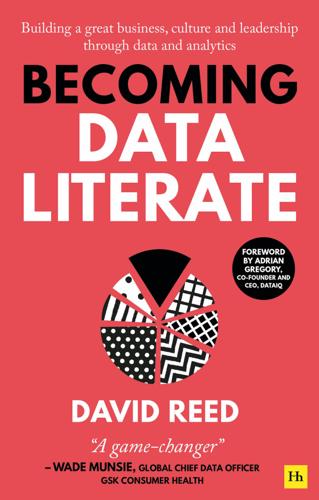
Becoming Data Literate: Building a great business, culture and leadership through data and analytics
by
David Reed
Published 31 Aug 2021
As board members increasingly possess a high level of data literacy and cognisance of what is possible, the distinction between the CDO and the C-suite will dissolve. A new vision will be necessary for what the CDO brings to the table. For business strategy – test-and-learn will become part of the working method across the enterprise, not just within data science and analytics. There will be no fear of failure, but rather a desire to fail fast in order to identify successful strategies. Ensuring engagement by the board with external innovators, especially those outside of the sector or domain, should be part of the leadership provided by the CDO. For value creation – if the data office has tied its actions to bottom-line impacts, the CDO will need to step up as a business leader, taking ownership and responsibility for value creation at the deepest level.
…
If you don’t try, you’ll never know… Fear of rejection – the opinion of others may be a factor in the individual’s inner voice telling them not to try something new just in case they get judged negatively. This is where the data team has a major role to play in creating a supportive culture that reassures individuals they are accepted. If the data leader can persuade the organisation to lose its own fear of failure and adopt test-and-learn as a working practice, so much the better. Setting career goals Stretch targets and moving into the challenge zone are not just for data projects – they can be personal objectives. Much depends on how the individual views their career and the goals they have set for themself.

Uncharted: How to Map the Future
by
Margaret Heffernan
Published 20 Feb 2020
What I saw where I worked before at Bain [the management consulting company] is similar kinds of structures of functionaries – nomenklatura – that perpetuate old regimes that want to be idolised and idealised: lots of deference to the past, lots of loud loyalty. Of course they dream of radiant futures . . . but they won’t try to make them. I don’t know how much is fear of loss, fear of risk. Is the fear of failure greater than the hope for the future . . . ?’ Everyone I’ve talked to within John Lewis loves the company and embraces the idea of experiments. But executives easily become mired in what Fiona Wilson would call ‘the day job’ and nervous of trying something they can’t prove ahead of doing it.
…
Nor do they seek consensus, because that may be impossible; there may simply not be a perfect solution. So if no one has a principled objection to a proposal, it can be supported. That way, if it turns out not to work, the topic can be revisited without recrimination. Trial and error is how Buurtzorg and its nurses learn. Without a fear of failure, better ideas and experiments emerge. More recently, de Blok experimented with the insurance companies that pay for the nursing, trying to create a contract simpler than the current hundred-page monstrosity. They got it down to six. The police and fire services asked if a Buurtzorg approach could be applied to their work.
…
Getting started doesn’t determine the ending; much still remains open and contingent, a matter of both invention and discovery. That means the work can continue to evolve and adapt over time – but it also means that at no point is the work without worry. So it takes stamina. America’s great documentary maker Frederick Wiseman acknowledges that there is always anxiety ‘that it’s not going to work, a fear of failure. But that anxiety is a motor to get it done.’ Tracey Emin talks about being intimidated by canvases, her need sometimes to draw as a kind of warm-up to overcoming her trepidation. Some of Emin’s paintings sit for years, she says, waiting to be finished or developed – or changed completely: ‘Hurt Heart was a great painting, with two small figures holding each other and it was really really sweet.
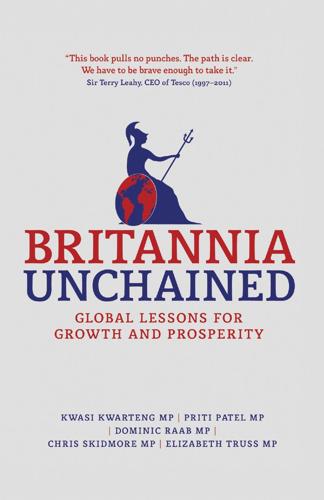
Britannia Unchained: Global Lessons for Growth and Prosperity
by
Kwasi Kwarteng
,
Priti Patel
,
Dominic Raab
,
Chris Skidmore
and
Elizabeth Truss
Published 12 Sep 2012
If, as Malcolm Gladwell would have it, a successful product requires ‘threat and constraint’, Israel would seem to be the ideal proof of this. Perhaps, then, part of the secret to Israel’s success lies simply in demographics and geography. Either way, the Israeli miracle shows what can be achieved when the right to take risks is set free. Fear of Failure By contrast, Britain is becoming an increasingly risk-averse society. This is most visible in the growth of what might be termed the Buccaneers 87 health and safety industry, but its pernicious effects intrude into all sorts of corners of our national life. Sociologist Frank Furedi writes compellingly about a culture of fear, which undermines the natural human impulse to take risks.
…
Ive was born in Chingford at 1967, but left London in 1992 to move to California and take up a position at the computer giant. While at Apple, he designed perhaps the most influential gadgets of the last 20 years: the iMac, the iPod, the iPhone and the iPad. When asked in early 2012, what made him make the move, he told reporters that it was California’s sense of optimism, the ability to play with ideas without fear of failure.30 92 Britannia Unchained Clearly, the examples of Lehman Brothers, General Motors and Enron suggest that failure and bankruptcy are not without their downsides. As journalist Tim Harford suggests in his 2011 book, Adapt: Why Success Always Starts with Failure, the key is to make sure that failure is survivable.31 In the early stages of a project, failure need not be a disaster.
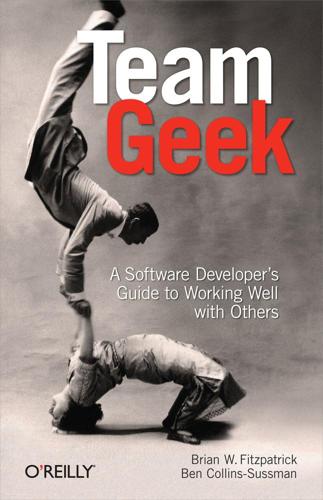
Team Geek
by
Brian W. Fitzpatrick
and
Ben Collins-Sussman
Published 6 Jul 2012
Your Life Under a Bad Manager It’s hard to know where to start when describing the traits of a bad manager—entire movies and TV shows have been created solely to lampoon the bad managers of the world. Most of us have had at least one bad manager in our careers, and a bad manager can make life on even the greatest team a living hell, so we’re going to cover just a few of the traits of a bad manager that typically affect engineers. Fear of failure is one of the most common traits of bad managers. This insecurity tends to make them very conservative, which is antithetical to the work style of the typical engineer. If your manager doesn’t want you to take risks, there is little opportunity for you to inject your own ideas into your product and you’ll usually wind up implementing (by rote) the product that someone else designed. [45] Oftentimes the insecure manager will insist on inserting herself into any interaction you have with people outside your team, thereby preventing you from speaking directly to other teams without “going through the chain of command.”
…
attention, protecting, Identifying the Threat–Not Respecting Other People’s Time, Identifying the Threat, Not Respecting Other People’s Time author tags in source code files, Putting Your Name in Source Code Files (a.k.a., the “Author Tags” Issue)–Putting Your Name in Source Code Files (a.k.a., the “Author Tags” Issue), Putting Your Name in Source Code Files (a.k.a., the “Author Tags” Issue) autonomy, motivation through, Intrinsic Versus Extrinsic Motivation–Final Thoughts, Final Thoughts B behavior patterns for leaders, Lose the Ego–Lose the Ego, Lose the Ego, Be a Zen Master, Set Clear Goals, Be Honest–Be Honest, Be Honest, Be Honest, Track Happiness, Track Happiness, Track Happiness being honest, Be Honest–Be Honest, Be Honest, Be Honest losing the ego, Lose the Ego–Lose the Ego, Lose the Ego setting clear goals, Set Clear Goals tracking happiness, Track Happiness, Track Happiness, Track Happiness Zen management technique, Be a Zen Master Boswell, Dustin, Code Comments bug trackers, Paranoia, Managing Your Relationship with Users for users, Managing Your Relationship with Users overentitlement example, Paranoia bus factor, Hiding Is Considered Harmful, Fortifying Your Team C Cain, Susan, Culture and People call to action, How to Ask a Busy Executive for Anything … via Email–How to Ask a Busy Executive for Anything … via Email, How to Ask a Busy Executive for Anything … via Email, How to Ask a Busy Executive for Anything … via Email carrot and stick method of management, @Deprecated Manager catalysts, leaders as, Be a Catalyst–Be a Teacher and a Mentor, Be a Teacher and a Mentor chance opportunities, Luck and the Favor Economy–Luck and the Favor Economy, Luck and the Favor Economy Cheney, Dick, Create Trust and Delight code comments, Code Comments, Code Comments, Code Comments code reviews, Require Code Reviews for Every Commit commenting code, Code Comments–Putting Your Name in Source Code Files (a.k.a., the “Author Tags” Issue), Code Comments, Code Comments, Putting Your Name in Source Code Files (a.k.a., the “Author Tags” Issue) commits, code reviews and, Putting Your Name in Source Code Files (a.k.a., the “Author Tags” Issue) communication, Communication Patterns of Successful Cultures, Communication Patterns of Successful Cultures, High-Level Synchronization–Design Docs, The Mission Statement—No, Really, Efficient Meetings, Working in a “Geographically Challenged” Team, Design Docs, Day-to-Day Discussions, Day-to-Day Discussions, Mailing Lists, Mailing Lists, Using an Issue Tracker, Communication as Part of Engineering–It Really Is About the Code After All, Code Comments, Putting Your Name in Source Code Files (a.k.a., the “Author Tags” Issue), Have Real Test and Release Processes, It Really Is About the Code After All, It Really Is About the Code After All, It Really Is About the Code After All in day-to-day discussions, Day-to-Day Discussions, Mailing Lists, Mailing Lists in issue tracking, Using an Issue Tracker in software development, Communication as Part of Engineering–It Really Is About the Code After All, Code Comments, Putting Your Name in Source Code Files (a.k.a., the “Author Tags” Issue), Have Real Test and Release Processes, It Really Is About the Code After All in synchronizing goals, High-Level Synchronization–Design Docs, The Mission Statement—No, Really, Efficient Meetings, Design Docs, Day-to-Day Discussions Subversion project motto about, Working in a “Geographically Challenged” Team team culture and, Communication Patterns of Successful Cultures, Communication Patterns of Successful Cultures, It Really Is About the Code After All, It Really Is About the Code After All complexity, hiding, Hide Complexity–Managing Your Relationship with Users, Hide Complexity, Managing Your Relationship with Users compliment sandwich technique, Be Honest–Be Honest, Be Honest, Be Honest connectors in organizations, Seek Powerful Friends consensus building, Be a Catalyst–Be a Catalyst, Be a Catalyst, Identifying the Threat–Perfectionism, Perfectionism leaders and, Be a Catalyst–Be a Catalyst, Be a Catalyst poisonous people and, Identifying the Threat–Perfectionism, Perfectionism constructive criticism, Learn to Both Deal Out and Handle Criticism, Culture and People, Culture and People, Lose the Ego criticism, Learn to Both Deal Out and Handle Criticism, Culture and People, Lose the Ego, Be a Catalyst constructive, Learn to Both Deal Out and Handle Criticism, Culture and People, Lose the Ego public, Be a Catalyst customer service, Don’t Be Condescending, Be Patient–Create Trust and Delight, Create Trust and Delight condescending attitudes toward, Don’t Be Condescending patience and, Be Patient–Create Trust and Delight, Create Trust and Delight D day-to-day discussions, Working in a “Geographically Challenged” Team, Mailing Lists instant messages, Working in a “Geographically Challenged” Team mailing lists, Mailing Lists decision-making process, Culture and People, Culture and People defensive work, Learn to Manage Upward delegating work, Track Happiness delight, creating, Create Trust and Delight–Remember the Users, Create Trust and Delight, Remember the Users design by committee, The Bad Organization design documentation, Design Docs distributed teams, Working in a “Geographically Challenged” Team E Edison, Thomas, Fail Fast; Learn; Iterate egos, Culture and People, Lose the Ego–Lose the Ego, Lose the Ego, Not Respecting Other People’s Time losing the ego, Lose the Ego–Lose the Ego, Lose the Ego of poisonous people, Not Respecting Other People’s Time team culture and, Culture and People email etiquette, Fortifying Your Team energy creature, feeding, Don’t Feed the Energy Creature extrinsic motivation, Intrinsic Versus Extrinsic Motivation–Final Thoughts, Final Thoughts F face-to-face conversations, Working in a “Geographically Challenged” Team failure, Hiding Is Considered Harmful, Fail Fast; Learn; Iterate, Be a Catalyst, Be a Catalyst, Be a Catalyst, Your Life Under an Ideal Manager Google motto about, Fail Fast; Learn; Iterate importance of, Hiding Is Considered Harmful public criticism of, Be a Catalyst risk taking and, Be a Catalyst, Be a Catalyst, Your Life Under an Ideal Manager favor economy, luck and, Luck and the Favor Economy–Luck and the Favor Economy, Luck and the Favor Economy, Luck and the Favor Economy fear of failure, Your Life Under a Bad Manager feedback, Hiding Is Considered Harmful, Be Honest–Be Honest, Be Honest, Be Honest compliment sandwich in, Be Honest–Be Honest, Be Honest, Be Honest programmers and, Hiding Is Considered Harmful first impressions, Pay Attention to First Impressions, Underpromise and Overdeliver, Consider Barrier to Entry flipping the bozo bit, Identifying the Threat focus, The Bad Organization, Learn to Manage Upward in bad organizations, The Bad Organization on product launches, Learn to Manage Upward Focus on the user motto, How Usable Is Your Software?
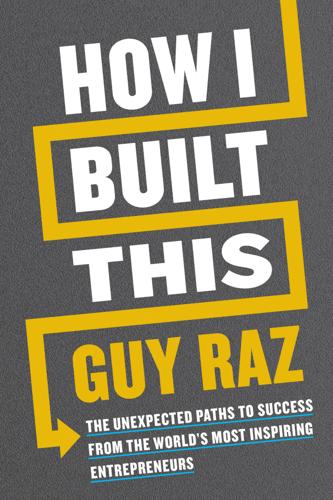
How I Built This: The Unexpected Paths to Success From the World's Most Inspiring Entrepreneurs
by
Guy Raz
Published 14 Sep 2020
That is the real recipe for success in the iterative process, and one every creator needs to get right if they want to turn their idea not just into a product, but into a business that is poised for real, sustained growth. Part II The Test(s) Most of the entrepreneurs I’ve interviewed have a healthy fear of failure. They know it’s possible at any moment. Even likely. When it happens—and believe me it will happen—they certainly don’t like it. It’s not comfortable, and it’s definitely not fun. But that never stops them. Good entrepreneurs—successful ones—have a way of not letting their fear of failure slow them down. They are defined instead by a seemingly inextinguishable belief in their idea—the idea that has pulled them out of their comfort zone and driven them across the unknown to explore new possibilities.
…
I just hope you’re able to find something in these pages that leaves you with a sense of both possibility and relief, since almost every story in the book describes a real problem that needed to be solved and an entrepreneur who found a way to solve it. My hope in structuring the book in this way is to show anyone who has the courage to pursue an idea but is struggling with the fear of failure, that every mistake that could be made in business has been made, that solutions to your problems have already been found—many of them by the founders you will meet in the pages to come—and that to learn from other people’s mistakes instead of going through them yourself is, perhaps, the only shortcut that exists in all of entrepreneurship.

The Power of Now: A Guide to Spiritual Enlightenment
by
Eckhart Tolle
Published 1 Jan 1997
Now remember that an emotion is the body’s reaction to your mind. What message is the body receiving continuously from the ego, the false, mind-made self? Danger, I am under threat. And what is the emotion generated by this continuous message? Fear, of course. Fear seems to have many causes. Fear of loss, fear of failure, fear of being hurt, and so on, but ultimately all fear is the ego’s fear of death, of annihilation. To the ego, death is always just around the corner. In this mind-identified state, fear of death affects every aspect of your life. For example, even such a seemingly trivial and “normal” thing as the compulsive need to be right in an argument and make the other person wrong — defending the mental position with which you have identified — is due to the fear of death.
…
Yet on a deeper level you are already complete, and when you realize that, there is a playful, joyous energy behind what you do. Being free of psychological time, you no longer pursue your goals with grim determination, driven by fear, anger, discontent, or the need to become someone. Nor will you remain inactive through fear of failure, which to the ego is loss of self. When your deeper sense of self is derived from Being, when you are free of “becoming” as a psychological need, neither your happiness nor your sense of self depends on the outcome, and so there is freedom from fear. You don’t seek permanency where it cannot be found: in the world of form, of gain and loss, birth and death.
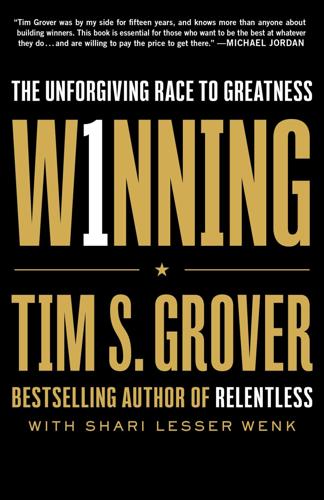
Winning: The Unforgiving Race to Greatness
by
Tim S. Grover
and
Shari Wenk
Published 17 May 2021
Before every game, you’d see MJ alone, head down, chewing his gum, having a private conversation with himself. He felt the same nerves you might feel before you’re about to face a challenge. But he never doubted that he would perform at his best. Kobe felt it as well. “I have self-doubt,” he said in an interview. “I have insecurity. I have fear of failure. I have nights when I show up at the arena and I’m like, ‘My back hurts, my feet hurt, my knees hurt. I don’t have it. I just want to chill.’ We all have self-doubt. You don’t deny it, but you also don’t capitulate to it. You embrace it.” You embrace it. You trust yourself to handle whatever you’re dealing with, and don’t allow your fear to escalate into uncontrollable doubt.
…
I’m gonna kill it this year, I’m crushing it! They start the year drunk, hungover, too tired to get up… but it’s “their year.” They haven’t done one thing, have no real plans suggesting the new year will be any more productive and successful than the last, but they’re already celebrating. And by February, they feel that familiar fear of failure, and they give up. Again. When you’re truly resilient, giving up is never an option. I’ve been blessed to know many champions, and I’m not talking about superstar athletes. These are ordinary people who are anything but ordinary, whose resilience has allowed them to accomplish amazing things, and face challenges and obstacles that seem insurmountable.
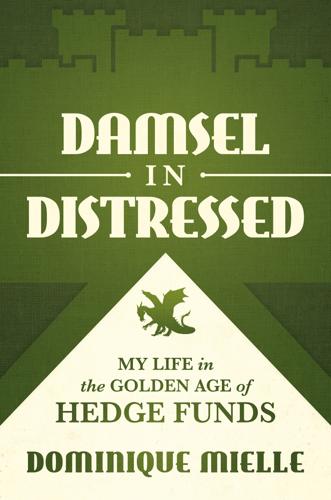
Damsel in Distressed: My Life in the Golden Age of Hedge Funds
by
Dominique Mielle
Published 6 Sep 2021
A hedge fund does not get paid incentive fees until it reaches its high watermark (meaning it has recouped the money it has lost) and produces new profit. I went to work every day not being able to do anything but count my paper losses and feel terrible. Perhaps the experience was made worse by my gender. Some research8 points to women being more fearful of failure, of experiencing shame and embarrassment or of devaluing their self-worth. But here is the great market equalizer: 99 percent of people around me were men, and they had lost just as much, if not much more, money than I. So what if they just felt better about it than I did? That would not help investors.
…
Zajac, and David Stark, “Ethnic Diversity Deflates Price Bubbles,” Proceedings of the National Academy of Sciences of the United States of America, Nov. 16, 2014, https://www.pnas.org/content/111/52/18524 8 Krista L. Nelson, Danielle N. Newman, Janelle R. McDanial, and Walter C. Buboltz, “Gender Differences in Fear of Failures amongst Engineering Students,” International Journal of Humanities and Social Science, August 2013, http://www.ijhssnet.com/journals/Vol_3_No_16_Special_Issue_August_2013/2.pdf 9 Aggarwal and Boyson. 10 Victoria L. Brescoll, Erica Dawson and Eric Luis Uhlmann, “Hard Won and Easily Lost: The Fragile Status of Leaders in Gender-Stereotype-Incongruent Occupations,” Psychological Science, November 2010, https://www.jstor.org/stable/41062426?
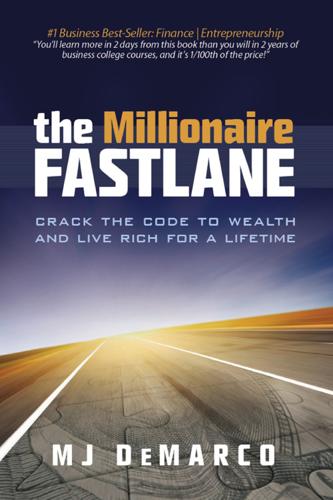
The Millionaire Fastlane: Crack the Code to Wealth and Live Rich for a Lifetime
by
Mj Demarco
Published 8 Nov 2010
While you can't build cardiovascular endurance without sweating, you can't experience success without failure. Failure is simply a natural response to success. If you avoid failure you will also avoid success. You can't drive the road to wealth with the brakes engaged. You have to take risks. You have to get uncomfortable. You have to get out there and fail. What causes this fear of failure? Fear of failure is attributed to an overestimated worst-case consequence analysis. What is the absolute worst that could happen and the probability of it happening? You fail at business and have to go back to work? Big deal. When you resist societal headwinds, you will sweat! Take calculated risks.
…
Each time, I brushed it off, reanalyzed, learned, adjusted, and tried again. The brakes were disengaged, baby! I once heard, “A smart man learns from his mistakes. A wise man learns from the mistakes of others.” You can learn from my failures. I didn't learn the Fastlane overnight. I found it by the light of failure. Fear of failure is normal, yet failure creates experience and experience breeds wisdom. Fastlane Risks Can Have Lifelong Returns Bill Gates is a one-hit wonder. He built one company and made billions. One company was all it took. Some might say I'm a one-hit wonder. Great. I'd rather be a one-hit wonder than a no-hit wonder.

The Best Interface Is No Interface: The Simple Path to Brilliant Technology (Voices That Matter)
by
Golden Krishna
Published 10 Feb 2015
You’d be a running-water-loving, cold-food-eating, electricity-hogging idiot! Those dated thoughts may sound insane to you now, but in more modern times we’ve had our fears. Y2K: Oh no, two digits! Online banking: My money in cyberspace!? Leaping into the unknown is scary. And relying on a new means of getting things done means the fear of failure will be prevalent. Examining that fear of failure—a consideration of edge cases—can be limiting and often unproductive during early production ideation, but it is essential to consider when putting together the final stages of anything. Some of the largest and most ambitious projects in recent human history have ended in disaster because of an inability to see important details upon executing the ideas.

Designing Your Life: How to Build a Well-Lived, Joyful Life
by
Bill Burnett
and
Dave Evans
Published 12 Sep 2016
Sometimes it is more comfortable to hold on to our familiar, failed approach to the problem than to risk a worse failure by attempting the big changes that we think will be required to eliminate it. This is a pretty common but paradoxical human behavior. Change is always uncertain, and there is no guarantee of success, no matter how hard you try. It makes sense to be fearful. The way forward is to reduce the risk (and the fear) of failure by designing a series of small prototypes to test the waters. It is okay for prototypes to fail—they are supposed to—but well-designed prototypes teach you something about the future. Prototypes lower your anxiety, ask interesting questions, and get you data about the potential of the change that you are trying to accomplish.
…
But when you take this approach to designing your life, you are going to experience failure. In fact, you are going to “fail by design” more with this approach than with any other. So it’s important to understand what “failure” means in our process, and how to achieve what we call failure immunity. The fear of failure looms so large in people’s experience of their lives. It seems to relate to a fundamental perception in the way people define a good or a bad life. She was a success (yay, good!). He was a failure (boo, bad!). When you look at it that way, no one wants to be a failure. We imagine that at our funerals there will be some external judge (or some imagined life tenure committee) who will pass judgment on whether we managed to succeed or ended up failing.

Chasing Slow: Courage to Journey Off the Beaten Path
by
Erin Loechner
Published 10 Jan 2017
Erin: “No, I didn’t forget! I had a lot going on.” Ken: “You forgot.” Erin: “I did not!” I did. But I could feel that tiny sharp pencil hovering over the scorecard—Did she remember to serve her husband today?—and I couldn’t bear the majestic, graphite scrawl of God’s handwriting: No. Still my fear of failure—no, my fear of being defined by my failure—morphs simple questions like “Did you switch the laundry?” into giant magnifying glasses, illuminating the decisions that mark my days. When it’s time to tally up, how many wrong decisions will I have made? Hundreds? In one day? I am a wretch. And so I choose a different kind of wretch: the lying kind.
…
Its title: “The Rebirth of Slow Blogging.” I could have called it “The Rebirth of Slow Anything,” really, because the age-old concept applies to any career, from the phlebotomist to the auto mechanic. We have all, from time to time, chosen the religion of more. Aren’t we tired of genuflecting? Since Bee’s birth, since my fear of failure, since my fear of being left behind, being irrelevant, being less than good, I have been curtsying. I have been bowing in the name of work ethic. In the name of productivity. In the name of self-actualization and self-worth and happiness. And I have decided to shift my eyes upward, to raise my head, to dust off my knees, and to walk swiftly in the opposite direction.
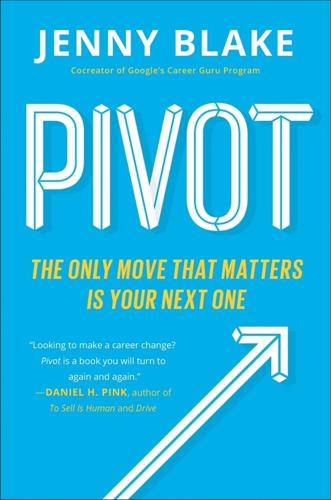
Pivot: The Only Move That Matters Is Your Next One
by
Jenny Blake
Published 14 Jul 2016
CHAPTER 11: FLIP FAILURE What Will Move You into Action? Cut yourself some slack. Remember, one hundred years from now, all new people. —Message tacked to a tree by monks at Wat Umong, a 700-year-old temple in Thailand IT IS IMPOSSIBLE TO TALK ABOUT PIVOTING WITHOUT ADDRESSING THE FEAR OF FAILURE. I am an optimistic realist. As a business and career coach, I do not insult my clients by pretending their fears are not real, or that they can move past them with simple affirmations and positive thinking. I have experienced years of wading knee-deep in my own doubts. So when they tell me their fears, I reply with, “Yep.
…
In many early conversations with clients, before their launch is a sure thing, the word failure comes up. I want to do XYZ, but I am afraid to fail. What if I am not cut out for this? To that I ask, “What is your definition of failure?” I do not mean this in a Pollyanna sense, as a loaded question requiring them to reply, “There is no such thing!” Because fear of failure is real. But what does failure actually mean to you? In some cases, failure is very real: losing a job or critical income source, or cashing in all remaining savings. In other cases, reflecting on this question reveals a straw man that is dismantled through further inquiry. How do you define failure?

The Dice Man
by
Luke Rhinehart
Published 1 Jan 1971
But I imagined a world in which each individual might be about to play the lover, the benefactor, the sponger, the attacker, the friend: and once known as one of the next day he might yet be anything. Would we pay attention to this person? Would life be boring? Would life be livable? I saw then clearly for the first time that the fear of failure keeps us huddled in the cave of self a group of behavior patterns we have mastered and have no intention of risking failure by abandoning. What if secretly before every agon or game the dice were thrown to determine whether the `winner' or the `loser' `wins'! The prize or the championship, with fifty-fifty being the odds for each?
…
The, second meaning of failure is also simple: failure is failure to please an adult; success is pleasing an adult. Money, fame, winning a baseball game, looking pretty, having good clothes, car, house are' all types of success which primarily revolve around pleasing the adult world. There is nothing intrinsic to the human soul in any of these fears of failure. Becoming the dice man was difficult because it involved a continual risking of failure in the eyes of the adult world. As dice man I `failed' (in the second sense) again and again. I was rejected by Lil, by the children, by my esteemed colleagues, by my patients, by strangers, by the image of society's values branded into me by thirty years of living.
…
My mazes were always being solved. I was continually opening myself to new problems and, enjoying solving them. From children to men we cage ourselves in patterns to avoid facing new problems and possible failure; after a while men become bored because there are no new problems. Such is life under the fear of failure. Fail! Lose! Be bad! Play, risk, dare. Thus, I exulted that evening of Larry's first diceday. I became determined to make Larry and Evie fearless, frameless, egoless humans. Larry would be the first egoless man since Lao-Tzu. I would let him play the role of father of the household and Evie the mother.
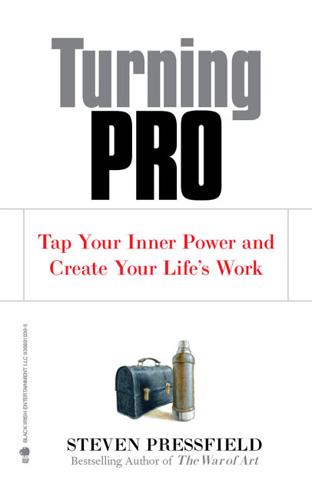
Turning Pro: Tap Your Inner Power and Create Your Life's Work
by
Steven Pressfield
Published 14 Aug 2011
He’s not deluded. He’s not demented. The amateur is trying to learn. The amateur is you and me. What exactly is an amateur? How does an amateur view himself and the world? What qualities characterize the amateur? THE AMATEUR IS TERRIFIED Fear is the primary color of the amateur’s interior world. Fear of failure, fear of success, fear of looking foolish, fear of under-achieving and fear of over-achieving, fear of poverty, fear of loneliness, fear of death. But mostly what we all fear as amateurs is being excluded from the tribe, i.e., the gang, the posse, mother and father, family, nation, race, religion.

A Week at the Airport: A Heathrow Diary
by
Alain de Botton
Published 1 Jan 2009
10 My employer had made good on the promise of a proper desk. It turned out to be an ideal spot in which to do some work, for it rendered the idea of writing so unlikely as to make it possible again. Objectively good places to work rarely end up being so; in their faultlessness, quiet and well-equipped studies have a habit of rendering the fear of failure overwhelming. Original thoughts are like shy animals. We sometimes have to look the other way – towards a busy street or terminal – before they run out of their burrows. The setting was certainly rich in distractions. Every few minutes, a voice (usually belonging to either Margaret or her colleague Juliet, speaking from a small room on the floor below) would make an announcement attempting, for example, to reunite a Mrs Barker, recently arrived from Frankfurt, with a stray piece of her hand luggage or reminding Mr Bashir of the pressing need for him to board his flight to Nairobi.

The Asperger Love Guide: A Practical Guide for Adults With Asperger's Syndrome to Seeking, Establishing and Maintaining Successful Relationships
by
Genevieve Edmonds
and
Dean Worton
Published 15 Dec 2005
Low self-esteem can be caused by: ● always being told you were not good enough, odd, strange, weird ● bullying (emotional or physical), ostracism, humiliation ● not fitting in with peers, family or work colleagues 25 ● blaming yourself for your differences ● not understanding ‘why’ you are different – no clear diagnosis ● wrong diagnoses by professionals, such as ‘learning disabled’, ‘mentally ill’ or ‘self-inflicted behaviour’ ● incorrect and unhelpful labels by others such as teachers, family, work colleagues or peers as ‘lazy’, ‘unwilling’, ‘wilful’, ‘naughty’, ‘useless’ and so on ● being a constant disappointment to others despite trying very hard ● setting perfectionist or unrealistically high standard for yourself ● many, many more things. Signs of low self-esteem are: ● excessive shyness ● passive behaviour ● feeling inferior ● conforming when not wishing to ● apologizing for yourself constantly ● fear of failure and competition ● not accepting compliments ● allowing bad behaviour in others towards you ● fear of being rejected ● finding negativity and faults in others ● feeling constantly guilty or defensive ● being possessive or jealous. Self-esteem boosting tips for Aspies Aspies often: ● have a strong sense of social justice ● are straightforward, honest not game players 26 ● place less emphasis on fashions, trends, appearance ● are thoughtful, intelligent ● have a very helpful ability to separate emotion from logic ● are accepting of those from all backgrounds.

The War of Art: Break Through the Blocks and Win Your Inner Creative Battles
by
Steven Pressfield
Published 2 Jun 2002
Fear of groveling when we try to make it on our own, and of groveling when we give up and come crawling back to where we started. Fear of being selfish, of being rotten wives or disloyal husbands; fear of failing to support our families, of sacrificing their dreams for ours. Fear of betraying our race, our ’hood, our homies. Fear of failure. Fear of being ridiculous. Fear of throwing away the education, the training, the preparation that those we love have sacrificed so much for, that we ourselves have worked our butts off for. Fear of launching into the void, of hurtling too far out there; fear of passing some point of no return, beyond which we cannot recant, cannot reverse, cannot rescind, but must live with this cocked-up choice for the rest of our lives.
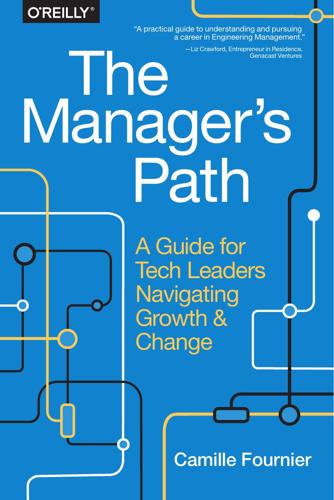
The Manager’s Path
by
Camille Fournier
Published 7 Mar 2017
If you find yourself playing the role of taskmaster—criticizing people who break the rules or don’t follow the process—see if the process itself can be changed to be easier to follow. It’s a waste of your time to play rules cop, and automation can often make the rules more obvious. As the manager of a process czar, help that person get more comfortable with ambiguity. As with many of the manager pitfalls, an obsession with process can be related to a fear of failure and a desire to control things to prevent the unexpected. If you are honest and make it clear that it’s safe to fail and to be imperfect, that’s often enough to get your process czar to relax a little bit and let some ambiguity in. It is very important to keep process czars from spending all of their time seeking out the perfect tool or process, and especially important to make sure that they aren’t punishing their teams for failing to follow processes.
…
And you probably like your people pleasers very much as people. They’re very nice! You might think people pleasers create teams that feel safe to be vulnerable and fail, but in fact the opposite is true. These managers make it hard for the team to fail in a healthy way, because of the manager’s own fears of failure and possible rejection. An externally focused people pleaser shuts down honest conversation by evasion and, if necessary, emotional manipulation that rests on his status as the person that everyone likes so much. A team pleaser sets her team up to fail by promising things that aren’t realistic, and the result is often a team that feels extremely bitter toward either the manager or the company for failure to live up to these inflated expectations.

The Precariat: The New Dangerous Class
by
Guy Standing
Published 27 Feb 2011
A good society needs people to have empathy, a capacity to project oneself into another’s situation. Feelings of empathy and competition are in constant tension. People in incipient competition conceal from others knowledge, THE PRECARIAT 23 information, contacts and resources, in case revealing them would take away a competitive edge. Fear of failure, or of being able to achieve only a limited status, easily leads to disavowal of empathy. What induces empathy? It may arise from a shared sense of alienation or insecurity, or even shared poverty. Evolutionary biologists generally agree that empathy is more likely within small stable communities, in which people know each other and engage with each other on a regular basis (see, for example, De Waal, 2005).
…
By 2010, one in five American men aged between 25 and 55 was unemployed. In the 1960s, 95 per cent of that age group were in jobs. In the European Union, three-quarters of the jobs generated since 2000 have been taken by women. Ironically, women’s increased ‘public’ involvement in the economy has been accompanied by a rising fear of failure due to multiple forms of precariousness. This has gone under a chilling name – ‘bag lady syndrome’ – a fear of being out in the streets due to job failure. In 2006, a life insurance survey found that 90 per cent of American women felt financially insecure and nearly half said they had ‘tremendous fear of becoming a bag lady’.

How Doctors Think
by
Jerome Groopman
Published 15 Jan 2007
This surrender is not conscious, but an astute patient can pick up on the fact that his doctor is sticking with the same treatment, not taking the risk of devising a novel, individual approach when the condition is not improving, because "it's a bad disease." When I was a fellow in training at UCLA, some of the senior attending physicians invoked this mantra, and I found myself repeating it with a guilty sense of relief. It acted as a buffer against the fear of failure, a fear that even an accomplished physician, which I was not, carries within himself. It is healthy and beneficial to invest your ego in healing your patient's disease. But when your ego overshadows that goal, there lies danger. "I tell patients that I am going to do everything possible to help them," Nimer said, "and that means that I am also setting myself up to fail."
…
My friend ultimately sought an outstanding oncologist in his hometown in New Jersey who was attentive and made sure that his final days were as comfortable as possible. My novelist friend theorized that the oncologist who treated his artist wife but would not consider treatment beyond statistics and protocols, and the oncologist who abandoned the intelligence operative, both suffered from fear of failure, and probably fear of death. "I know it sounds strange," he said, "supposing that an oncologist who sees so much death would flee from it. But I think posing as highly rational, acting only when all the numbers are in hand, is in fact an irrational way to care for people with cancer. You refuse to try anything creative, refuse to put yourself on the line.

Liftoff: Elon Musk and the Desperate Early Days That Launched SpaceX
by
Eric Berger
Published 2 Mar 2021
In his article for the aerospace publication, Zurbuchen wrote about how SpaceX had succeeded in the battle for talent with an inspiring goal. “I was a little bit nervous about betting on the immediate success of Falcon 9,” he wrote. “But in the long run, talent wins over experience and an entrepreneurial culture over heritage.” Too often in the modern aerospace world, he added, bureaucracy, rules, and a morbid fear of failure “poisoned” the workplace. Published two months after the inaugural Falcon 9 flight, the article caught Musk’s attention. He shared it with all his employees, saying they were the best and brightest in the industry, and people were beginning to notice. Musk also invited Zurbuchen to SpaceX’s factory for a tour.
…
Customers can afford to wait and see who succeeds before signing on, and they’re much less tolerant of risk. “That’s one of the things Elon brought to SpaceX—risk tolerance,” Chinnery said. “He didn’t want to fail, but he wasn’t afraid of it. And I think in a lot of other aerospace businesses, there still is that fear of failure, they want to be better than that.” With so many competitors, companies today really can’t afford to fail. So they go a little bit further. They test hardware more. If one of many models were to show significant sloshing in the second stage of their rocket, they wouldn’t chance it. They would take the extra time to understand the problem.

The Empowered Empath: A Simple Guide on Setting Boundaries, Controlling Your Emotions, and Making Life Easier
by
Judy Dyer
Published 15 Apr 2019
This is one of the main reasons high achievers are not only more successful but happier than the perfectionist when it comes to goal attainment. Procrastination: It makes no sense that a perfectionist would also be prone to procrastination. This is something you don’t want to do if you want to achieve your goals. But the strange thing is that procrastination and perfectionism go hand in hand because of the fear of failure. They will spend all their time anticipating what could go wrong and what failure would look like. This leads to immobilization, and nothing ends up getting done, which leads to a feeling of failure and a vicious cycle begins. Low self-esteem: Perfectionists are very self-critical; the slightest little thing can go wrong, and they will beat themselves up for days.
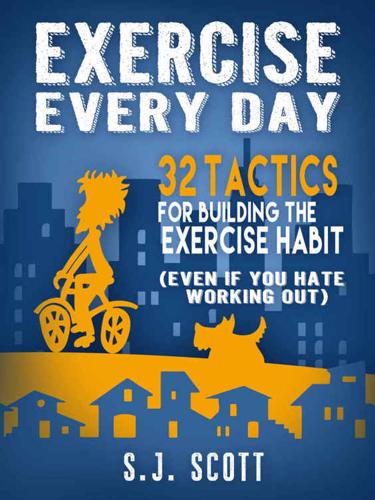
Exercise Every Day: 32 Tactics for Building the Exercise Habit (Even If You Hate Working Out)
by
S.J. Scott
Published 19 Mar 2015
Subconsciously, many people make this excuse with the secret hope that the need to do the task will eventually disappear. The need to develop an exercise habit to keep yourself healthy is never going to go away. You know that. So don’t let this excuse hold you down any longer. #5—I don’t feel like it today. Why do you not want to exercise? Is it a fear of failure? Discomfort? Or just lack of interest? The good news is that whatever is behind your lack of desire is basically remedied with the strategies described in this book. You don’t have to commit to hours of exercise—just enough movement to meet your goal. You don’t have to be in pain or set yourself up for failure—you have chosen a workout plan that fits your unique fitness level and goals.
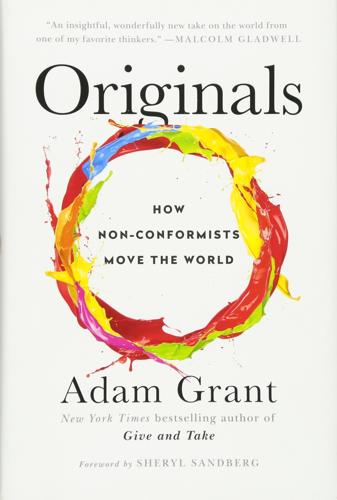
Originals: How Non-Conformists Move the World
by
Adam Grant
Published 2 Feb 2016
Instead of aiming for unique accomplishments, the intense desire to succeed leads us to strive for guaranteed success. As psychologists Todd Lubart and Robert Sternberg put it, “Once people pass an intermediate level in the need to achieve, there is evidence that they actually become less creative.” The drive to succeed and the accompanying fear of failure have held back some of the greatest creators and change agents in history. Concerned with maintaining stability and attaining conventional achievements, they have been reluctant to pursue originality. Instead of charging full steam ahead with assurance, they have been coaxed, convinced, or coerced to take a stand.
…
When employees in consulting, financial services, media, pharmaceuticals, and advertising companies were interviewed, 85 percent admitted to keeping quiet about an important concern rather than voicing it to their bosses. The last time you had an original idea, what did you do with it? Although America is a land of individuality and unique self-expression, in search of excellence and in fear of failure, most of us opt to fit in rather than stand out. “On matters of style, swim with the current,” Thomas Jefferson allegedly advised, but “on matters of principle, stand like a rock.” The pressure to achieve leads us to do the opposite. We find surface ways of appearing original—donning a bow tie, wearing bright red shoes—without taking the risk of actually being original.

Also Human: The Inner Lives of Doctors
by
Caroline Elton
Published 1 Mar 2018
Helping him to move on also involved helping him to change the mind of his training program director, who was hell-bent on ensuring that Bijal at least completed the first foundation year. She told me she would feel that she had failed in her duty as program director if Bijal couldn’t take his career that far. But by pushing Bijal to continue, when each change of job ended up with him having another breakdown, the consultant was actually prioritizing her own fear of failure over what was best for her trainee. What Bijal taught me is that leaving medicine is rarely straightforward. Despite the persistent stereotype of the Asian family who put pressure on their children to become doctors, Bijal’s family was resigned to him leaving the profession. His parents had seen how unwell he had been at different stages of his training, and they didn’t want him to endure a lifetime of mental illness.
…
As happened in my conversation with Deepak, I often have an image of somebody in the middle of a tug-of-war; on the one hand there are powerful forces pulling doctors toward remaining in the profession, while on the other hand there are equally powerful forces that pull them in the opposite direction. The “remain” forces include fear of failure or of disappointing family members; anxieties that all the years of training will be wasted; pride in being a doctor; uncertainty about whether one will find another job and, if one does, whether one will actually be any happier; an appreciation of the security of medical work; and constant input from senior clinicians saying that it will definitely get better soon.
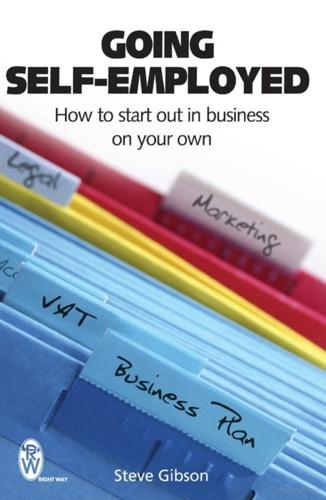
Going Self-Employed: How to Start Out in Business on Your Own
by
Steve Gibson
Published 29 May 2013
The Buddha Beasts to Avoid • Over-caution: learn to take risks and when to stick your neck out. The faint-hearted won’t progress. Can you accept that by starting your own business you are a risk-taker? Are you comfortable with risk-taking? • Easy target-setting: while you need to be sensible, fear of failure may make you set your sights too low. • Financial motivations: sounds bizarre, but if you think self-employment is a quick road to riches, you could be in for a rude awakening. Try the lottery or Pop Idol instead. Keep cash in sight, but let other reasons for self-employment be your prime motivators, at least to start with!
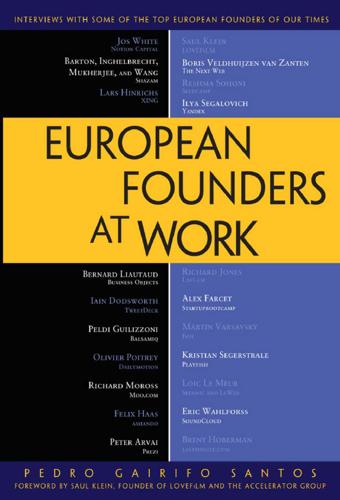
European Founders at Work
by
Pedro Gairifo Santos
Published 7 Nov 2011
I know a few who succeed, but it's very rare. They just focus on the one thing, I think. Then what else? I think the execution matters much more than the idea itself. I think that's a European vs. US thing. I see two problems. One is their fear of failure, which is much more important in Europe than in the US. Here, [in the US] it's okay if you fail. We accept it. It's obvious. But I guess I should say it: people are much more fearful of failure in Europe. Then, two is the fact that they try to wait for the idea of their life, like a revolutionary idea, and that never comes. I think you should focus. Many people do that great in Europe, of course, but one of the lessons I learned is that you should really find a need, whatever the need, a little niche.

Becoming Bulletproof: Protect Yourself, Read People, Influence Situations, and Live Fearlessly
by
Evy Poumpouras
Published 20 Apr 2020
From going through some of the most intense training academies in the world to interrogating terrorists and criminals to protecting some of the world’s most high-level targets, fear has shown itself to me time and again, in multiple forms and many ways. I have become intimately familiar with each of them—fear of death, fear of danger, fear of public perception, fear of failure, and fear of following your dreams. These fears are familiar to us all at different times and in varying degrees. One thing I cannot teach you is how to be fearless. Being fearless is bullshit. It isn’t possible to live without fear, and it shouldn’t be necessary in order for you to live a healthy, successful life.
…
When I asked how they managed to turn average people into elite warriors, she simply said, “We don’t.” “What do you mean?” I asked. “The average person doesn’t apply. People self-select themselves out of the running. So we get only the strongest candidates who already believe they can do the job.” The concept of self-editing is often dictated by our fear of failure. We choose not to be part of a group because we feel we are inadequate. But sometimes it goes beyond that. We can also begin to edit the choices we make in other areas of our lives. We allow our beliefs about what we are and are not capable of to determine what paths we pursue. We can be so terrified of taking risks that we don’t even make the attempt to go after something we want, and something that we may indeed be very good at if we could just give ourselves the chance to try.

The Targeter: My Life in the CIA, Hunting Terrorists and Challenging the White House
by
Nada Bakos
Published 3 Jun 2019
However, by the time I entered my freshman year in high school—in the same building as the elementary school and middle school, because Denton’s population didn’t exactly support multiple schoolhouses—I had lost the confidence I had in my younger years. Some of that may have been a result of my rocky home life. Partly it was apathy, and maybe it was a little boredom, because I never particularly struggled. Mostly, I think, a fear of failure cast a pall of mediocrity over my scholastic career. I couldn’t underperform at what I never tried to achieve. At one point during my freshman year, my mom asked the principal to arrange an IQ test for me so we could pinpoint where I fit in academically. Mom hoped it would boost my confidence—and to my surprise, I was told that I’d tested roughly two to three years ahead of my grade level.
…
Much of the Agency’s analytical ranks are populated with PhDs and Ivy League degrees, as you would find at think tanks and research facilities. My previous role had given me insight into ways I could benefit the team in spite of my less traditional qualifications, but there are very few people who start in HR at the CIA and later find themselves on one of the fast-paced analytical teams in the building. In the Iraq unit, my fear of failure drove me to almost obsessive ends; I was always scared I might screw something up. That was particularly true because no politician cared what I, Nada, thought about a given issue. Politicians cared deeply, however, about how the CIA assessed critical situations—and I never forgot that in those unbylined products, my word stood as the official Agency position.

Pour Your Heart Into It: How Starbucks Built a Company One Cup at a Time
by
Howard Schultz
and
Dori Jones Yang
The sun shone on me, it’s true, as my brother, Michael, always tells me. But my story is as much one of perseverance and drive as it is of talent and luck. I willed it to happen. I took my life in my hands, learned from anyone I could, grabbed what opportunity I could, and molded my success step by step. Fear of failure drove me at first, but as I tackled each challenge, my anxiety was replaced by a growing sense of optimism. Once you overcome seemingly insurmountable obstacles, other hurdles become less daunting. Most people can achieve beyond their dreams if they insist upon it. I’d encourage everyone to dream big, lay your foundations well, absorb information like a sponge, and not be afraid to defy conventional wisdom.
…
He was then working in Germany, where I had gone for a trade show. We talked for hours one night over beers, and I discussed my confused feelings about my father. “If your dad had been successful,” he said, “maybe you wouldn’t have had as much drive as you have.” My friend was probably right. Part of what has always driven me is fear of failure, for I know too well the face of self-defeat. I finally came to terms with my bitterness and learned to respect the memory of what my dad was, instead of regretting what he was not. He did the best he could. He passed away before I was able to tell him I understood that. That’s one of the great losses of my life.
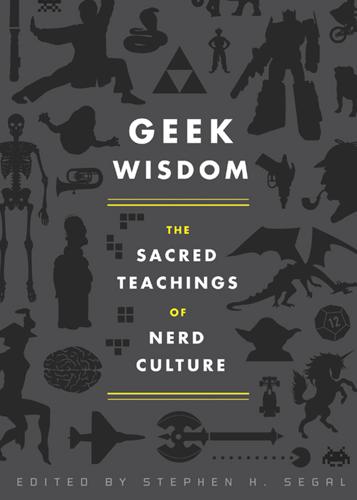
Geek Wisdom
by
Stephen H. Segal
Published 2 Aug 2011
Can think, act, do, talk; can embrace reason and confidence over raw emotion. Can just go ahead and talk to her, so then maybe, maybe, she’ll talk back to you. And you can smile. Frank Herbert’s groundbreaking science-fiction classic Dune (1965) was rejected twelve times. Herbert did not let fear of failure prevent him from continuing to send the book out until he found a publisher who believed in it. “IF MY DOCTOR TOLD ME I HAD ONLY SIX MINUTES TO LIVE, I WOULDN’T BROOD. I’D TYPE A LITTLE FASTER.” —ISAAC ASIMOV THAT ASIMOV meant what he said is plain to see in the immense library of knowledge and wisdom he imparted to us during his extraordinary lifetime—a library we’ll likely continue to benefit from for time immemorial.

Difficult Mothers, Adult Daughters: A Guide for Separation, Liberation & Inspiration
by
Karen C. L. Anderson
Published 13 Mar 2018
Here are some common ways it shows up (in my own words, but with thanks to Bethany Webster): You compare and despair. You feel stuck, overwhelmed, and like an underachiever. Or you are overachieving, but without any joy or fulfillment, just going through the motions in an effort to prove your worth. You encounter issues such as: Shame, blame, guilt, and desperation Fear of failure Fear of success (believe it or not!): believing that if you succeed you won’t be loved, someone will disapprove, or that you’re somehow “showing off” Putting up with bad behavior in others Constantly seeking approval, validation, and permission from outside yourself (and especially from your mother) People-pleasing and being afraid to say “no” Taking on other people’s problems and thinking it’s on you to fix them Self-sabotage (especially when you get close to achieving something) Binge eating, binge drinking, binge shopping, binge anything Trying to control the uncontrollable Chronic worry and anxiety Believing that it is selfish or narcissistic to put yourself first, or even to love, accept, or care for yourself Believing it is your responsibility to take care of others, emotionally speaking Thinking that your desires and preferences don’t matter Not having a clear sense of who you are and what you want And if you do know what you want, feeling incapable of doing or having it Having weak or nonexistent boundaries Being afraid to speak your truth and take up space If you identify with any or all of these, it’s not bad news.
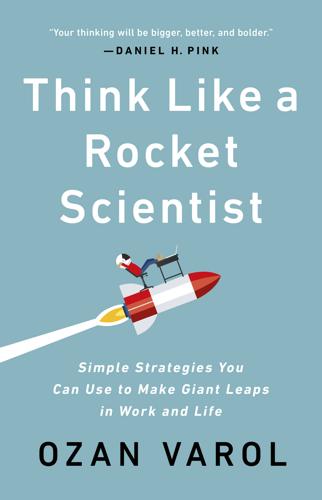
Think Like a Rocket Scientist: Simple Strategies You Can Use to Make Giant Leaps in Work and Life
by
Ozan Varol
Published 13 Apr 2020
We stay off the edges, avoid healthy risks, and play it safe. If we aren’t guaranteed to win, we assume the game isn’t worth playing. This natural tendency to avoid failure is a recipe for failing. Behind every rocket unlaunched, every canvas unpainted, every goal unattempted, every book unwritten, and every song unsung is the looming fear of failure. Thinking like a rocket scientist requires redefining our troubled relationship with failure. It also requires correcting one of the greatest misconceptions about rocket science popularized by a Hollywood blockbuster. Failure Is an Option In Apollo 13, there’s a scene where a group of rocket scientists are gathered in a room after learning that the spacecraft suffered an oxygen tank explosion on its voyage to the Moon.
…
Edmondson, Bohner, Pisano, “Speeding Up Team Learning.” 82. Lisa Bodell, Kill the Company: End the Status Quo, Start an Innovation Revolution (Brookline, MA: Bibliomotion, 2016), 130. 83. Jessica Bennett, “On Campus, Failure Is on the Syllabus,” New York Times, June 24, 2017, www.nytimes.com/2017/06/24/fashion/fear-of-failure.html. Chapter 9: Nothing Fails Like Success 1. The opening discussion on the Challenger disaster is based on the following sources: Trudy E. Bell and Karl Esch, “The Fatal Flaw in Flight 51-L,” IEEE Spectrum, February 1987, https://ieeexplore.ieee.org/document/6448023; Doug G. Ware, “Engineer Who Warned of 1986 Challenger Disaster Still Racked with Guilt, Three Decades On,” UPI, January 28, 2016, www.upi.com/Top_News/US/2016/01/28/Engineer-who-warned-of-1986-Challenger-disaster-still-racked-with-guilt-three-decades-on/4891454032643; Douglas Martin, “Roger Boisjoly, 73, Dies; Warned of Shuttle Danger,” New York Times, February 3, 2012, www.nytimes.com/2012/02/04/us/roger-boisjoly-73-dies-warned-of-shuttle-danger.html; Shaun Usher, “The Result Would Be a Catastrophe,” Letters of Note, October 27, 2009, www.lettersofnote.com/2009/10/result-would-be-catastrophe.html; Andy Cox, “Weather’s Role in the Challenger Accident,” Weather Channel, January 28, 2015, https://weather.com/science/space/news/space-shuttle-challenger-weather-role; Chris Bergin, “Remembering the Mistakes of Challenger,” NASA, January 28, 2007, www.nasaspaceflight.com/2007/01/remembering-the-mistakes-of-challenger. 2.
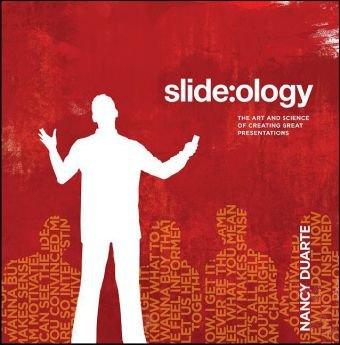
Slide:ology: the art and science of creating great presentations
by
Nancy Duarte
Published 15 Nov 2008
It wasn’t until you felt comfortable with these new sensations that you either had someone take the training wheels off or bend them up a bit so you could become familiar with wobbling and the concept of self-balancing. You were keenly aware of the risk of falling and getting hurt. 1. Select a slide that has too many words on it. 222 slide:ology This same fear of failure traps us into not wanting to let go of our heavy text. Letting go is a process, and it takes practice. And yes, possibly falling down. But the practice has a liberating payoff for you and the audience. Great presenters connect with their audience, speak naturally, and allow the slides to enhance their story.
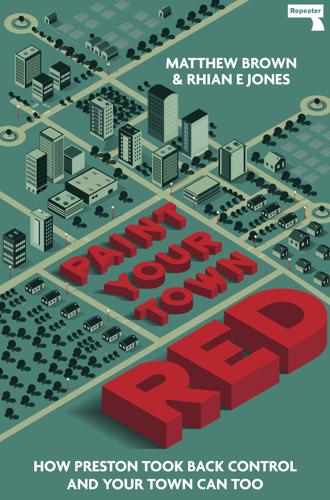
Paint Your Town Red
by
Matthew Brown
Published 14 Jun 2021
The Foundational Economy Challenge Fund is a £4.5 million resource that can be used to invest in experimental projects across Wales that look to bolster the foundational economy, as a kind of angel investor fund for social entrepreneurship. This was intended to allow community groups and organisations to experiment with developing economic and social alternatives with less fear of failure, and its application process was deliberately made as accessible and un-bureaucratic as possible. Although the progress of many resultant projects has been halted or disrupted by the impact of Covid-19, the bids submitted to the Challenge Fund covered a variety of initiatives from town-centre regeneration to social care, and constitute a series of micro-experiments in local-led initiatives.
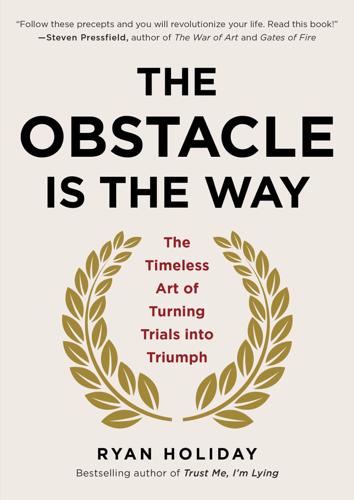
The Obstacle Is the Way: The Timeless Art of Turning Trials Into Triumph
by
Ryan Holiday
Published 30 Apr 2014
There’s nothing shameful about being wrong, about changing course. Each time it happens we have new options. Problems become opportunities. The old way of business—where companies guess what customers want from research and then produce those products in a lab, isolated and insulated from feedback—reflects a fear of failure and is deeply fragile in relation to it. If the highly produced product flops on launch day, all that effort was wasted. If it succeeds, no one really knows why or what was responsible for that success. The MVP model, on the other hand, embraces failure and feedback. It gets stronger by failure, dropping the features that don’t work, that customers don’t find interesting, and then focusing the developers’ limited resources on improving the features that do.
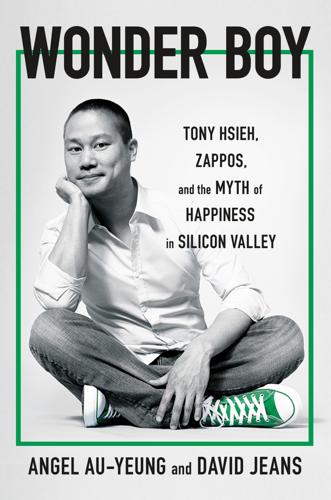
Wonder Boy: Tony Hsieh, Zappos, and the Myth of Happiness in Silicon Valley
by
Angel Au-Yeung
and
David Jeans
Published 25 Apr 2023
To convince people to move to a neighborhood in Las Vegas, away from the Strip, Tony would first need to attract artists, creatives, and small business owners to make the neighborhood cool. Then he envisioned building an element of Silicon Valley in the neighborhood, where innovators and technologists could come, create, and invent, without fear of failure. To sweeten the arrival—and supercharge the development—new citizens would have a place to stay, sometimes for months at a time, for free. At the time, there was only one residential building that could seem appealing to young millennials and tech workers arriving in the run-down neighborhood.
…
Brad Feld, another venture capitalist, became a shining light for entrepreneurs seeking help after he began speaking openly about his struggle with depression over the years, and highlighted the unique challenges facing those whose identities are often tied to their success. “The intensity of being an entrepreneur, especially when your company is failing, or you are failing at your role, can be overwhelming,” he wrote on his blog. “It’s ok to fail. It’s ok to lose. It’s ok to be depressed.” Fear of failure was evidently facing Jody. It was later revealed that his death occurred days before a scheduled company meeting, when he was going to have to inform the board that Ecomom had run out of money, just six months after raising $5 million. The company had been bleeding money thanks to an offer that allowed customers to receive a 50 percent discount every time they purchased from the website, meaning that every time Ecomom sold a product, it actually lost money.
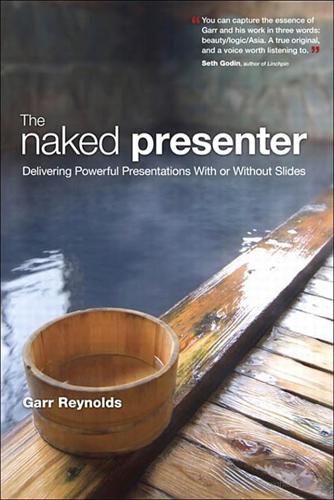
The Naked Presenter: Delivering Powerful Presentations With or Without Slides
by
Garr Reynolds
Published 29 Jan 2010
Insolence Overconfidence Greed Anger Fear Doubt Distrust Hesitation Contempt Conceit Although these may be within us, you can see how none of these 10 evils are helpful when making a presentation, performing a piece of music, or teaching a class. All of the 10 listed can be destructive and hold us back—fear and doubt, in particular. Fear holds a lot of us back. It is our fear of failure, our fear of what other people may think. We’re afraid. We’re not sure. So we hesitate, and we fail to act. Popular authors such as Seth Godin call this the Lizard Brain. Confidence, meanwhile, is necessary and important, but overconfidence can sometimes be as destructive as fear. It can also hold us back.
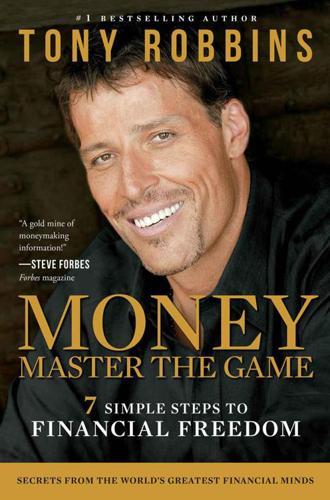
MONEY Master the Game: 7 Simple Steps to Financial Freedom
by
Tony Robbins
Published 18 Nov 2014
But here’s the truth: the ultimate thing that stops most of us from making significant progress in our lives is not somebody else’s limitations, but rather our own limiting perceptions or beliefs. No matter how successful we are as human beings, no matter how high we reach personally, professionally, spiritually, emotionally, there’s always another level. And to get there, we have to be honest with ourselves; honest about our unconscious fears. What do I mean? Everybody has a fear of failure at some level; at times we’ve all been fearful that perhaps we are not enough. Even when we know what to do, our fear can keep us from executing our plans. As a result, rather than face our natural fears, what do we do? We come up with stories. Stories about why we’re not where we want to be.
…
Monthly income for Financial Freedom (page 222) $____ per month 5. Total monthly income number for Absolute Financial Freedom $____ per month 6. Now multiply that by 12, and you’ll have the annual amount you need for Absolute Financial Freedom $____ per year There is only one thing that makes a dream impossible to achieve: the fear of failure. —PAULO COELHO How do all those numbers you’ve written down look to you now? I hope that you’ve seen how the price of your financial dreams can be much smaller than you ever thought, and that you’ve picked out three to aim for, including at least one short-term goal and one long-term goal.
…
(DOL), 146–47, 152 LaChappelle, Easton, 557–59 Lake Wobegon Effect, 334 Lao-Tzu, 26, 29 Las Vegas Sands Corp., 62 Lauer, Matt, 270, 349–50, 485 Lawrence, T. E., 203 leadership, 501 Leape, Jim, 556 learned helplessness, 180 Lee, Bruce, 42 Lehman Brothers, 378 Lewis, JT, 591–93 Lewis, Michael, 7 LIBOR (London Interbank Offered Rates), 123, 516 lies we tell ourselves, 183–99, 249 and breakthroughs, 184–99 and fear of failure, 183–84 and fear of unknown, 185 life: as adventure, 291 artificial, 566 balance in, 258, 577 decisions in, 244, 246 as information technology, 566 quality of, 37, 292, 538, 576, 577, 580–82, 583 race of, 233 you as creator of, 226, 229, 246 your stage in, 331–32 lifecycle funds, 157 life expectancy, 31–32, 409, 538 life insurance: borrowing from, 446–47 death benefit proceeds from, 447 PPLI, 443–48 in Security/Peace of Mind Bucket, 309 lifestyle, 209–10, 218 changing, 287–92, 612 and Dream Bucket, 341 moving to another place, 288–91 437 Lifetime Income plan, 46, 170–71, 308, 406–18, 613–14 annuities, 416–18, 419–41 income insurance, 415–16 John’s case, 412–14 Susan’s case, 414–16 Lincoln, Abraham, 19 liquidity, 302, 331 Livermore, Jesse, 525 living trust, 448–49 LL Cool J, 15 Lombardi, Vince, 51 longevity insurance, 426–27 “lost decade,” 107, 357, 366, 396 lottery: in retirement, 412 spending money on, 37, 334 love and connection, 77 luck, 228–29, 343, 412 Lynch, Peter, 354, 400 Magellan fund, 400 Maker Revolution, 559–61 Malkiel, Burton, 49–52, 59, 96–97, 326, 354, 356–58 on compounding, 50–52 on diversification, 325 on dollar-cost averaging, 355, 358, 365, 366 and index funds, 49, 97 on rebalancing, 359, 361 on tax-loss harvesting, 362 Mallory, George, 406, 409 Marcus Aurelius, 381 marketing, 85, 97, 102 market timing, 97, 296 Markowitz, Harry, 297, 379, 472 Marley, Bob, 232 mastery: execution as, 65 levels of, 42 Mayweather, Floyd “Money” Jr., 53–54, 210 McCarty, Oseola, 60–61, 62, 63 McDonald’s, 373–74 McGonigal, Kelly, 190–99 meaning, 575, 580–82 Meat Loaf, 52 Medicare/Medicaid, 149 Mellon, Andrew, 315 Merckle, Adolf, 66, 71–72, 73 Metallica, 314 MF Global, 123 Microsoft, 377 millionaires vs. billionaires, 208–10 minimum wage, 263 mob mentality, 348–49 momentum trading, 325 money: as abstract concept, 3–4 compounding, 35–36, 49–52, 58, 60, 62–65, 256, 364 control of, 14 critical mass of, 33, 58, 89, 90, 408 doubling, 283, 284 emergency/protection fund, 216–17, 302 and emotion, 209, 210 and financial freedom, 5–6 and happiness, 588–91 loss of, 336 love of, as root of evil, 195 to make money, 192 mastery of, 6, 71 nest egg, 58, 257 and power, 3 as reflection of creativity, 193 for retirement, 32, 210–11 spending plan, 253–56 as tool, 3 trading time for, 54 what you earn vs. what you keep, 273 where to put, see asset allocation worry about, 190–91 Moneyball, 65 Moneychimp, 119 money machine, 184, 192, 230, 254 savings as, 55–70 money market deposit accounts, 303 money market funds, 303 money masters: advice from, 455–57 author’s interviews with, 453–55 money pass, 333 Money Power Principles, 57, 230 1.
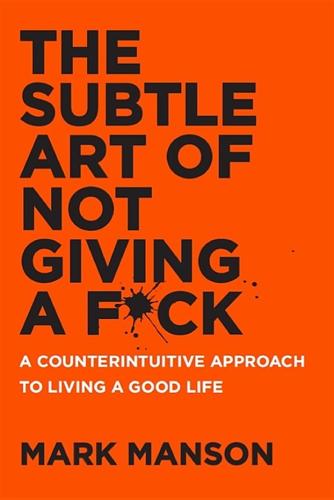
The Subtle Art of Not Giving a F*ck: A Counterintuitive Approach to Living a Good Life
by
Mark Manson
Published 12 Sep 2016
At some point, most of us reach a place where we’re afraid to fail, where we instinctively avoid failure and stick only to what is placed in front of us or only what we’re already good at. This confines us and stifles us. We can be truly successful only at something we’re willing to fail at. If we’re unwilling to fail, then we’re unwilling to succeed. A lot of this fear of failure comes from having chosen shitty values. For instance, if I measure myself by the standard “Make everyone I meet like me,” I will be anxious, because failure is 100 percent defined by the actions of others, not by my own actions. I am not in control; thus my self-worth is at the mercy of judgments by others.
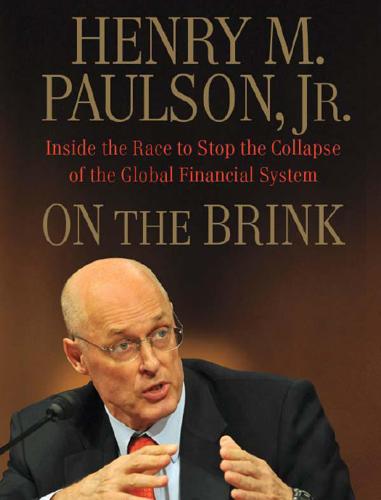
On the Brink: Inside the Race to Stop the Collapse of the Global Financial System
by
Henry M. Paulson
Published 15 Sep 2010
Jim Baker, the former secretary of Treasury and State, who had recommended me to the president and urged me to accept the position, said that I should ask to be the primary adviser and spokesman for all domestic and international economic issues. “That,” as he put it, “really covers everything.” I was still struggling to decide. My epiphany came while I was flying out to the Microsoft meeting. As I thought through my decision, I recognized that it was simply fear that was causing me such anxiety. Fear of failure, fear of the unknown: the uncertainty of working with a group of people I had never worked with before and managing people I had never managed before. Once I understood this, I pushed back hard against the fear. I wasn’t going to give in to that. I prayed for the humility to do something not out of a sense of ego, but out of the fundamental understanding that one’s job in life is to express the good that comes from God.
…
I prayed for the humility to do something not out of a sense of ego, but out of the fundamental understanding that one’s job in life is to express the good that comes from God. I always believed you should run toward problems and challenges; it was what I told the kids in camp when I was a counselor, and I now told myself that again. Fear of failure is ultimately selfish; it reflects a preoccupation with self and overlooks the fact that one’s strength and abilities come from the divine Mind. I arranged to go back to Washington to see Josh again. As we sat in front of the fireplace in his office, beneath a portrait of Abraham Lincoln, I laid out my “asks.”
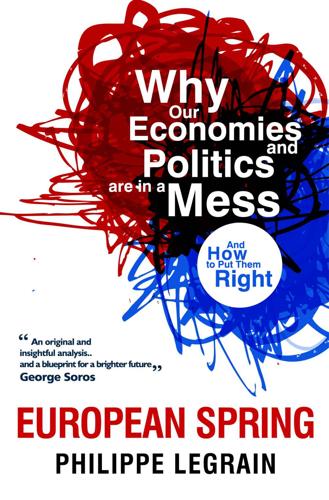
European Spring: Why Our Economies and Politics Are in a Mess - and How to Put Them Right
by
Philippe Legrain
Published 22 Apr 2014
Stopped-up Europe Four types of barrier hold European enterprise back: education systems that fail to encourage entrepreneurship; a cultural aversion to risk-taking, diversity and many new technologies; flawed regulations that restrict competition, stymie start-ups and hamper smaller businesses; and a shortage of finance. All four are related. For example, punitive bankruptcy laws exacerbate Europeans’ fear of failure. Cartelised markets, burdensome regulations and a lack of risk capital encourage many go-getting Europeans to emigrate. Pessimism about the future can prove self-fulfilling. The problems start young: European education systems generally don’t encourage entrepreneurship. While 59 per cent of Americans think their schooling has helped them develop a sense of initiative and entrepreneurial attitude, only 50 per cent of Europeans and 35 per cent of Britons agree.660 A majority of Americans believe their education has given them the skills and know-how to run a business, compared with 41 per cent of Europeans and a mere 27 per cent of Britons.661 Only 17 per cent of Britons say their schooling has made them interested in becoming an entrepreneur.662 Once they start working, most Europeans prefer the security of being an employee to the excitement, freedom and potential rewards of being an entrepreneur.
…
According to the Global Entrepreneurship Monitor’s annual survey in 2013, some 13 per cent of Americans (and Estonians) were starting or had started a new business, but only 8 per cent of Europeans (and 7 per cent of Britons).664 Fewer Europeans (31 per cent) perceive opportunities for entrepreneurship than Americans (43 per cent) and fewer think they have the necessary capabilities (42 per cent to 56 per cent). Many Swedes (66 per cent) see opportunities; far fewer have confidence in their abilities (37 per cent). Fear of failure is crippling in Greece and Italy.665 Starting a business inevitably involves the risk of failure. Yet one in two Europeans – and a whopping two in three Portuguese – think that one should not start a business if there is a risk it might fail; only 28 per cent of Americans agree.666 Britons (38 per cent) are the least risk-averse Europeans.
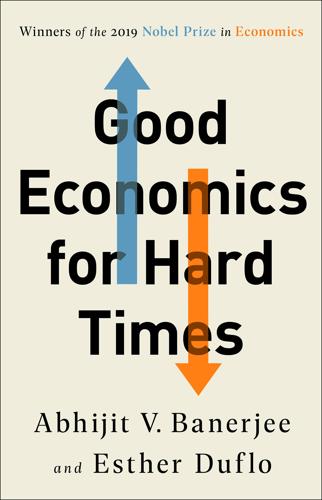
Good Economics for Hard Times: Better Answers to Our Biggest Problems
by
Abhijit V. Banerjee
and
Esther Duflo
Published 12 Nov 2019
They would stay in Argentina for over ten years before going on to Peru, Colombia, and Senegal. Albert went back to France after his health deteriorated (though he was still quite young), but by then his career trajectory could plausibly be described as a successful adventure. Still, the hardscrabble life surely had taken a toll, and he died shortly after his return. The fear of failure is a substantial disincentive for embarking on a risky adventure. Many people prefer not to try. After all, most of us want to protect an image of ourselves as intelligent, hard-working, morally upright individuals, both because it is simply not pleasant to admit we might in fact be dumb, lazy, and unscrupulous, but also because maintaining a good opinion of ourselves preserves our motivation to keep trying in the face of whatever life throws at us.
…
Streamlining the whole process and communicating it more effectively, so workers have a much better understanding of the costs and rewards of migration, would help. Making it easier for migrants and their households to send money back and forth to each other would also help by making migrants less isolated. Given the outsized fear of failure, offering migrants some insurance against failure would be a possibility. When this was offered in Bangladesh, the effects were almost as large as the effect of offering a bus ticket.87 But the best way to help (and therefore perhaps encourage) migrants while making locals more accepting is probably to ease their integration.
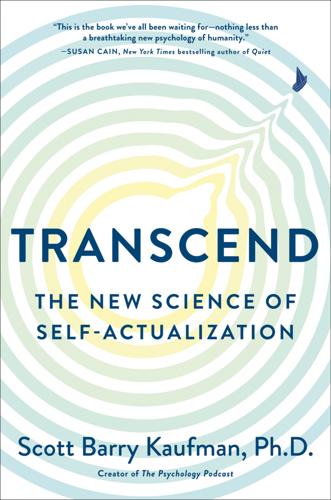
Transcend: The New Science of Self-Actualization
by
Scott Barry Kaufman
Published 6 Apr 2020
The implications of neuroticism for mental health are tremendous, with some researchers going so far as to argue that neuroticism is the common core of all forms of psychopathology!18 While some people are hypersensitive to cues of threat, most people feel at least some discomfort when facing the unknown. And there are some fears that everyone has to some degree, such as the fear of failure, fear of rejection, fear of losing control, fear of losing emotional connection, and fear of losing reputation.19 The ability to reduce, manage, and even embrace uncertainty is important for everyone seeking to develop the whole person. It is critical not only to health and wellness but also to survival.
…
GROWTH CHALLENGE #3: FACE YOUR FEARS This growth challenge involves identifying and facing your psychological fear(s) so that you may better combat the persistent anxieties in daily life that interfere with your health and overall capacity to thrive. You will start by reading through the following Psychological Fears Scale and continue with the exercise prompt.7 PSYCHOLOGICAL FEARS SCALE Fear of Failure 1. I am afraid of failing in somewhat difficult situations when a lot depends on me. 2. I feel uneasy doing something if I am not sure of succeeding. 3. If I do not understand a problem immediately, I start feeling anxious. Fear of Rejection 4. When I get to know new people, I often fear being rejected by them. 5.
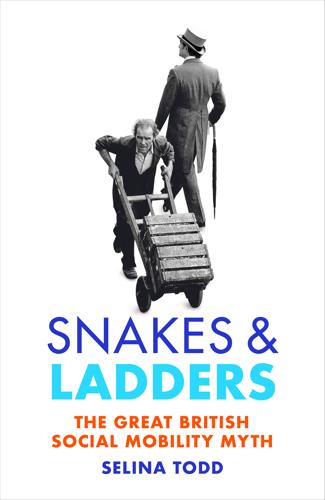
Snakes and Ladders: The Great British Social Mobility Myth
by
Selina Todd
Published 11 Feb 2021
And the distance some of them had travelled, from pit villages to Parliament, suggested to some that Britain did indeed reward merit. Those activists who climbed into political and educational posts were propelled by their desire to improve everyone’s lives. Their sense of purpose and the solidarity of their comrades gave them strength when faced with the intimidation, fear of failure and sense of isolation that they experienced on their ascent. But they were a minority. Most upwardly mobile clerks and teachers were not motivated by socialism – many were, or became, conservative in their outlook and politics. What explains their rise up the social ladder, and how they fared, is the subject of the next chapter.
…
Far from encouraging upward mobility, selective schooling was an obstacle to working-class children. The restriction of advanced education to a small minority required people to compete against each other, rather than using their experiences to enrich and change society for the better. Selection induced fear of failure, encouraging conformity to the existing rules rather than imagination and risk-taking. By the end of the 1960s, the value of giving everyone greater opportunity – both for personal fulfilment and economic progress – was more widely understood, particularly when it came to education. But this lesson was learned at the expense of thousands of children defined as ‘failures’ at eleven years of age.
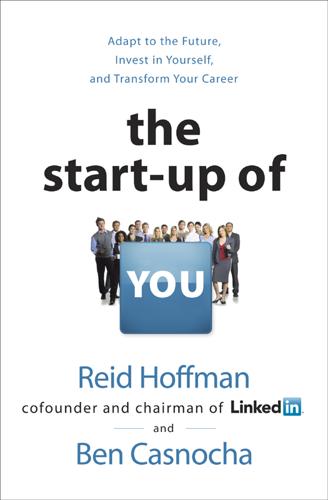
The Start-Up of You: Adapt to the Future, Invest in Yourself, and Transform Your Career
by
Reid Hoffman
and
Ben Casnocha
Published 14 Feb 2012
PLAN Z: JUMP ON YOUR LIFEBOAT AND REGROUP The reason many people do not embrace trial and error, learning by doing, adaptation, and the other themes of this chapter is because these strategies introduce real uncertainty. It’s easy to say “learn by doing”—but what if you’re not sure what you’ll learn or what you should do? As we’ll talk about in the risk chapter, uncertainty never goes away. Fear of failure never goes away. The way to feel comfortable with these entrepreneurial strategies is to have one plan in your life that’s highly certain. That’s Plan Z: a reliable plan you shift to when you no longer have confidence in Plan A and B, or when your plans get severely disrupted. The certainty of the Plan Z backstop is what enables you to be aggressive—not tentative—about Plans A and B.
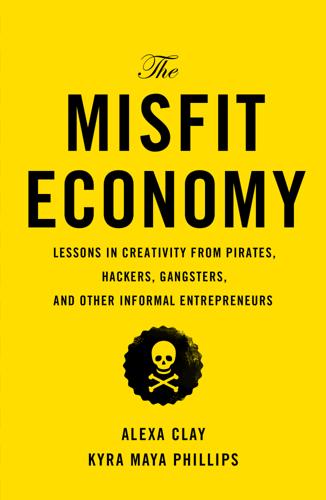
The Misfit Economy: Lessons in Creativity From Pirates, Hackers, Gangsters and Other Informal Entrepreneurs
by
Alexa Clay
and
Kyra Maya Phillips
Published 23 Jun 2015
This is something that we found in talking with a lot of misfits working within big organizations, such as David Berdish at Ford or Gib Bulloch at Accenture. It’s important to understand the politics and motivations of the people you work with and the people you are trying to influence. Many people operate from a position of fear—fear of failure, fear of reputation, fear of the unknown. And so you need to be able to stop and ask yourself: What motivates a person at a deeper level? How can I better understand his or her point of view? Don’t forget to turn that mirror on yourself and understand the biases and fears that you bring to a situation.
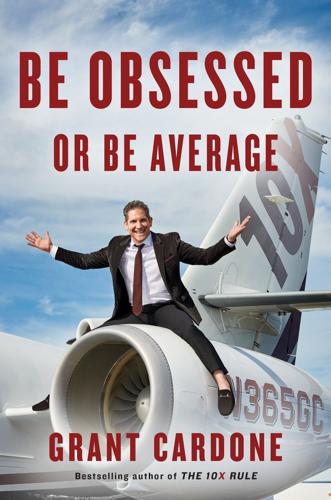
Be Obsessed or Be Average
by
Grant Cardone
Published 20 Sep 2016
Then, because doubt is your biggest threat and therefore your biggest enemy, in the next chapter we’ll look at how powerful it is to deny something your attention, to make it so weak it loses any hold it once had on you. When you are truly obsessed with things that are good and you constantly feed them, all those things yanking at you—self-esteem issues, introversion, disability, fear of success, fear of failure, or any form of neurosis—fall away. Why? Because you don’t care about them. Your attention is fully on the good stuff. I will never tell you that anything’s impossible, and you should never decide anything’s impossible. A total stranger came up to me recently and said, “I understand your goal is to have seven billion people know your name.
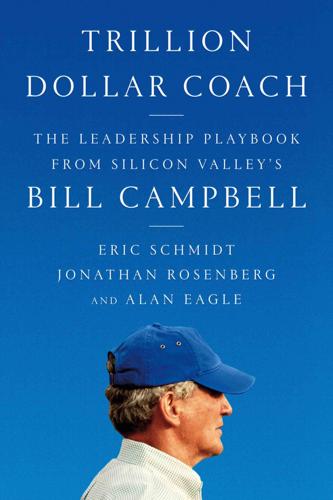
Trillion Dollar Coach: The Leadership Playbook of Silicon Valley's Bill Campbell
by
Eric Schmidt
,
Jonathan Rosenberg
and
Alan Eagle
Published 15 Apr 2019
Come up with a more courageous path forward.” Dick got the team to be more aggressive, and a few months later they announced a deal to give Google access to Twitter’s data stream. Bill’s perspective was that it’s a manager’s job to push the team to be more courageous. Courage is hard. People are naturally afraid of taking risks for fear of failure. It’s the manager’s job to push them past their reticence. Shona Brown, a longtime Google executive, calls it being an “evangelist for courage.” As a coach, Bill was a never-ending evangelist for courage. As Bill Gurley notes, he “blew confidence into people.” He believed you could do things, even when you yourself weren’t so sure, always pushing you to go beyond your self-imposed limits.
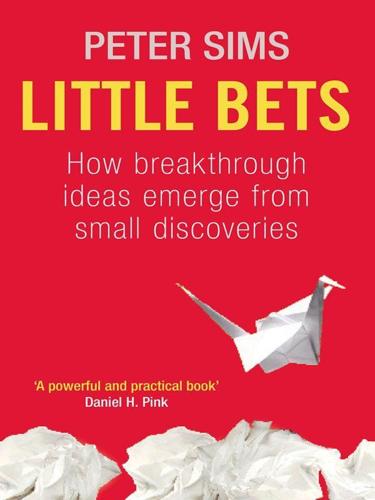
Little Bets: How Breakthrough Ideas Emerge From Small Discoveries
by
Peter Sims
Published 18 Apr 2011
After so many successful buildings completed and so many accolades, Gehry still worries, at least at the start of a project, that he’ll fail. One of the most important insights about the growth mind-set and the productive attitude towards failure that it entails is that it is not about not caring about failure. Not even Frank Gehry can inoculate himself from fears of failure. That is almost surely an integral part of the creative process for everyone to some degree, even those who have achieved the most and the most consistently. The key is that we can teach ourselves to think differently about failures and mistakes, seeing them as opportunities for learning and growth.
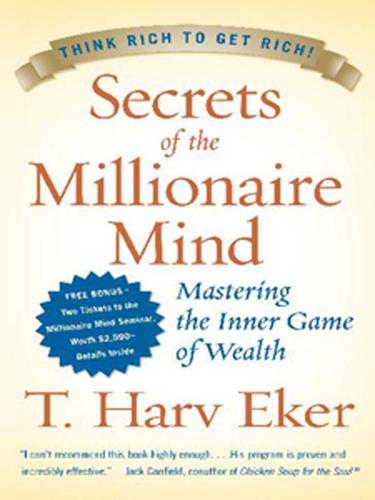
Secrets of the Millionaire Mind
by
T. Harv Eker
Published 15 Feb 2005
In any case, it’s important to recognize that this experience is in the past and that holding on to it may not be serving you today. Second, you may have had a disempowering experience when you tried to sell something to someone and that person totally rejected you. In this instance, your distaste for promotion is merely a projection of your own fear of failure and rejection. Again, realize the past does not necessarily equal the future. Third, your issue might come from past parental programming. Many of us were told that it’s impolite to “toot your own horn.” Well, that’s great if you make a living as Miss Manners. But in the real world, when it comes to business and money, if you don’t toot your horn, I guarantee nobody will.
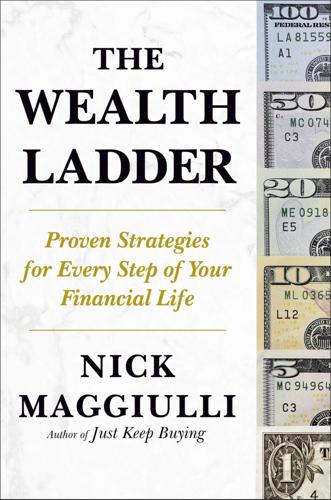
The Wealth Ladder: Proven Strategies for Every Step of Your Financial Life
by
Nick Maggiulli
Published 22 Jul 2025
I created a website called Of Dollars And Data (OfDollarsAndData.com) and began posting once a week. The first year was tough. I experienced a difficult breakup, I was no longer enjoying my litigation consulting job, and I had no idea whether my writing would ever take off. Every week I spent ten hours writing a blog post and felt like I was going nowhere. I had a constant fear of failure. It was so bad that I originally started my blog anonymously in case it didn’t work out. I cannot tell you how many times I thought about giving up. There’s something they don’t tell you about being a new blogger on the internet. When people don’t like your work, they don’t tell you that it sucks.
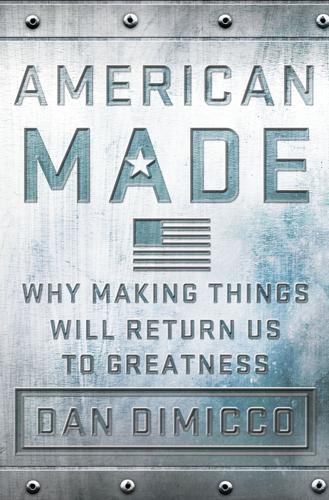
American Made: Why Making Things Will Return Us to Greatness
by
Dan Dimicco
Published 3 Mar 2015
There’s innovation that takes place on an incremental basis, there’s game-changing innovation, and there are degrees in between. Nucor has focused on all of it. We are focused on being able to take risks on game-changing technology that no one else is willing to take. And our strong financial position allowed us to do that without being so overly fearful of failure that we didn’t act when opportunities arose. Time and again, whether it was expanding into cold-rolled sheet metal or forming a partnership with Yamato Steel to produce large construction girders or acquiring companies like Auburn Steel and Birmingham Steel, we knew we could take the risks and knew we could not only survive but also thrive if the investments paid off.
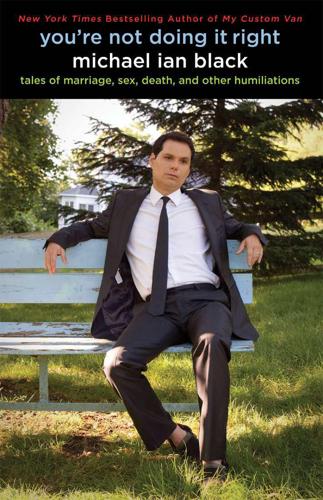
You're Not Doing It Right: Tales of Marriage, Sex, Death, and Other Humiliations
by
Michael Ian Black
Published 28 Feb 2012
A former backup dancer, he now looks like he ate a backup dancer. I do not know why FKF (Fat Kevin Federline) holds such fascination for me. I’ve never met Kevin Federline and do not know anything about him as a person, but I project onto him all the worst fears I have for myself: fear of wasted potential, fear of failure, of losing my family, of making terrible hair decisions. When I see those paparazzi images of FKF, sometimes sporting dopey cornrows, sometimes waddling across some anonymous poolside deck with beer in hand, I imagine a guy who does not know who he is, what he is supposed to be doing, or how he wound up in the unexpected circumstances of his own life.
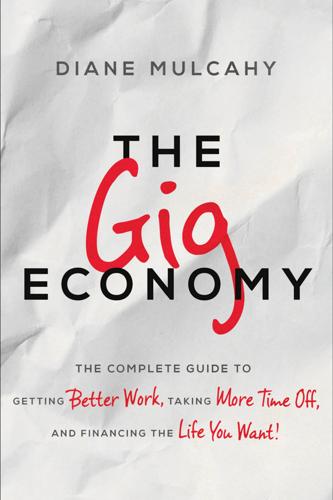
The Gig Economy: The Complete Guide to Getting Better Work, Taking More Time Off, and Financing the Life You Want
by
Diane Mulcahy
Published 8 Nov 2016
How can I be more thoughtful in the offers and asks that I make of others? What system can I put in place to maintain stronger connections to the network I already have? Part Two TAKING More TIME OFF · Chapter Five · FACE FEAR BY REDUCING RISK There is only one thing that makes a dream impossible to achieve: the fear of failure. —PAULO COELHO, The Alchemist Fear can be our biggest and worst enemy. It limits our ability to realize our dreams and keeps us trapped in our everyday lives. The fears that hold us back are big, emotional, and often disconnected from the realities of our actual situation. Beth is an example of someone who faced unfounded fears about unlikely outcomes when she first considered starting her own business.

A Honeybee Heart Has Five Openings
by
Helen Jukes
Published 25 Jul 2018
‘A suspension of disbelief,’ Ellie says on the phone that night, when I call up in a bother to tell her I’m convinced they’ll either leave or die. ‘You have to stop stamping it down so as to make some space for it to happen.’ My feelings are flying about all over the place. What’s got me in a tizz is not the fear of failure or even added responsibility, but the sudden rush of care. I’ve put a lot of thought into how this will work, what makes a good beekeeper – I hadn’t expected to want the bees; I hadn’t expected to feel so implicated. ‘Try not to get so caught up in things,’ Ellie tells me gently, after we’ve said goodbye and before she puts the phone down.
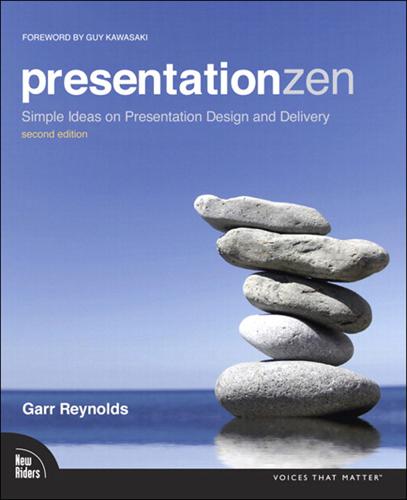
Presentation Zen
by
Garr Reynolds
Published 15 Jan 2012
One who possesses a beginner’s mind is not burdened by old habits or obsessed about “the way things are done around here” or with the way things could have or should have been done. A beginner is open, receptive, and more inclined to say “Why not?” or “Let’s give it a shot,” rather than “It’s never been done” or “That’s not common.” When you approach a new challenge as a true beginner (even as a seasoned adult), you need not be saddled with fear of failure or making mistakes. If you approach problems with the “expert’s mind,” you are often blind to the possibilities. Your expert’s mind is bound by the past; it is not interested in the new, different, and untried. Your expert’s mind will say, “It can’t be done” or “It shouldn’t be done.” Your beginner’s mind will say, “I wonder if this can be done?”

AC/DC: The Savage Tale of the First Standards War
by
Tom McNichol
Published 31 Aug 2006
Edison was never motivated by money, but the prospect of his company skidding into insolvency unnerved him. Casting a weary eye over the company’s balance sheet, Edison commented to colleague Samuel Insull, “This looks pretty bad. I think I could go back and earn my living as a telegraph operator.” Behind the nervous joking was the fear of failure. When word of the merger talks with Thomson-Houston reached him, Edison wrote an unusually impassioned letter to Villard. “If you make the coalition [with Thomson-Houston], my usefulness as an inventor is gone,” Edison wrote. “My services wouldn’t be worth a penny. I can only invent under powerful incentives.

Rethinking Camelot
by
Noam Chomsky
Published 7 Apr 2015
Paul Kattenburg, at the dovish fringe, reported yet another problem: “Chemical defoliation and crop destruction operations are effective weapons against the VC,” but “Present approval procedures are too cumbersome” and “The psychological and civic action aspects of the operation are not particularly good.” The need is for more efficiency and better PR.61 Washington’s coup plans continued, with Ambassador Lodge in operational command. The only hesitation was fear of failure. JFK thought that we “could lose our entire position in Southeast Asia overnight” if the coup plans failed. When the coup finally took place on November 1, replacing Diem and Nhu (who were killed) by a military regime, the President praised Lodge effusively for his “fine job” and “leadership,” an “achievement...of the greatest importance” that “is recognized here throughout the Government.”
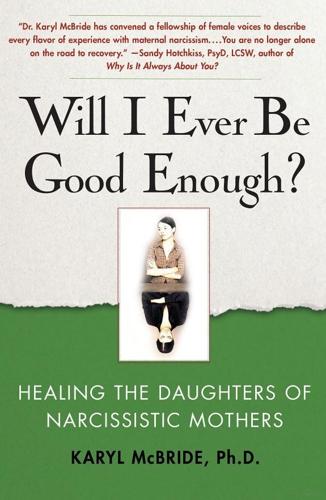
Will I Ever Be Good Enough?: Healing the Daughters of Narcissistic Mothers
by
Karyl McBride
Published 22 Sep 2008
Some of the traits include: Giving up Numbing the pain with various addictions Staying stuck in self-destructive lifestyles Underachievement Here are some stories of self-sabotaging daughters of narcissistic mothers: Taryn always plays it safe. Rarely can she point out an instance in her adult life where she took risks for what she wanted. “I am an underachiever because of the ‘never feel good enough’ message. The fear of failure keeps me from doing the absolute best. If I keep on the middle road, I don’t have to deal with failure. I have big ideas and aspirations, but they are dreams rather than goals. I think, Oh, that would be nice to do, but I don’t do it. Maybe I wouldn’t be good at it.” Sandra readily describes herself as an underachiever.

The Antidote: Happiness for People Who Can't Stand Positive Thinking
by
Oliver Burkeman
Published 1 Jul 2012
On an individual level, too, no matter how much success you may experience in life, your eventual story – no offence intended – will be one of failure. Your bodily organs will fail, and you’ll die. Yet though failure is ubiquitous, psychologists have long recognised that we find this notion appalling, and that we will go to enormous lengths to avoid thinking about it. At its pathological extreme, this fear of failure is known as ‘kakorrhaphiophobia’, the symptoms of which can include heart palpitations, hyperventilation and dizziness. Few of us suffer so acutely. But as we’ll see, this may only be because we are so naturally skilled at ‘editing out’ our failures, in order to retain a memory of our actions that is vastly more flattering than the reality.

To Show and to Tell: The Craft of Literary Nonfiction
by
Phillip Lopate
Published 12 Feb 2013
The ability to perpetrate condensed reflection is not only granted to genius; such skills can be acquired by the apprentice writer as well—first by bluffing, perhaps, but eventually by repetition, as a muscle is taught to stretch—until it becomes a reflex. All it requires is for the emerging writer to give himself or herself permission to try to think in wider terms. The student memoirist’s avoidance of retrospection must finally be seen as part of a larger reluctance to reflect in public. Modesty, fear of failure, and dislike of the arrogance of thought all play their part. Most creative writing students have a surprisingly low estimation of their intellectual equipment (this is true even of those who write brilliant critical papers). They also refuse to believe, fundamentally, that anyone really wants to know what they think.
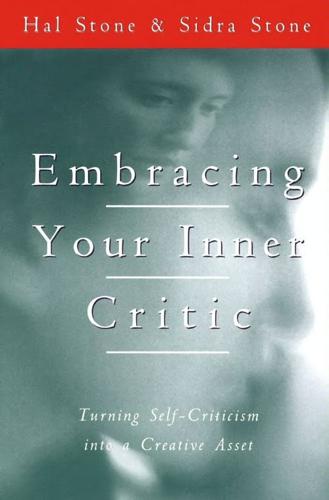
Embracing Your Inner Critic: Turning Self-Criticism Into a Creative Asset
by
Hal Stone
Published 5 Mar 1993
He wants you to be able to figure things out and to solve problems. As you listen to him, you begin to feel pretty stupid. Parents need to succeed in making you a proper person—whatever that means to them—in order to feel good about themselves. Underneath all this is their own insecurity and their own fear of failure as parents. Some aspects of your behavior make your parents pretty uncomfortable. They do not like it when you interrupt them, when you are noisy, when you are angry, or when you cannot sit still. Your curiosity and your sexuality may embarrass them. When you do not obey them, they get annoyed.

Kill It With Fire: Manage Aging Computer Systems
by
Marianne Bellotti
Published 17 Mar 2021
If the organization is making changes that will not provide enough value to justify their expense, boost the value of those changes by turning them into a vehicle of better engineering practices. If the organization is paralyzed by missing information and unknown complications, promote resilience and eliminate the fear of failure. If problems extend beyond what any one team can solve by itself, allow the organization to temporarily reorganize itself around the problem. If teams are demoralized to the point where they are hurting themselves, challenge other parts of the organization to contribute to their success. Legacy modernization projects do not fail because one mistake was made or something went wrong once.

Into the Wild
by
Jon Krakauer
Published 2 Jan 1996
When he got back to civilization, flat broke, he borrowed twenty dollars from Cliff Hudson, the bush pilot who’d flown him out of the mountains, and returned to Fairbanks, where the only work he could find was washing dishes. Waterman was nevertheless hailed as a hero by the small fraternity of Fairbanks climbers. He gave a public slide show of the Hunter ascent that Brady calls “unforgettable. It was an incredible performance, completely uninhibited. He poured out all his thoughts and feelings, his fear of failure, his fear of death. It was like you were there with him.” In the months following the epic deed, though, Waterman discovered that instead of putting his demons to rest, success had merely agitated them. Waterman’s mind began to unravel. “John was very self-critical, always analyzing himself,” Brady recalls.

The Breakup Monologues: The Unexpected Joy of Heartbreak
by
Rosie Wilby
Published 26 May 2021
Whereas a growth mindset is based on a belief that the hand we are dealt is just the starting point. Through application, practice and experience, everyone can develop and grow. As a child, my dad programmed me to believe that I was intellectually bright, a belief consolidated by my school teachers when I sailed through exams. Yet the rewards of these early successes, and my resultant fear of failure, hampered my ability to learn. Over time this became a disadvantage. As a young adult, I held on so tightly to bad relationships because I could not possibly fail. I had so much to live up to. Perhaps a breakup is all the more painful to someone with a tendency towards a fixed mindset. I arrogantly assumed that I should be the one to inspire Secretive Ex-Girlfriend to come out, Agoraphobic Ex-Girlfriend to conquer her anxieties, and Boozy Ex-Girlfriend to get a handle on her drinking.

Nerdy, Shy, and Socially Inappropriate
by
Cynthia Kim
Published 20 Sep 2014
I put a big emphasis in my life on my accomplishments. Doing well is important to me and I often believe there is a standard of perfection that I should live up to, or at least aim for. What I don’t fully see in myself is the worthlessness. I’m hard on myself when I fail, but I bounce back quickly. My fear of failure is low. I’m willing to put myself out there and see what happens, even when I know that the risk of failure is high. It’s rare that I feel worthless, even when I screw up in a big way. THE LINK BETWEEN AUTISM AND PERFECTIONISM As I researched perfectionism, I came across more nuanced models.
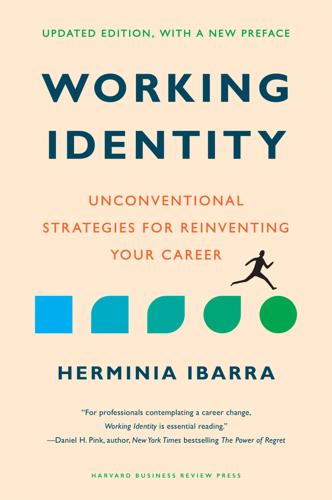
Working Identity, Updated Edition, With a New Preface: Unconventional Strategies for Reinventing Your Career
by
Herminia Ibarra
Published 17 Oct 2023
Let’s assume the forty-four-year-old knew what he wanted to do, had identified it, but decided that the risk for social failure and economic failure was just too great and therefore never did it. How would the seventy-five-year-old feel about that?” And I thought that would be unforgivable. Next, a very weird thing happened to me: It was almost a physical sensation. At that instant, I lost the fear of failure, and it has never come back. It was like losing vertigo. By the way, I am not indifferent to failure. I worried about what people would think and what would happen if I failed. John did all the research for his first book, a financial-world thriller, in his spare time, then scraped together every possible bit of vacation time to go away and write it.
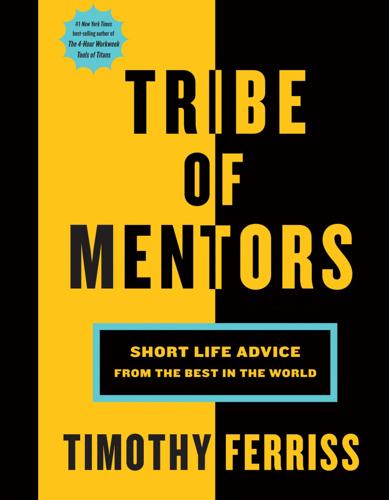
Tribe of Mentors: Short Life Advice From the Best in the World
by
Timothy Ferriss
Published 14 Jun 2017
What advice would you give to a smart, driven college student about to enter the “real world”? Embrace uncertainty, groundlessness, and fear as the place where you’ll really learn and grow. Go into that place, rather than shrinking from it. It’ll help you overcome procrastination, social anxiety, fear of launching your own business or pursuing your dreams, fear of failure and ridicule, and more. Those fears will still be there, but you’ll find the deliciousness in them. When you feel overwhelmed or unfocused, what do you do? I drop into my breath and the sensations I’m feeling in my body. When I feel overwhelmed, I ask myself, “What does this feeling feel like as a bodily sensation, right now?”
…
If you could have a gigantic billboard with anything on it, what would it say and why? “Celebrate the childlike mind.” From what I can see, the best scientists and engineers nurture a childlike mind. They are playful, open-minded, and unrestrained by the inner voice of reason, collective cynicism, or fear of failure. What is so great about the “childlike” mind? Once again, I highly recommend Alison Gopnik’s Scientist in the Crib to any geek about to have a child. Here is one of her key conclusions: “Babies are just plain smarter than we are, at least if being smart means being able to learn something new. . . .

Lean In: Women, Work, and the Will to Lead
by
Sheryl Sandberg
Published 11 Mar 2013
The current negative images may make us laugh, but they also make women unnecessarily fearful by presenting life’s challenges as insurmountable. Our culture remains baffled: I don’t know how she does it. Fear is at the root of so many of the barriers that women face. Fear of not being liked. Fear of making the wrong choice. Fear of drawing negative attention. Fear of overreaching. Fear of being judged. Fear of failure. And the holy trinity of fear: the fear of being a bad mother/wife/daughter. Without fear, women can pursue professional success and personal fulfillment—and freely choose one, or the other, or both. At Facebook, we work hard to create a culture where people are encouraged to take risks. We have posters all around the office that reinforce this attitude.
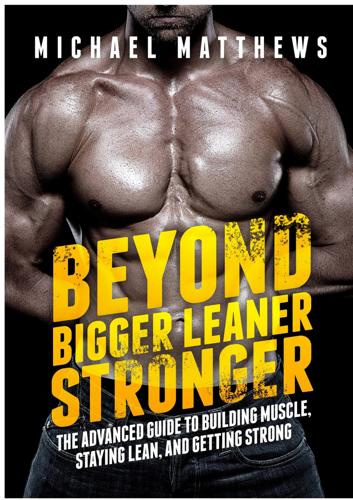
Beyond Bigger Leaner Stronger: The Advanced Guide to Building Muscle, Staying Lean, and Getting Strong
by
Michael Matthews
Published 15 Jun 2014
There are the immediate and obvious effects: you fall behind your peers in your work and are passed over for the promotion, you gain weight and feel lethargic, your health deteriorates, and so forth. Then there’s the insidious: you lose faith in your ability to put your mind to something and see it through; you avoid challenges and opportunities for fear of failure; you criticize yourself, eroding your self-esteem; you become depressed; and so on. Habits cut both ways, though. Forty-five minutes of exercise several days per week, if you do it over a sustained period, can transform your body. Thirty minutes of reading per day, over time, can turn you into an expert in just about anything.

Kicking Awaythe Ladder
by
Ha-Joon Chang
Published 4 Sep 2000
Many people believed that it led to excessive risk-taking (or what today we call 'moral hazard') on the part of both owners and managers. They regarded it as an institution that undermined what was then regarded - along with greed - as one of the key disciplinary mechanisms of capitalism, namely, fear of failure and destitution, especially given the harshness of bankruptcy laws at the time (see section 3.2.4.C). Adam Smith argued that limited liability would lead to shirking by managers. The influential early nineteenth-century economist John McCulloch argued that it would make the owners lax in monitoring hired managers.62 It was also believed, with some justification, to be an important cause of financial speculation.

Animals
by
Emma Jane Unsworth
Published 2 May 2014
My jaw was starting to ache. ‘Far from it. I wanted in. Badly. But then … well, I convinced myself I wasn’t academic enough, I was too creative yadayada, I wouldn’t have time to write blahblah, but really I knew why I didn’t apply. I’d bottled it. Reached my limit with all the trials and tests. Fear of failure – is there a word for that?’ ‘Normal,’ Tyler said. Oh, Tyler, see, you can be so nice when you try … I said: ‘I bet there’s a proper word for it.’ She got out her phone. Tapped on it. Scrolled. Tapped. Scrolled. Squinted. ‘Atychiphobia.’ ‘There you go,’ I said. ‘Also known as the fuse-box.’
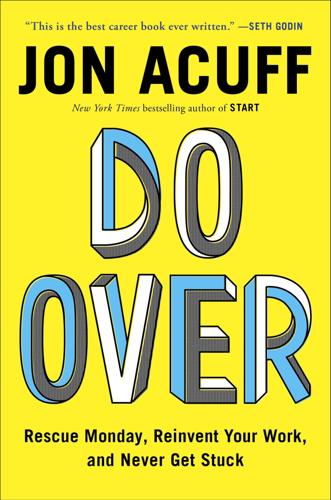
Do Over: Rescue Monday, Reinvent Your Work, and Never Get Stuck
by
Jon Acuff
Published 6 Apr 2015
For all I know, she taught swing dancing for a year full time and then tried something else. Why do I let fear hold her up as the poster child for failure, as if choosing the wrong opportunity at twenty-two years old forever crippled that woman’s career? We get a choice: fear or regret. Will you attack your fear of failure, maybe even fail and try again? Cleaning the beach of your life after a wave that crushed you but left lesson upon lesson in its wake? Or will you give up on your Do Over? Believing that kids can dream but adults must settle? Allowing that thin line of regret to trickle over time until it splits your life in half?
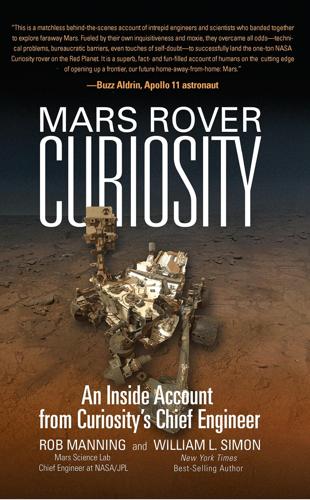
Mars Rover Curiosity: An Inside Account From Curiosity's Chief Engineer
by
Rob Manning
and
William L. Simon
Published 20 Oct 2014
Still, the frequent “No’s” to requested fixes that Jim felt would make his avionics subsystem less buggy led to tension and frustration. Not surprisingly, from the perspective of the subsystem engineers like Jim, every “No” increased the complexity of MSL and possibly increased the risk of some sort of failure or anomaly, even if that failure didn’t kill the rover. The fear of failure is something that gnaws in your gut. In this line of work, that feeling never completely goes away even after the spacecraft has landed safely. On a personal level, my physical condition was now significantly improved. A year or so earlier, my doctor had found that my blood pressure had gone through the roof, and was much concerned about my hypertension, and I had added some fifteen pounds (6.8 kg).

The 80/20 Principle: The Secret of Achieving More With Less
by
Richard Koch
Published 15 Dec 1999
That releases enormous power. It strikes me that this theory of constraints, like the principle, applies both to our work and personal lives: • At work, what is the one constraint that, if it were removed, would make us five, ten or twenty times as productive? For you, is it your boss, your fear of failure, your lack of qualifications, your inability to choose what you work on, your lack of the right collaborator, or something else altogether? What is the constraint, what stops you from enormous improvement? If you identify the constraint, you can then work on a campaign to remove it. • In your private life, what is the one thing that stops you making the best of your life and bringing happiness to the people you care about?
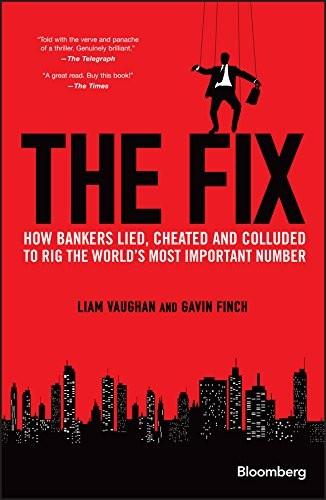
The Fix: How Bankers Lied, Cheated and Colluded to Rig the World's Most Important Number (Bloomberg)
by
Liam Vaughan
and
Gavin Finch
Published 22 Nov 2016
Following his election in 2008, President Obama named Holder Attorney General—the most senior law enforcement officer in the 104 THE FIX country—and Breuer head of the criminal division reporting to him. Former managers in the division complain Breuer was controlling and risk-averse. Cases they felt were solid were dropped because of what they describe as an institutional fear of failure. Short, with cropped hair, glasses and a nasally voice,Breuer courted journalists and closely monitored how his decisions played out in the press. If Breuer was fixated with the media, that was understandable. When he arrived, the criminal division was mired in scandal and infighting. The previous October, Ted Stevens, the 84-year-old Republican Senator for Alaska, was convicted of failing to report gifts, namely renovations to a house he owned.
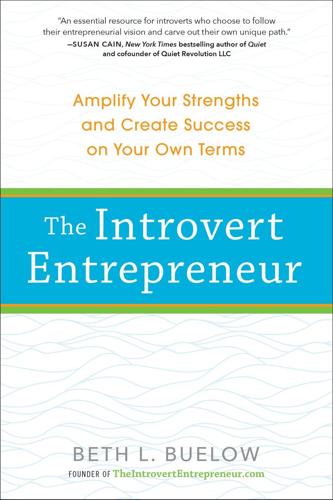
The Introvert Entrepreneur: Amplify Your Strengths and Create Success on Your Own Terms
by
Beth Buelow
Published 3 Nov 2015
You are better able to tap into your introvert strengths of listening, reflection, and curiosity—to explore beyond the norm. Introverts prefer going deep rather than wide, focused rather than scattered. If you combine that depth with openness, you are setting a bigger stage for yourself. Maybe even all the world! Releasing attachment has a magical side effect: Our fear of failure diminishes. Even the word failure starts to take on new meaning and release its power over us. We must be willing to let go of the life we have planned, so as to have the life that is waiting for us. —Joseph Campbell Reframing Risk We’re going to wrap up this chapter by revisiting the word risk, because it’s a close cousin of failure, and being able to embrace both is key to your success.

Confessions of a Surgeon: The Good, the Bad, and the Complicated...Life Behind the O.R. Doors
by
Paul A. Ruggieri
Published 3 Jan 2012
Today, most surgical training programs are kinder and gentler on many fronts (including the hours). When I was a surgical resident, the opportunity to learn the secrets of surgery from my mentors came at a hefty price, paid in blood (literally, at times), humiliation, tears, and chronic sleep deprivation. During my time as a lowly intern/resident, my work ethic was motivated mostly by fear of failure. I was petrified of screwing up because I knew the blame would come down like a hammer. As an underling, if something went wrong or a patient did not do well, I was to blame. No questions asked. Failure morphed into fear, the fear of looking bad or losing a job. Today, there is even more at risk for me, because failure can turn into a death or a lawsuit.
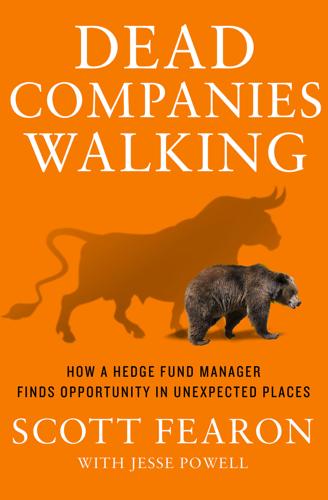
Dead Companies Walking
by
Scott Fearon
Published 10 Nov 2014
That comes directly from an allergic reaction to the idea of failure. Investors don’t want to admit they made a losing decision, so instead of cutting their losses and getting out, they actually double up and triple up on it. Selling a great stock too quickly is the opposite of averaging down, but it is also rooted in people’s fear of failure; they’d rather take a small profit on an investment than risk it going down again. Lynch called these two mistakes, which often go together, “watering the weeds and cutting out the flowers.”* *Peter Lynch interview. Most executives are very smart people. In thirty years of visiting corporate headquarters, I don’t think I’ve ever met a single dumb person who had risen to helm a publicly traded company.

Running the Dream: One Summer Living, Training, and Racing With a Team of World-Class Runners Half My Age
by
Matt Fitzgerald
Published 4 May 2020
Near the end of the form (Question #19), I was invited to name the question I’d most like to be asked when Shannon and I met. She now asked me this very question, her lips cocked in a mischievous smile that let me know she had not read my mind but had simply glimpsed my answer in her brief scan of the form. “What am I most afraid of?” I repeated. “Failure. No, scratch that. What I’m most afraid of is letting my fear of failure ruin this experience. There’s a lot at stake for me here. If I run poorly in Chicago, or if I don’t even make it to the start line—which is all too likely given my history—it will be more than just another disappointment for me personally. I’m not doing this for mere ego gratification. I really want to inspire other runners to see how far they can go with whatever amount of talent they have.

Finding Your Element: How to Discover Your Talents and Passions and Transform Your Life
by
Ken Robinson
and
Lou Aronica
Published 14 Jul 2013
“I discovered that self-esteem was a critical factor in the career assessment and planning equation. People rise to the level of success that their self-esteem can absorb. Those with low self-esteem don’t feel worthy of the rewards that come with success, however they define it. So often, people will talk about their fear of failure and I will find that it’s a mask for the fear of success. Underneath it is the feeling that I don’t deserve whatever success there might be in life.” Once this part of the autobiography process is over, Dr. Schwartz guides clients through the charting of the highlights of their lives using a method similar to the one developed by Bernard Haldane and popularized by Richard Boles in What Color Is Your Parachute?
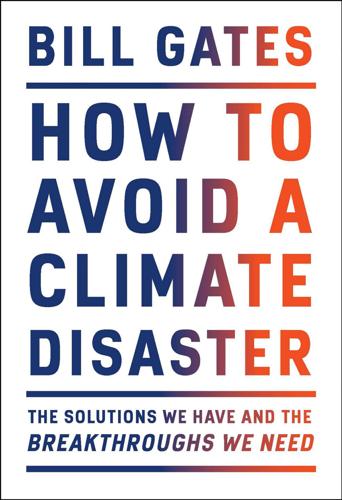
How to Avoid a Climate Disaster: The Solutions We Have and the Breakthroughs We Need
by
Bill Gates
Published 16 Feb 2021
It’s not just a question of how much governments spend. What they spend it on matters too. Governments have been burned by investing in clean energy before (look up “Solyndra scandal” if you need a reminder), and policy makers understandably don’t want to look as if they are wasting taxpayers’ money. But this fear of failure makes R&D portfolios shortsighted. They tend to skew toward safer investments that could and should be funded by the private sector. The real value of government leadership in R&D is that it can take chances on bold ideas that might fail or might not pay off right away. This is especially true of scientific enterprises that remain too risky for the private sector to pursue for the reasons I touched on in chapter 10.
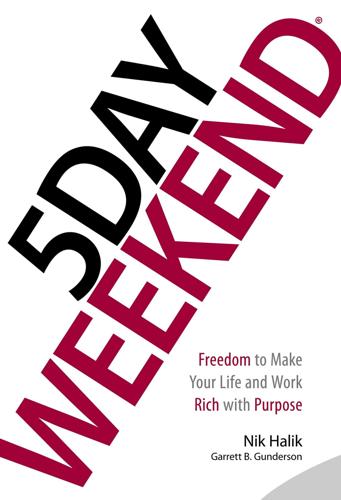
5 Day Weekend: Freedom to Make Your Life and Work Rich With Purpose
by
Nik Halik
and
Garrett B. Gunderson
Published 5 Mar 2018
Productivity, they’ve learned, comes from initiating and working hard in the trenches, not nitpicking and hiding in the lab. In life we never lose — we either win or we learn a valuable lesson. Conquer Perfectionism — Boost Productivity 1. Embrace Failure The greatest barrier to success is the fear of failure. Successful entrepreneurs fail quickly and often, knowing it’s precisely what gets them closer to success. Frequent failure means you’re acting. If you keep going forward — and learn the right lessons from your failures — success is inevitable. Failure is just a resting place. It is an opportunity to begin again more intelligently.
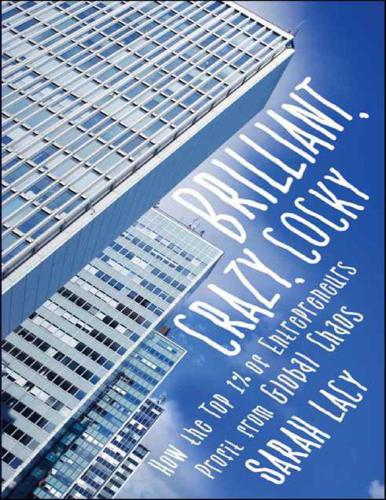
Brilliant, Crazy, Cocky: How the Top 1% of Entrepreneurs Profit From Global Chaos
by
Sarah Lacy
Published 6 Jan 2011
But this was the curse of the Val ey’s great company-formation, money-making machine becoming common knowledge. It was no longer just the believers and risk takers who played a part in it. In a bid to become the place where there was zero stigma against risk or failure, the Val ey eradicated the things that are good about having a fear of failure. Namely, the rush, commitment, and passion that comes with having skin in the game. End of a High-Tech Era Part of al that me-too investing was the fault of limited partners who put way too much money in the hands of VCs, part of it was the fault of VCs, and part of it was just the by-product of a lul in the technology industry.
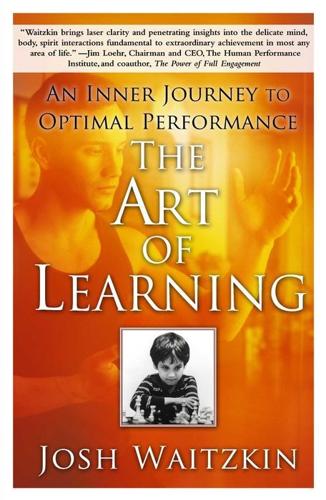
Art of Learning
by
Josh Waitzkin
Published 7 May 2007
My whole career, my father and I searched out opponents who were a little stronger than me, so even as I dominated the scholastic circuit, losing was part of my regular experience. I believe this was important for maintaining a healthy perspective on the game. While there was a lot of pressure on my shoulders, fear of failure didn’t move me so much as an intense passion for the game. I think the arc of losing a heartbreaker before winning my first big title gave me license to compete on the edge. This is not to say that losing didn’t hurt. It did. There is something particularly painful about being beaten in a chess game.
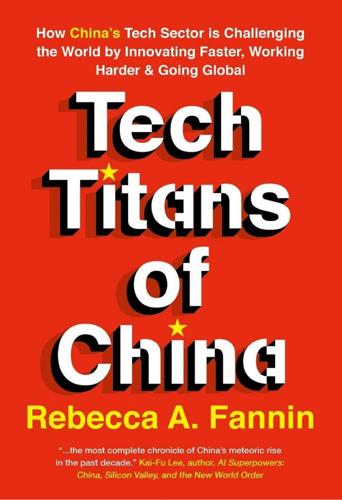
Tech Titans of China: How China's Tech Sector Is Challenging the World by Innovating Faster, Working Harder, and Going Global
by
Rebecca Fannin
Published 2 Sep 2019
There are multifunctional superapps, mobile wallets, mobile shopping in groups, mobile videos and streaming, mobile books, and mobile news apps with no editor. This world-on-a-screen is extended by social sharing features baked into these apps. No other country in the world can match China’s startup zeal. Founders in Beijing, Shanghai, Hangzhou, Shenzhen, and China’s tier-two cities are tireless, persistent, and driven to succeed. No fear of failure here; it’s fear of missing out. Entrepreneurs and venture investors schooled in the West at elite universities such as Stanford, Harvard, Princeton, and Yale, and PhDs trained at top engineering schools like MIT, Caltech, UC Berkeley, and Carnegie Mellon keep returning to China to make their startup mark.
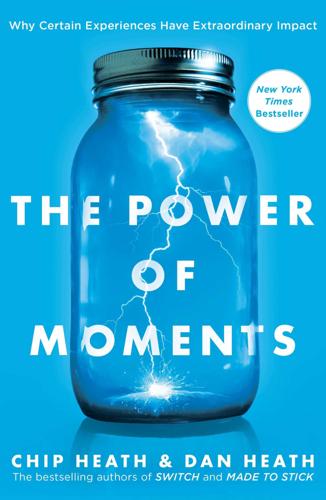
The Power of Moments: Why Certain Experiences Have Extraordinary Impact
by
Chip Heath
and
Dan Heath
Published 2 Oct 2017
When Blakely and her brother were growing up, her father would ask them a question every week at the dinner table: “What did you guys fail at this week?” “If we had nothing to tell him, he’d be disappointed,” Blakely said. “The logic seems counterintuitive, but it worked beautifully. He knew that many people become paralyzed by the fear of failure. They’re constantly afraid of what others will think if they don’t do a great job and, as a result, take no risks. My father wanted us to try everything and feel free to push the envelope. His attitude taught me to define failure as not trying something I want to do instead of not achieving the right outcome.”

Too Much and Never Enough: How My Family Created the World's Most Dangerous Man
by
Mary L. Trump
Published 13 Jul 2020
Freddy couldn’t retaliate when his little brother mocked his passion for flying because of his filial responsibility and his decency, just as governors in blue states, desperate to get adequate help for their citizens during the COVID-19 crisis, are constrained from calling out Donald’s incompetence for fear he would withhold ventilators and other supplies needed in order to save lives. Donald learned a long time ago how to pick his targets. * * * Donald continues to exist in the dark space between the fear of indifference and the fear of failure that led to his brother’s destruction. It took forty-two years for the destruction to be completed, but the foundations were laid early and played out before Donald’s eyes as he was experiencing his own trauma. The combination of those two things—what he witnessed and what he experienced—both isolated him and terrified him.
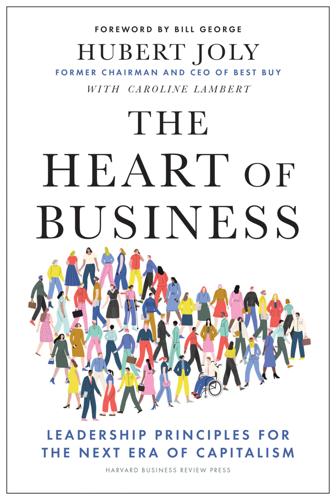
The Heart of Business: Leadership Principles for the Next Era of Capitalism
by
Hubert Joly
Published 14 Jun 2021
A., 228 Minneapolis Institute of Art, 204 minority employees, 90–91, 152, 159–164 Mohan, Mike, 83, 158 Morhaime, Mike, 85 Mulally, Alan, 42–44, 115, 153–154 Musset, Alfred de, 37 Nacchio, Joseph, 214 Nadal, Rafael, 191 Nadella, Satya, 198–199 Napoleon, 200–201 Naraine, Gayatri, 238n7 Nelsen, Keith, 161 New England Conservatory, 189–190 Newman, John Henry, 195 Niedenthal, Paula, 214 Nike, 89, 172 Nikon, 86 Nissan, 214 Noska, Matt, 100 O’Reilly, Charles, 152 Pacino, Al, 192 participative process, 173–175 perfectionism counterproductive striving for, 38–39, 42–43, 45 fear of failure and, 44, 45 feedback as critique of, 39–42 good-enough plans vs., 110–112 human connection effects of, 38, 42, 45 “I don’t know” acceptability vs., 44 imperfection vs., embracing, 38, 41–45 leadership insertion and, 40, 46–47 mental health effects of, 42 outstanding performance vs., 38 problems with, 37–47 religious and theological views of, 37–38, 39 performance assessments of, 188–191, 235 (see also feedback) autonomy improving, 169 feedback evaluating, 39–42, 155 financial incentives not driving, 125–129, 243n4 human connections driving, 148–151 individual development of, 184–185, 189–191 irrational performance with human magic, 6, 117, 181 mastery in, 181–193, 245n3(ch 12) metrics for, 94, 100–101, 113, 130, 184–185, 186–187 outstanding, perfection vs., 38 problems with, embracing and improving, 42–44 (see also vulnerability, encouraging) rankings of, 45, 189 self-assessments of, 188–189 strength building and, 190–191 personal experiences, sharing, 147–148, 155–156 Pew Research Center, 28, 240n1 Pfeffer, Jeffrey, 152 Pink, Daniel, 126, 167 Pliner, Eric, 46–47, 157–158, 170–171 Polgar, Alfred, 238n13 Polman, Paul, 89 Porter, Michael, 218 productivity, 15, 16, 17, 185 profits corporate blind pursuit of, 4, 6, 61, 183 dangers of singular focus on, 57–59 employee engagement and, 15, 17, 57, 61–62 healthy approach to, 62 as misleading measure of economic performance, 56–57 as outcome of excellence, 64, 68, 73–74 scandals due to excessive focus on, 59 shareholder value and, 6, 51, 54–62, 63–65, 74, 192 stakeholders antagonized by singular focus on, 59–61 PTC, 57 Publicis, 111 Puerto Rican hurricane relief, 138–140 purpose of business, 4–5, 6–7, 51, 63–65, 233 (see also purposeful human organizations) discovery of personal, 29–32, 30f employees driven by, 32–34, 61–62, 65–68, 66f, 74, 133–145 framing in meaningful, human, and authentic way, 142–144 growth tied to, 203–204 of incentives, 129–131 leader’s clarity of, 222–223 “noble purpose,” 6, 66–71, 66f, 75, 79–95, 135, 203, 233 shareholder value maximization as, fallacy of, 6, 51, 54–62, 63–65 of work, 11, 23–28, 31, 32–35 purposeful human organizations active engagement with purpose in, 79–95 aspirational goals and vision in, 70 capitalism reinvention by, 62, 65, 73, 74–77 community support and connections in, 68, 72, 88–91 customer delight as goal of, 83–85 customer loyalty to, 64, 67–68, 71–72, 74 employees driven by purpose in, 61–62, 65–68, 66f, 74 environmental and social issues addressed in, 72, 74, 75–76, 88–91, 92, 94 examples of, 72–73 human connections fostered in, 65–77, 66f human magic in (see human magic) inspiration from purpose in, 70–72 interdependence in, 66f, 68 management practices in, 93–95 overview of, 6, 51 profits as outcome of excellence in, 64, 68, 73–74 shareholders rewarded in, 91–92 shareholder value maximization fallacy for, 6, 51, 53–62, 63–65 stakeholders embraced and mobilized in, 82–92 strategy based on purpose in, 66, 74–75, 80–82 supplier and competitor partnerships in, 68, 85–88 turnarounds in, 51, 57, 69, 85, 91–93, 95, 97–117 purposeful leadership articulating principles of, 221 authenticity of, 228–229 clarity of purpose in, 222–223 clarity of role in, 223–224 clarity of service goals in, 224–226 five “Be’s” of, 222–229 overview of, 6, 209 values driving, 218, 226–228 Qwest, 214 racial and ethnic minority employees, 90–91, 152, 159–164 Radio Shack, 2 Radisson Hotels, 41 Ralph Lauren Corporation, 72–73, 89, 143, 202 Rankin, Howard, 162 RASCI (responsible, accountable, supporting, consulted, or merely informed) decision making model, 47, 171–172 rating agencies, calls for action, 235 regulators, calls for action, 235 religion and theology effort vs. outcome focus in, 183–184, 245n3(ch 12) interdependence philosophy echoing, 68 perfection views in, 37–38, 39 purpose discovery using, 29 spirituality as driving force, 138 work views in, 18–19, 24–26, 183, 238n7, 238n11 remote working, 176–177 Rezidor Hotel Group, 199 Rickover, Hyman G., 79 Ritter, Kurt, 199 role modeling, 141 ROWE (results only work environment), 176–177 Sacilor, 213 safety, environment of, 150–151, 153–154, 193, 227–228 Saksena, Asheesh, 197–199 Salesforce, 54, 89–90 Samsung Electronics, 86–87, 196 Samuel (Father), 37–39, 41, 47 Scarlett, Kamy, 144, 147–148, 152, 153, 190 Schmidt, Chris, 184–185, 186 Schulze, Dick, 1–2, 102–104, 110, 123–125 scientific management, 127, 168 Sears, 58 service customer, 14–15, 21, 31, 34 leader’s clarity of goals for, 224–226 purpose tied to, 6, 30–31, 51, 67–68, 69, 75, 242n14 work as opportunity for, 27–28, 238n7 SFR, 57 shareholders business connection to, 68 calls for action for, 235 environmental and social issue importance to, 60–61, 241nn11–12 expectations for businesses, 4 positive environment creation for, 114–115 responsible investments of, 241n11 rewarding, 91–92 shareholder value, 6, 51, 54–62, 63–65, 74, 192 transparency with, 115–116 shareholder value Best Buy’s, 58–59, 61, 192 dangers of singular focus on, 57–59 employee engagement and, 61–62 healthy approach to, 62 maximization of, fallacy of business purpose as, 6, 51, 54–62, 63–65 as misleading measure of economic performance, 56–57 purposeful and human approach improving, 74 scandals due to excessive focus on, 59 stakeholders antagonized by singular focus on, 59–61 Sheth, Jag, 73 Shin, J.
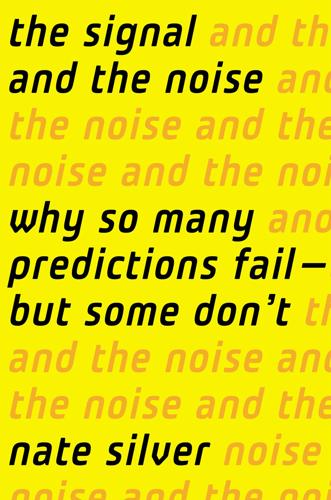
The Signal and the Noise: Why So Many Predictions Fail-But Some Don't
by
Nate Silver
Published 31 Aug 2012
One moment, they were the king of the hill in high school; the next, they are riding busses between Kannapolis and Greensboro, reading about their failures on the Internet each time they go into a slump. When Sanders sees a talented player underachieving, he wonders, “Is there a desire to succeed to the degree that there’s a failure mechanism kicking in? Is there a fear of failure? Is the desire to succeed significant enough to overcome the fear of failure?” Stress Management and Humility In baseball, even the best hitters fail a majority of the time, and every player will enter a slump at certain points during the season. The ability to cope with this failure requires a short memory and a certain sense of humor.

The Inequality Puzzle: European and US Leaders Discuss Rising Income Inequality
by
Roland Berger
,
David Grusky
,
Tobias Raffel
,
Geoffrey Samuels
and
Chris Wimer
Published 29 Oct 2010
Greater partnerships between government and business can improve the efficiency and effectiveness of training programs. Reducing and removing barriers to geographical and occupational mobility, such as improving the portability of pensions, can also help. Lastly, we need to explore ways to incentivize mobility, and one of the major obstacles is a fear of failure, a reluctance to take risks. This is an area where governments can help, if only by reforming insolvency laws and procedures to reduce the stigma of bankruptcy. Programs, support networks, and funding to stimulate entrepreneurship can also play a very positive role to incentivize mobility. The media can also play a more constructive role by giving more exposure to responsible business practices and achievements.

Admissions: A Life in Brain Surgery
by
Henry Marsh
Published 3 May 2017
I am told anxiety dreams about examinations are quite common, but I find it curious that it is so locked into my subconscious. When I was allowed back to the university after running away, and after my brief stay in the psychiatric hospital – I continued to see my psychiatrist once a week – I worked frenetically hard and got a good degree, so I do not know why this fear of failure so often haunts me when I sleep. I got out of bed to find that the mountains of the Annapurna range had miraculously appeared, where before there had been only cloud. It’s more as though they had suddenly arrived, in complete silence, from somewhere else, that they had descended from heaven.
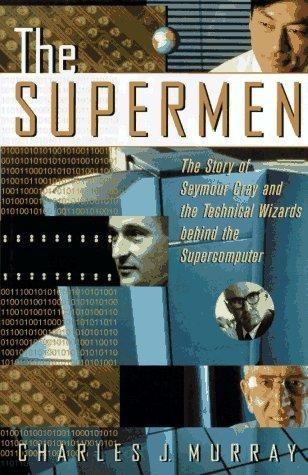
The Supermen: The Story of Seymour Cray and the Technical Wizards Behind the Supercomputer
by
Charles J. Murray
Published 18 Jan 1997
His purist approach might have been regarded as naive or unrealistic if he were working for a big auto or aircraft company, but Cray recognized that there was a profound differ- ence between his job and the jobs of engineers at typical Ameri- can corporations. Cray was always on the cusp of revolutionary new technology. His machines couldn't be designed by a commit- tee. Committees, by nature, were always conservative, compro- mising, and fearful of failure. Cray was none of those things. So Cray ignored his management. Using the extraordinary suc- cess of the CDC 1604 as leverage, he bulled ahead. He was going to build a machine fifty times faster than the 1604, and that was that. Late in 1960 Cray gathered the engineering crew for his new ma- chine and moved from 501 Park to the Strutwear Building, a for- mer underwear factory.
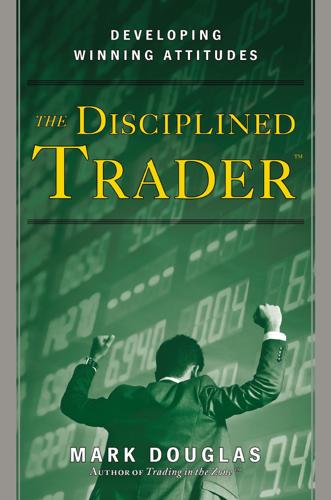
The Disciplined Trader: Developing Winning Attitudes
by
Mark Douglas
Published 1 Jan 1990
This concept can be explained with a simple illustration. If you perceive an opportunity, based on your definition or what market conditions constitute an opportunity, and do not follow through by executing a trade, what stopped you? In my mind, there can be only two possible reasons. You were either immobilized by the fear of failure or you are struggling with a belief (value) system that says you don't deserve the money. Otherwise, you would have acted on your perception. SELF-ACCEPTANCE The second theme that provides a foundation for the belief system I am offering is that personal transformation, growth, and learning new skills are a function of self-acceptance.
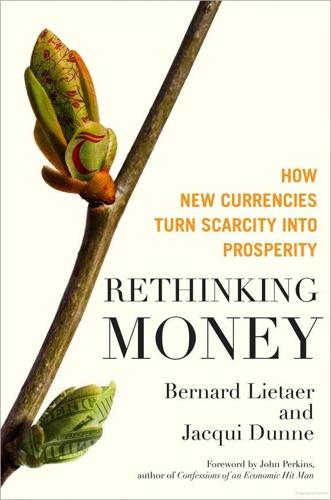
Rethinking Money: How New Currencies Turn Scarcity Into Prosperity
by
Bernard Lietaer
and
Jacqui Dunne
Published 4 Feb 2013
And what would a truly cooperative society, which has not existed since the dawning of the Modern Age, look like? In the following chapters, we will explore this available future that stands in such stark contrast to our world today. Success, in the words of Winston Churchill, “consists of going from failure to failure without loss of enthusiasm.” The greatest barriers to success so far have been the fear of failure and the failure to learn from mistakes. This page intentionally left blank Chapter Ten TRUTH AND CONSEQUENCES Lessons Learned In dreams begin responsibility.1 William Butler Yeats, 20th-century Irish poet and playwright It was hard to contain the emotions that were surprisingly welling up inside while I was standing on the bridge in the small Tyrolean village of Wörgl.
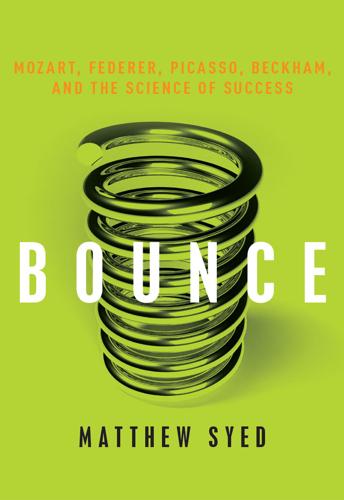
Bounce: Mozart, Federer, Picasso, Beckham, and the Science of Success
by
Matthew Syed
Published 19 Apr 2010
But when he moved to one of the most prestigious sporting facilities in Europe, his development stalled. He had access to every conceivable advantage, but this counted for nothing because he had started to inhabit a very different psychological world: a world characterized by a preoccupation with talent, with wanting to look good, with fear of failure and an aversion to hard work. Today, Knight is back on track. Why? Because Steen Hansen, the Danish-born performance director of English table tennis, realized that Knight’s problem was not technical or tactical, but psychological. His problem was mind-set. Hansen instructed the coaches to abide by the prescriptions of Dweck: to praise effort, not talent; to encourage Knight to embrace failure as a means of realizing his potential; to eulogize personal transformation.
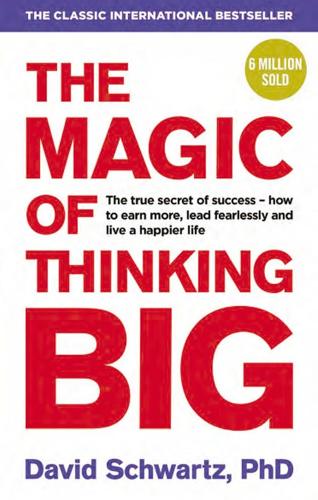
The Magic of Thinking Big
by
David J Schwartz
Published 4 Feb 2016
But, after a decade or so, resistance begins to build up, competition for top-level jobs looks rugged. This group then decides that greater success is not worth the effort. They rationalize, “We’re earning more than the average and we live better than the average. Why should we knock ourselves out?” Actually, this group has developed a set of fears: fear of failure, fear of social disapproval, fear of insecurity, fear of losing what they already have. These people aren’t satisfied because deep down they know they have surrendered. This group includes many talented, intelligent people who elect to crawl through life because they are afraid to stand up and run.

On Writing: A Memoir of the Craft
by
Stephen King
Published 1 Jan 2000
There may come a point when you want to show what you’re doing to a close friend (very often the close friend you think of first is the one who shares your bed), either because you’re proud of what you’re doing or because you’re doubtful about it. My best advice is to resist this impulse. Keep the pressure on; don’t lower it by exposing what you’ve written to the doubt, the praise, or even the well-meaning questions of someone from the Outside World. Let your hope of success (and your fear of failure) carry you on, difficult as that can be. There’ll be time to show off what you’ve done when you finish … but even after finishing I think you must be cautious and give yourself a chance to think while the story is still like a field of freshly fallen snow, absent of any tracks save your own. The great thing about writing with the door shut is that you find yourself forced to concentrate on story to the exclusion of practically everything else.

Do No Harm: Stories of Life, Death and Brain Surgery
by
Henry Marsh
Published 13 Mar 2014
Even now, more than thirty years later, I can see very clearly the dying man’s despairing expression as he looked at me as I turned away. There was a slightly grim, exhilarating intensity to the work and I quickly lost the simple altruism I had had as a medical student. It had been easy then to feel sympathy for patients because I was not responsible for what happened to them. But with responsibility comes fear of failure, and patients become a source of anxiety and stress as well as occasional pride in success. I dealt with death on a daily basis, often in the form of attempted resuscitation and sometimes with patients bleeding to death from internal haemorrhage. The reality of cardio-pulmonary resuscitation is very different from what is shown on TV.

New Dark Age: Technology and the End of the Future
by
James Bridle
Published 18 Jun 2018
In 2011, for example, he published one study based on Utrecht’s main train station that seemed to show that people exhibited more racist behaviour in dirty environments, and another claiming that eating meat made people selfish and antisocial.13 Both relied on nonexistent data. When he was exposed, Stapel blamed his actions on a fear of failure and the pressure on academics to publish frequently and prominently in order to maintain their positions. Hwang and Stapel, while outliers, might embody one of the reasons articles in the most prominent journals are more likely to be retracted: they’re written by the scientists making the biggest claims, under the most professional and societal pressure.
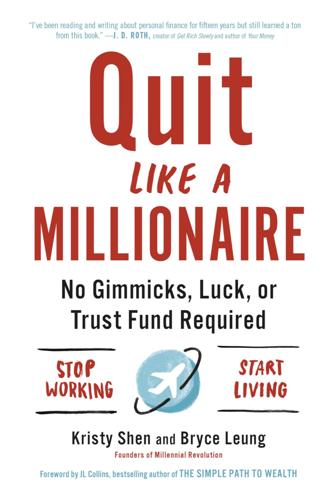
Quit Like a Millionaire: No Gimmicks, Luck, or Trust Fund Required
by
Kristy Shen
and
Bryce Leung
Published 8 Jul 2019
They had gone to summer camp and had gotten cars or tickets to Europe as graduation presents, but after graduation they ended up unemployed and living in their parents’ basements. This baffled me. I had started off poor and made it to middle-class; they’d started off middle-class, so shouldn’t they have been ahead of me? What I later realized is that for them, that ingrained fear of failure was simply . . . missing. When I asked what they were doing to improve their lot, they would say, “I’m sure things will work out,” or “I don’t know, work’s not my thing.” For them, failure was totally an option. I was born into a situation where scarcity was all I knew. But, as we’ve discussed, that mind-set ended up being a blessing in disguise.
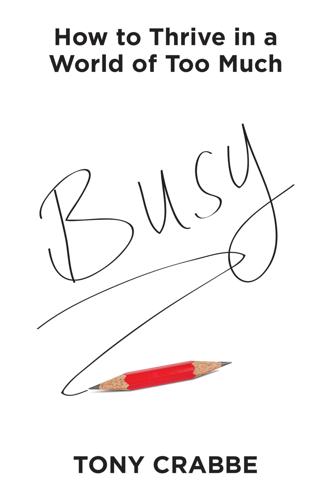
Busy
by
Tony Crabbe
Published 7 Jul 2015
Who else has solved a similar problem? What can you learn from them? EXPERIMENT Killer Question Try using this killer question in meetings and discussions: “What problem are we trying to solve?” It can have a profound effect. Fail Practice failing constructively, to learn and remove your fear of failure. Deliberately choose an activity or project you think you are likely to fail at; enter it with an intention to learn. Chapter 7 Busy Is a Terrible Brand (Develop a Better Brand) All twenty tables contained three glasses, one marked A, one B and one C. Each glass contained a different beer: Budweiser, Coors and Miller.

Crushing It!: How Great Entrepreneurs Build Their Business and Influence—and How You Can, Too
by
Gary Vaynerchuk
Published 30 Jan 2018
We’re always more effective against the demons we know and can identify than the ones hiding in the dark. All the reasons people throw out to justify why they’re not doing what they say they want to do boil down to one of three kinds of fear, each of which requires a different response. Fear of Failure Well, that’s what people say they’re afraid of, anyway. I think what they’re really afraid of is being judged by people whose opinions mean something to them. I’m not going to minimize this. I know it well. I don’t give a crap what people think, and yet there are days when I will go to ridiculous lengths to turn around someone’s negative opinion of me because I care equally what everybody thinks about me.

Discovering the Inner Mother: A Guide to Healing the Mother Wound and Claiming Your Personal Power
by
Bethany Webster
Published 5 Jan 2021
The cost of avoiding the Mother Wound is simply too great. It ensures that the disowned pain of the Mother Wound will continue to be passed down to future generations. The cost to our personal lives means living our lives indefinitely: With a vague, persistent sense that “There’s something wrong with me.” Never actualizing our potential out of fear of failure or disapproval. Having weak boundaries and an unclear sense of self. Not feeling worthy or capable of creating what we truly desire. Not feeling safe enough to take up space and voice our truth. Arranging our lives around “not rocking the boat.” Self-sabotaging when we get close to a breakthrough.
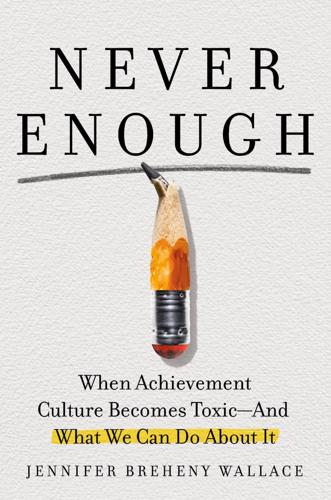
Never Enough: When Achievement Culture Becomes Toxic-And What We Can Do About It
by
Jennifer Breheny Wallace
Published 21 Aug 2023
In other words, we need to separate the deed from the doer. You still love the person, but you don’t love the action. When we’re able to clearly separate the two, a child doesn’t link their worth to their behavior, whether “good” or “bad.” This creates room to make mistakes and grow up without fear of failure. In reflecting on her childhood, Beth realized that both of her parents tied their own self-esteem to her successes. Researchers call this phenomenon “child-contingent self-esteem.” The connection between parent and child is complex enough to permit two-way traffic—parents sway their kids’ self-worth and adjust their own self-worth depending on their offspring’s accomplishments.
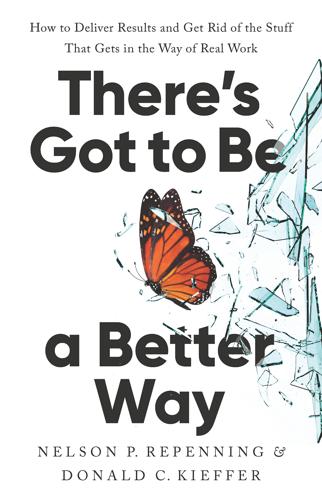
There's Got to Be a Better Way
by
Nelson P. Repenning
and
Donald C. Kieffer
Published 26 Aug 2025
This is a great roadmap for learning how to identify core challenges, embrace flexibility, and experiment with new ideas to refine processes that have been holding your team back. Understanding how to swiftly identify the issue will allow leaders to pivot quickly—or boldly move in a different direction—without the fear of failure. Problem-solving in this way will ultimately drive long-term success and collaboration.” —Joe Eastin, executive chairman and cofounder, ISN “In There’s Got to Be a Better Way, Nelson Repenning and Donald Kieffer deliver a compelling road map for overcoming organizational inertia. With a wealth of real-world case studies and a proven framework, the authors introduce Dynamic Work Design—a practical, principle-driven approach that helps leaders unlock efficiency, drive sustainable change, and foster innovation.

A Beautiful Mind
by
Sylvia Nasar
Published 11 Jun 1998
Underneath the brilliant surface of his life, all was chaos and contradiction: his involvements with other men; a secret mistress and a neglected illegitimate son; a deep ambivalence toward the wife who adored him, the university that nurtured him, even his country; and, increasingly, a haunting fear of failure. And the chaos eventually welled up, spilled over, and swept away the fragile edifice of his carefully constructed life. The first visible signs of Nash’s slide from eccentricity into madness appeared when he was thirty and was about to be made a full professor at MIT. The episodes were so cryptic and fleeting that some of Nash’s younger colleagues at that institution thought that he was indulging a private joke at their expense.
…
When those problems are solved it will be by a young mathematician who attacks them with the hubris, originality, raw mental power, and sheer tenacity that Nash brought to bear on his greatest work. Yet the timing of Nash’s decision to pursue these problems, just as he turned thirty and while he was licking various wounds to what he would later call his “merciless superego,”30 suggests that a fear of failure lay behind his willingness to take unusual risks. Stein’s impression of Nash during their conversations about the Riemann problem is interesting: “He was a little .. . on the wild side. There was something exaggerated about his actions. There was a flamboyance in the way he talked. Mathematicians are usually more careful about what they will assert to be true.”31 But, of course, hubris is not exactly uncommon.
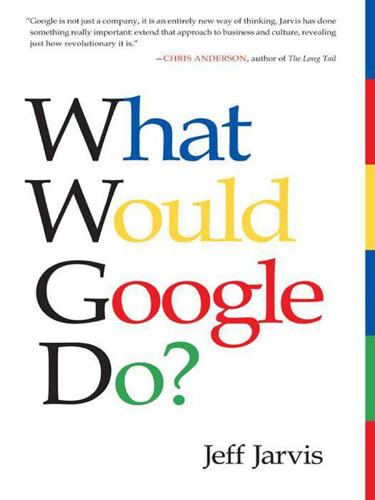
What Would Google Do?
by
Jeff Jarvis
Published 15 Feb 2009
It’s simple for a competitor with a better answer to steal your customers in a flash. New Imperatives Beware the cash cow in the coal mine Encourage, enable, and protect innovation Simplify, simplify Get out of the way Beware the cash cow in the coal mine Sometimes, success can blind you to the oncoming possibility of failure. And fear of failure can keep you from success. When I was TV critic for TV Guide in the mid-1990s, it still sold more copies in a year than any magazine in America. But it was slowly fading, stuck in the first stage of death: denial. Its circulation had fallen from more than 17 million a week to 15 million, then 13 million while I was there (entirely the fault of my bad taste, of course).
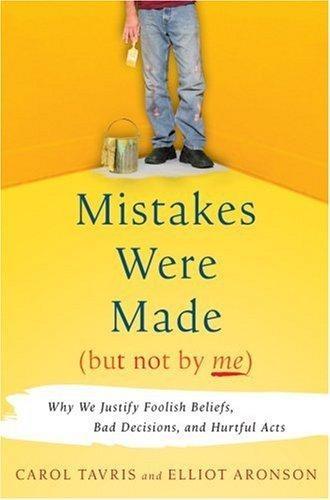
Mistakes Were Made (But Not by Me): Why We Justify Foolish Beliefs, Bad Decisions, and Hurtful Acts
by
Carol Tavris
and
Elliot Aronson
Published 6 May 2007
"I successfully discovered 10,000 elements that don't work." Most American children, however, are denied the freedom to noodle around, experiment, and be wrong in ten ways, let alone ten thousand. The focus on constant testing, which grew out of the reasonable desire to measure and standardize children's accomplishments, has intensified their fear of failure. It is certainly important for children to learn to succeed; but it is just as important for them to learn not to fear failure. When children or adults fear failure, they fear risk. They can't afford to be wrong. There is another powerful reason that American children fear being wrong: They worry that making mistakes reflects on their inherent abilities.

Comedy Writing Secrets
by
Mel Helitzer
and
Mark Shatz
Published 14 Sep 2005
And Now a Word From the Prof The formal study of humor in colleges has grown in geometric propor¬ tions despite the doubting colleagues who associate facetiousness with frivolity. The president of my university once told me he disdained humor, because he feared failure. "I've heard some of your speeches," I told him. "And I agree with you." It's the fear of failure, however, that continues to be the biggest draw¬ back. While 90 percent of us claim we have a sense of humor, the number of critics is 100 percent. "I didn't think it was funny." Go argue. Milton Berle ended his years appearing before senior citizens in Miami Beach. Once, a little old lady in the front row kept shouting, "That stinks.

Leaving Microsoft to Change the World: An Entrepreneur's Odyssey to Educate the World's Children
by
John Wood
Published 28 Aug 2006
As I listened to the lugubrious foghorn protecting the Golden Gate Bridge, I thought about how my faithful sleeping bag had been with me on that initial trip to Nepal and was now also here during the hard part of putting ethereal dreams into solid reality. I resumed work at 6 a.m., fueled by the omnipresent fear of failure. I typed frantically, making a mental note to spell-check later. At 1:45 I dashed off to the local YMCA to shower, shave, and don fresh clothes. Screeching into the parking lot, I saw Bill and Jenny pull up in his red Mercedes convertible. I ducked into the office ahead of them. On the printer’s output tray sat two thick copies of our business plan.
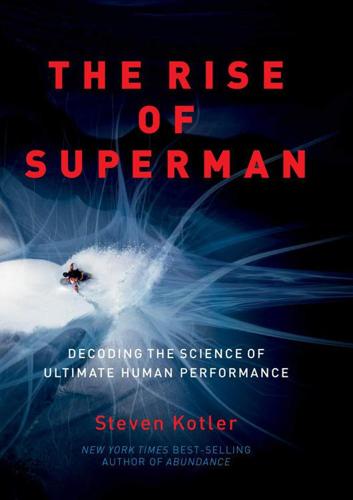
The Rise of Superman: Decoding the Science of Ultimate Human Performance
by
Steven Kotler
Published 4 Mar 2014
There are plenty to choose from but “the process of developing original ideas that have value” is arguably the most common, so we’ll go with that. The first thing to know about coming up with original, valuable ideas is how deeply this process scares us. Every time we have a creative insight and share it with the world, we come up against some very primal terrors: fear of failure, fear of the unknown, fear of social ridicule, fear of loss of resources (time, money, access, etc.). There’s significant risk involved in every step of this process. Drilling down deeper, beyond the risk taking involved in idea generation, there’s a second mechanism at work: pattern recognition.
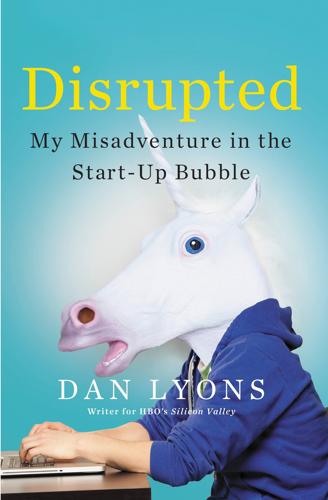
Disrupted: My Misadventure in the Start-Up Bubble
by
Dan Lyons
Published 4 Apr 2016
This is organized by Jordan, the twenty-something manager who has read Facebook COO Sheryl Sandberg’s book Lean In and been inspired by Sandberg’s admonition that women should “do what you would do if you weren’t afraid.” Jordan seems to believe that Sandberg’s admonition can be used as the basis of a one-day exercise, which she dubs Fearless Friday. She sends us this email: We’ve got a brilliant team and, at times, it can be hard to innovate due to fear of failure and the pressure of our day-to-day goals. That’s why we’re creating this day to exist in total isolation to work on ANY project that you’re passionate about. The only goal: Be Fearless. I read the email and forget about it. A couple weeks later, on a Thursday afternoon, I’m sitting at my desk when Ashley from the blog team suddenly asks me, “So what are you going to do for Fearless Friday?”

Alpha Girls: The Women Upstarts Who Took on Silicon Valley's Male Culture and Made the Deals of a Lifetime
by
Julian Guthrie
Published 15 Nov 2019
It would need to be sold. * * * Theresia dragged herself home every night, telling her husband, Tim, “It’s Armageddon out there.” She felt stuck in the lowest point of a J-curve, where losses dipped below the initial value. A year and a half into her venture career, she still couldn’t shake her fear of failure. She wasn’t afraid of missing a mortgage payment or being out of a job; she could always find another job. Rather, she was afraid she wouldn’t prove to be smart enough, agile enough, for this job. She’d heard of other VCs being ominously “disappeared”—parked in a firm’s portfolio company. A VC who was not going to make it to the next level would just be nudged out of venture and into doing marketing for a faltering start-up.

How to Fail: Everything I’ve Ever Learned From Things Going Wrong
by
Elizabeth Day
Published 3 Apr 2019
Southgate issued a direct plea to the media ‘to decide if they want to help the team or not’. England delivered one of their best ever World Cup performances. The task had not become impossibly daunting, and this fed into a sense of renewed confidence and, ultimately, motivation. By the same token, my own personal fear of failure on the tennis court, which ultimately stemmed from my fear of social rejection and my tendency to fall into a quagmire of self-loathing at the slightest hint of things going wrong, had thrown Harkness’s equation out of balance. I was making myself permanently demotivated. According to Harkness, the key is to separate a sporting loss from your sense of identity.

Going Solo: The Extraordinary Rise and Surprising Appeal of Living Alone
by
Eric Klinenberg
Published 1 Jan 2012
In public, some who live alone may feel stigmatized or stereotyped. But when they’re home, playing with their pet companion, they can hardly feel the bite.31 THE TRUTH IS, eliminating the pain related to living alone is no more possible than eliminating the pain related to living. Some feelings—loneliness, regret, fear of failure, anxiety about what lies ahead—are said to be common among singles. Lori Gottlieb, for instance, depicts single women in their thirties and forties as “miserable,” while Linda Waite describes the unmarried as emotionally unhealthy compared to their married peers. As people who live alone are quick to point out, however, people who are coupled up, or have children, or live with friends and family experience no shortage of difficulties—loneliness included.

Gray Day: My Undercover Mission to Expose America's First Cyber Spy
by
Eric O'Neill
Published 1 Mar 2019
One look at the memo waiting for me crushed any thought I had of surviving the day. I wanted to curse out loud. Instead, my leaden fingers hit Print. “Our car wouldn’t start.” I glanced up from my desktop. “I had to help Juliana jump the…” Hanssen’s face stole away my false cheer. I knew without a doubt that my dream portended more than just my fear of failure. Any moment now the gun would appear. His voice cracked the silence between us. “Follow me.” I paused to retrieve the single sheet of paper from the printer beside my desk and followed Hanssen into his office. The memo was still warm. It hung from my fingers like a living thing. Hanssen stopped me and pointed to the TV stand next to the door.

The Burning Land
by
George Alagiah
Published 28 Aug 2019
By the time they got back the driver had already returned with a couple of buns and tea for Khethiwe. ‘Sorry, we got distracted,’ Lindi said, sensing Khethiwe’s irritation. ‘Well, it is time to move,’ Khethiwe said. ‘This driver is not from here so we must leave some extra time.’ Suddenly the joi de vivre dissipated. Lindi felt her stomach clench. But it wasn’t the old fear of failure that flooded in, ready to ambush her. She realised, with a clarity that had been absent till now, just how much was at stake. ‘What will you do?’ she asked Kagiso. ‘Exactly as we discussed,’ he said. ‘No, I mean if she’s not there … if it goes wrong.’ She hadn’t dared to ask the question before.
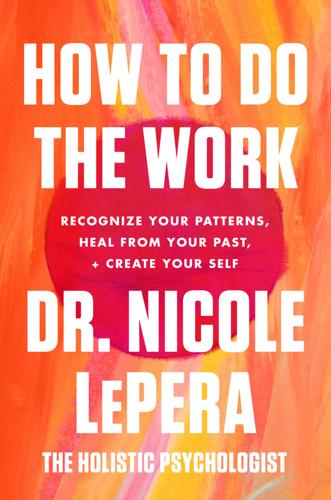
How to Do the Work: Recognize Your Patterns, Heal From Your Past, and Create Your Self
by
Nicole Lepera
Published 9 Mar 2021
Conclusion: I am a worthless and angry person. While this of course isn’t the truth, the more we listen to our ego, the more these narratives become our reality. Let’s say you want to start journaling, and your ego says, “This is a waste of time. You have so many other more important things to do,” as a way to save you from the fear of failure or the fear of what you might uncover. Or you take yourself out of the running for a job promotion even though you’re overqualified in order to protect yourself from the possible sting of rejection. The more shame we carry, the more the ego wants to avoid future situations where we could experience more shame or any deeper pain.
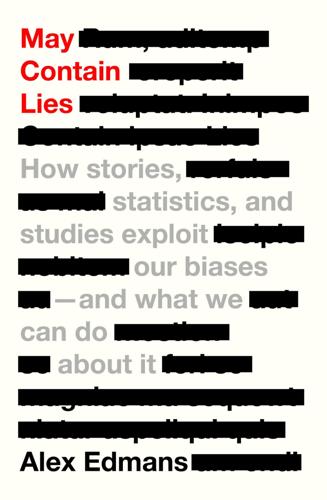
May Contain Lies: How Stories, Statistics, and Studies Exploit Our Biases—And What We Can Do About It
by
Alex Edmans
Published 13 May 2024
If they found that CEOs who like red perform better, they can then bury their heads in the psychology literature, hoping to find evidence that red triggers dominance and so enhances performance – and indeed such a study exists.3 The authors could write a paper starting with the hypothesis that red-loving CEOs will conquer all, using this article as justification, and then testing it; you’d be none the wiser that things happened in the opposite order. Or, if the data showed that CEOs who like red perform worse, the authors could hunt for research that seeing the colour red leads to fear of failure – and indeed such a study exists.4 How can we tell if a hypothesis is reverse-engineered? To see how, we’ll delve into my past to look at the first paper I ever published, where I had to rebut concerns of data mining. I started it at the beginning of the second year of my Ph.D. But we need to first go a couple of months further back, to the summer of 2004, when the seeds of the idea were sown.
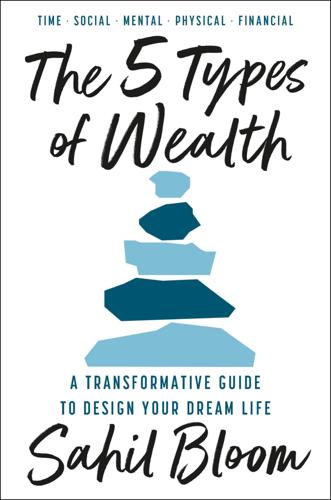
The 5 Types of Wealth: A Transformative Guide to Design Your Dream Life
by
Sahil Bloom
Published 4 Feb 2025
According to her research, there are two core mindsets: The fixed mindset, which assumes ability, intelligence, and character are static The growth mindset, which assumes ability, intelligence, and character are dynamic The fixed mindset is grounded in the central belief that everything about who you are as an individual is immutable—set in stone. As Dr. Dweck showed through her research, this belief has wide-ranging implications for how you work, live, and even love. The fixed mindset creates a hunger for external affirmation, rewards, and approval, a deep fear of failure and rejection, and a flawed conclusion that if things aren’t good now, they never will be. The growth mindset, however, is grounded in the central belief that everything about who you are as an individual is malleable—that sincere effort can cultivate change, growth, and continuous improvement.

My Friend Anna: The True Story of a Fake Heiress
by
Rachel Deloache Williams
Published 15 Jul 2019
Our parents wanted us to work hard and follow our passions, and they gave us the tools to do it. They energetically supported us in our pursuits but also gave us the space to find our own way. They didn’t seem terribly focused on the mistakes we made because they wanted us to meet tough challenges with excitement rather than a fear of failure. I know now that I was quite fortunate. I had been given the strength and confidence to follow my dreams and I believed there was at least a kernel of goodness in every person. * * * New York entered my mind’s eye through stories my dad told. Being from Brooklyn defined him. I pictured the city like the grainy, black-and-white photographs he’d taken when he lived there, street scenes of panhandlers and vagabonds, friends and strangers.
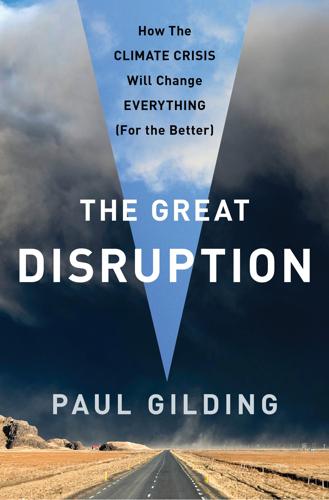
The Great Disruption: Why the Climate Crisis Will Bring on the End of Shopping and the Birth of a New World
by
Paul Gilding
Published 28 Mar 2011
This is sometimes an appealing thought, even for me. After all, no one can argue I haven’t had a go at preventing the situation we now face from emerging. So even I have had days when simply withdrawing has its attractions. But then I consider the counterargument. That running away could just be fear of failure and the opportunity for a blameless escape, as argued by the writer Paul Williams, who in 1982 wrote the following in his extraordinary poem “Common Sense”: On the edge of the dream we face our deepest doubts. Now that it all is almost real a terrible fear of success takes hold and we grab desperately, uncontrollably, for failure.

Starbucked: A Double Tall Tale of Caffeine, Commerce, and Culture
by
Taylor Clark
Published 5 Nov 2007
They made Schultz so self-conscious around reporters that some early profiles called him “timid,” with an “apologetic manner”; a New York Times story from 1994 said of him, “He looks like a well-meaning camp counselor.” Schultz floated through school without distinguishing himself, and after he graduated in 1975 he found himself adrift. An intense fear of failure made him ambitious, but he had little idea what he wanted to do with himself. At one point, he even considered acting school. Back in New York, he took an unglamorous sales job with Xerox, for $800 a month. From this experience came two lessons that would serve him well in later years at Starbucks: first, that after making fifty cold sales calls a day, often encountering outright hostility, he could handle rejection; and second, that he was a very good salesman.
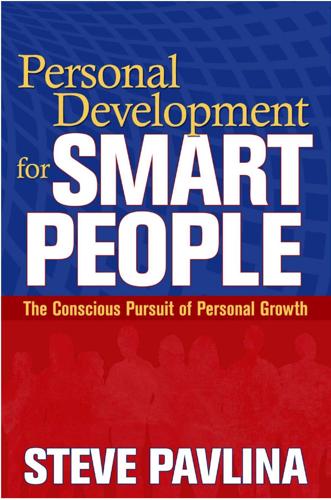
Personal Development for Smart People: The Conscious Pursuit of Personal Growth
by
Steve Pavlina
Published 14 Oct 2008
Cowardice Cowardice is the practice of using your power to feed your fears instead of your desires. Instead of creating w h a t y o u w a n t , y o u create w h a t y o u don't w a n t . W h e n y o u worry that exercising your power will cause y o u to make too many mistakes, y o u feed the fear of failure. The truth Is that y o u will sometimes fail. S o m e of your failures may even be spectacular blunders, but that's nothing to worry about. It's better to fail as the powerful being y o u are instead of trying to hide from the truth and live as a mouse. W h e n y o u shrink from failure, y o u only weaken yourself.

Mastermind: How to Think Like Sherlock Holmes
by
Maria Konnikova
Published 3 Jan 2013
So did Thomas Edison, inventing over one thousand failed specimens before he came up with a lightbulb that worked. And so did Sherlock Holmes (Irene Adler, anyone? Man with the twisted lip? Or how about that Yellow Face, to which we’ll soon return in greater detail?). What distinguishes them isn’t a lack of failure but a lack of fear of failure, an openness that is the hallmark of the creative mind. They may have had that same anticreative bias as most of us at one point in their lives, but one way or another, they managed to squelch it into submission. Sherlock Holmes has one element that a computer lacks, and it is that very element that both makes him what he is and undercuts the image of the detective as nothing more than logician par excellence: imagination.
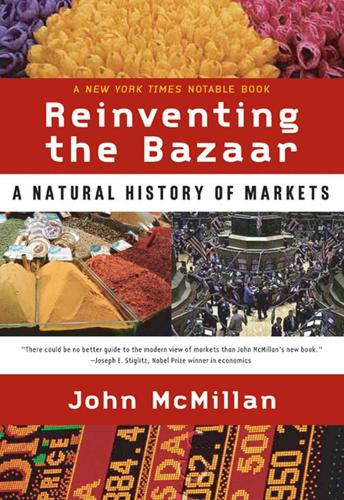
Reinventing the Bazaar: A Natural History of Markets
by
John McMillan
Published 1 Jan 2002
Since they were owned by local governments, they could raise funds without a financial market yet could not expect to be bailed out by the government if they failed. They effectively co-opted the local Communist Party officials, who otherwise might have sabotaged the reforms, by giving them a stake in the emerging economy. The fear of failure induced the managers to run the firms efficiently. But these explanations came after the fact; these firms’ success was not foreseen. The township and village enterprises highlight the single most important feature of any program of deep economic reform—its unpredictability. The transition cannot be planned because we cannot know in advance what policies will work.

Childhood Disrupted: How Your Biography Becomes Your Biology, and How You Can Heal
by
Donna Jackson Nakazawa
Published 6 Jul 2015
Abeles believes this “high-stakes grind in school throughout the formative and fragile teen years leads, like every form of childhood adversity, to a stew of stress hormones flooding our kids’ still-growing brain and body—setting teens up for a lifetime cycle of anxiety and depression, weakening their immune systems, and making them far more vulnerable to infections and cardiovascular disease for the rest of their lives.” Kids are facing excessive societal pressure to perform during the teenage years; they’re caught up in this crazy modern race to get the grades to get into a top college—and are overwhelmed with the fear of failure if they don’t, Abeles says. “They are ticking time bombs for later ill health.” Recently, the American Psychological Association released a nationwide survey called Stress in America, which found that American teens now report that their stress level during the school year is nearly 6 on a 10-point scale—a level considered emotionally unhealthy, and far higher than that cited by most adults.
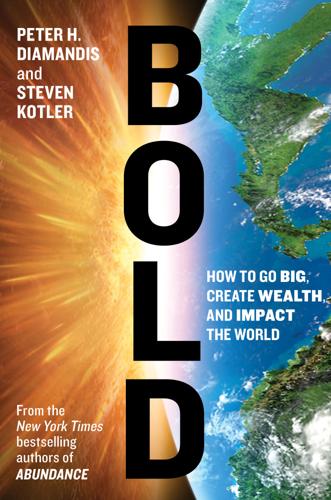
Bold: How to Go Big, Create Wealth and Impact the World
by
Peter H. Diamandis
and
Steven Kotler
Published 3 Feb 2015
There’s the obvious need for military secrecy, but more important is the fact that isolation stimulates risk taking, encouraging ideas weird and wild and acting as a counterforce to organizational inertia. Organizational inertia is the notion that once any company achieves success, its desire to develop and champion radical new technologies and directions is often tempered by the much stronger desire not to disrupt existing markets and lose their paychecks. Organizational inertia is fear of failure writ large, the reason Kodak didn’t recognize the brilliance of the digital camera, IBM initially dismissed the personal computer, and America Online (AOL) is, well, barely online. But what is true for a corporation is also true for the entrepreneur. Just as the successful skunk works isolates the innovation team from the greater organization, successful entrepreneurs need a buffer between themselves and the rest of society.

No Regrets, Coyote: A Novel
by
John Dufresne
Published 1 Jun 2014
Guilt; depression; commitment, or lack thereof; shame; regret; paranoia; aimlessness; meaninglessness; dullness; delusions; claustrophobia; fear of dying too soon; fear of living too long. You’re breaking up, Doctor. Hold on.” I walked to the center of the bar. “That’s better. Where were we? Did I mention guilt? Anger. Anxiety. Fear of failure, fear of success, fear of intimacy, fear of nonchalance.” I looked over at Kewpie, who was now being regaled by the Statue of Liberty. “I’ve only got the one bar right now.” I stepped to the door. “There we go. Can you hear me? Okay. My life is in turmoil. We could start there. That should keep us busy.”
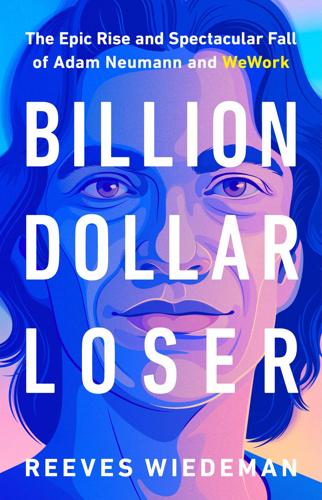
Billion Dollar Loser: The Epic Rise and Spectacular Fall of Adam Neumann and WeWork
by
Reeves Wiedeman
Published 19 Oct 2020
On Saturday afternoon, Lew Frankfort, the former CEO of Coach, who had invested in WeWork alongside JPMorgan and joined the company’s board of directors, gave a talk at a fire pit in front of a few hundred campers. Adam and Rebekah sat in the front row. Frankfort encouraged the assembled entrepreneurs to embrace single-mindedness, telling them to “never be captive to your employees” in the pursuit of your vision. “A drive for excellence and a fear of failure is a double-edged sword,” Frankfort said. “If you have it, embrace it.” “Lew, are you going to party with us?” someone in the crowd asked. While some attendees viewed Summer Camp as a networking opportunity, passing business cards between bunk beds, it was for most a weekend to forget adulthood.

Step by Step the Life in My Journeys
by
Simon Reeve
Published 15 Aug 2019
Old fears kicked in, of failure and making a fool of myself. This was the most prestigious newspaper in Western Europe – how on earth would a pathetic lad from Acton fit in? I knew I had to overcome those fears, otherwise they would cripple me. I had to decide that my fear of regret if I didn’t take the opportunity was greater than my fear of failure. I decided I had to be just a little bit more positive, hopeful and optimistic. I would take the job, embrace the opportunity and overcome my nerves by taking everything gently and slowly . . . step by step. CHAPTER SIX Foot in the Door If going for an interview at the Sunday Times had been nerve-wracking, travelling there for my first day was horrendous.

Green Gold
by
Sarah Allaback
Published 14 Mar 2025
To the relief of the association, the 403 guests went home well fed and surely convinced of the avocado’s future as an American staple.21 The successful event marked a turning point for the establishment of a cooperative. If a few members felt maligned by not making the roster of recommended varieties, the majority rallied behind the organization. More than the fear of failure, older members dreaded losing the sense of camaraderie that made the CAA such a valuable part of their lives.22 When the association’s yearbook was published, members read Wilson’s “Letter from Ecuador,” an update on his travels over the last eighteen months. While exploring in Costa Rica, he and Otón Jiménez discovered a long-sought-after “wild avocado” on the slopes of the volcano Irazú.
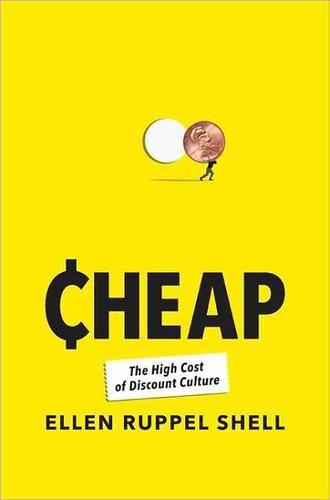
Cheap: The High Cost of Discount Culture
by
Ellen Ruppel Shell
Published 2 Jul 2009
In prehistoric times the actual taste of fruits and berries was not what got early man out of his cave and foraging. It was the anticipation of that taste. Actually being eaten by a saber-toothed tiger was not what got early man running; it was the dread of being eaten by that tiger. Modern humans benefit from this legacy because it is not failure per se but the fear of failure, not success per se but the prospect of success, that gets us out of bed in the morning. And when it comes to discounts, it is not necessarily the object per se but the anticipation of getting a good deal on that object that motivates us to make a purchase. Some of us more than others are susceptible to the allure of discounts, but none of us is immune.
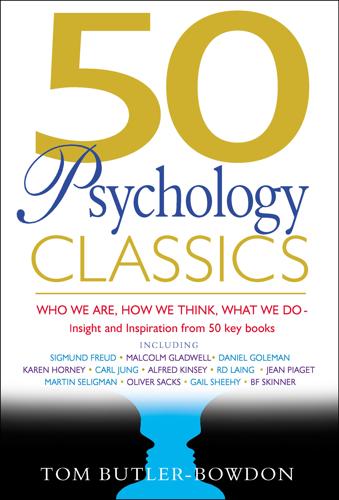
50 Psychology Classics
by
Tom Butler-Bowdon
Published 14 Oct 2007
A Guide to Rational Living helps anyone to understand how their emotions are generated and, crucially, how a reasonably happy and productive life can be yours through more care and discipline in your thinking. Its topics include lessening the need for approval, conquering anxiety, “how to be happy though frustrated,” and eradicating fear of failure. Consistent with its content, the book has a wonderfully clear and straightforward style. Get the updated and revised third edition, which contains a new chapter on research supporting the principles behind, and the techniques of, RET. Albert Ellis Born in 1913 in Pittsburgh, Pennsylvania, Ellis was raised in New York City.

The Boy Who Could Change the World: The Writings of Aaron Swartz
by
Aaron Swartz
and
Lawrence Lessig
Published 5 Jan 2016
Online, Aaron found a community that pointed to the possibility of another way of doing things. Far-flung Internet users helped him master the art of computer programming, offering feedback and assistance and encouraging his love of coding—of knowledge—instead of enforcing rote memorization and instilling fear of failure, as a more orthodox student-teacher relationship might. Fear is a big theme of Aaron’s writing on education, as is boredom, and for him the two go together. Like most prominent unschooling advocates, Aaron believes human beings are naturally curious; the problem is that conventional schooling stamps this inherent inquisitiveness out of us.
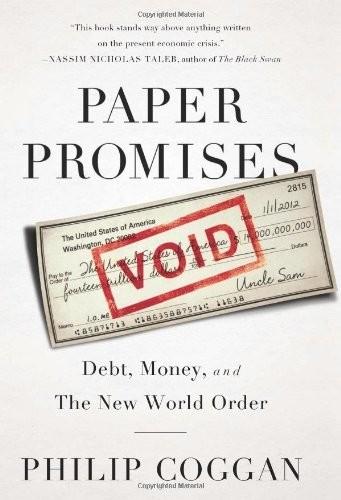
Paper Promises
by
Philip Coggan
Published 1 Dec 2011
The potential cost is that ‘zombie’ businesses are allowed to keep going (as has happened particularly in the airline sector) with the result that efficient companies can never earn a decent return. Many commentators think that the risk-taking attitude of American entrepreneurs has been encouraged by the relaxed attitude to bankruptcy. With their fear of failure reduced, executives had plenty of incentives to load their companies with debt. For a start, after the mid-1980s, much of their remuneration came in the form of share options; these gave the managers the right to buy shares at a set price. By borrowing money to invest, or make an acquisition, the executives took a chance on growth.
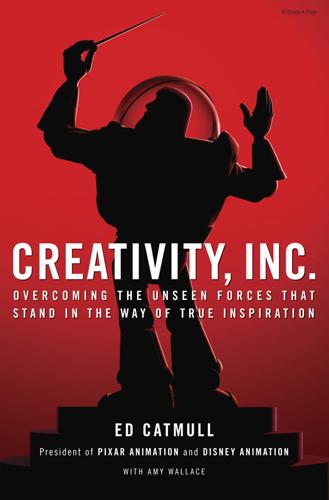
Creativity, Inc.: Overcoming the Unseen Forces That Stand in the Way of True Inspiration
by
Ed Catmull
and
Amy Wallace
Published 23 Jul 2009
It is here that some of my colleagues have insisted that I am wrong, that “Trust the Process” has meaning—they see it as code for “Keep on going, even when things look bleak.” When we trust the process, they argue, we can relax, let go, take a flyer on something radical. We can accept that any given idea may not work and yet minimize our fear of failure because we believe we will get there in the end. When we trust the process, we remember that we are resilient, that we’ve experienced discouragement before, only to come out the other side. When we trust the process—or perhaps more accurately, when we trust the people who use the process—we are optimistic but also realistic.
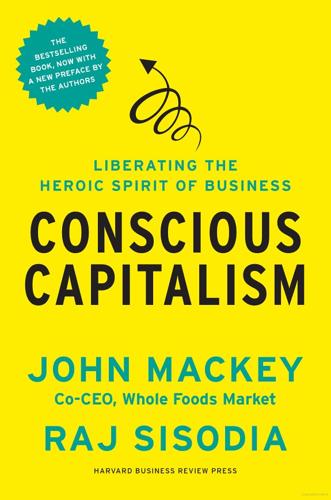
Conscious Capitalism, With a New Preface by the Authors: Liberating the Heroic Spirit of Business
by
John Mackey
,
Rajendra Sisodia
and
Bill George
Published 7 Jan 2014
We are free in each moment to choose the path of our heart, which never stops quietly whispering to us, urging us to follow it. The second key to successfully following our hearts is to learn how to deal with fear. Fear prevents people from reaching their fullest potential in life. It comes in many flavors—fear of looking ridiculous, fear of failure, fear of rejection, fear that we simply aren’t good enough, and sometimes even fear of our own potential greatness. Unfortunately, no one else can overcome our fear for us; we must learn to master it on our own. The most important insight about fear is that it seldom exists in the present moment.

How to Run a Government: So That Citizens Benefit and Taxpayers Don't Go Crazy
by
Michael Barber
Published 12 Mar 2015
Quite different from the desultory, once-a-month project meetings where there is plenty of talk but little action, and between meetings still less. Idris explains the key to success: … the labs began [with] very, very tall targets, almost what you call impossible targets, targets that will cause you to have fear of failure … If we came with an incremental target … there is no need to transform … [stretch targets] require a radical approach and outside-the-box thinking …9 Then he adds: I always believed this, people actually know the solutions but the reason why they don’t execute it is because there are a lot of roadblocks along the way … The ideas were already there … but to move it from idea to results there are hurdles such as technical hurdles, political hurdles, administrative process hurdles … We were really focusing on ensuring that the hurdles that prevented us from doing this before are now removed in the labs.10 What makes the lab different?
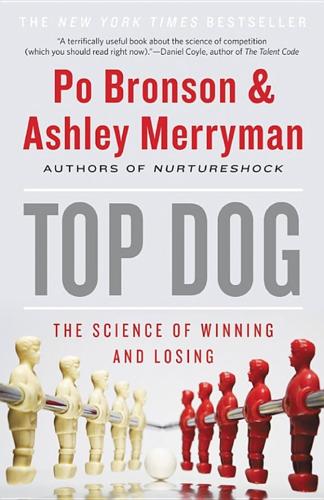
Top Dog: The Science of Winning and Losing
by
Po Bronson
and
Ashley Merryman
Published 19 Feb 2013
You’re vigilant and work meticulously, avoiding risks. You work best without time pressure. You perceive the competition inherently as a threat and, ultimately, a great stress. You learn the most from feedback on your mistakes. When gain-oriented, you’re driven by a desire to succeed; when prevention-oriented, you’re driven by a fear of failure. When playing to win, you perceive ties as a loss; when playing not to lose, ties are satiating. Overall, a gain-orientation—playing to win—sustains those during competition. Gain-oriented people are more likely to persevere: as long as they have a fighting chance, they are never willing to admit defeat.
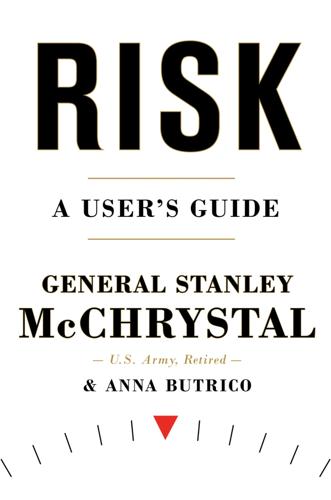
Risk: A User's Guide
by
Stanley McChrystal
and
Anna Butrico
Published 4 Oct 2021
As both individuals and organizations, while we are often impacted or constrained by outside factors, much of our ability to adapt to the myriad risks that emerge lies within us. We can assess and consciously improve our system’s adaptability—and live to see the results. SYMPTOMS OF ADAPTABILITY STRUGGLES Two Beats Behind. Teams that do not adapt lag their more agile competitors—with predictable results. Frozen by Fear of Failure. Frightened by the specter of failure (or accepting responsibility for an adaptation that didn’t work), leaders and their organizations remain unchanged as failure overwhelms them. Supercharging a Losing Engine. Teams that rely on a relentless pursuit of maximizing an approach they have long used—unwilling to adapt to changing conditions and competition—watch the ship of progress sail by.

The Dangerous Case of Donald Trump: 27 Psychiatrists and Mental Health Experts Assess a President
by
Bandy X. Lee
Published 2 Oct 2017
Parents who are substance abusers or psychologically troubled often underfocus on a child’s needs. Parents may have exhibited narcissistic or Other-blaming behaviors that the child models. Another possible cause is parents who were permissive or conflict avoiding and did not hold the child accountable. Parents who overfocus on achievement or behavioral compliance can also encourage a fear of failure that may bring on Other-blaming tendencies. These experiences can cause children to feel unloved, unprotected, and inadequate. They may struggle to experience empathy for others and may develop an unhealthy hypersensitivity and overreaction to shaming experiences. While Other-blaming as a shame-management strategy may be adaptive in childhood, it causes difficulties for adult relationships at all levels, from presidential to personal.

Antonio-s-Gun-and-Delfino-s-Dream-True-Tales-of-Mexican-Migration
by
Unknown
They want something that’s going to put nice clothes on their back, get them nice cars. As parents, we give them everything they need, but we can’t give them the life-styles of the rich and famous. But when they get out of school, they want that right away. “[Plus] they don’t think they can do certain things. I think it’s a fear of moving on, a fear of failure. Guillermo Tamayo’s a prime example. It’s fear that kept him where he’s at. My son [Álvaro] is at IBP because they feel it’s a necessity. But if him and his wife worked and found jobs somewhere else where they could both go to school, they could do it. Álvaro could work anywhere else. He’s real good at computers, but [IBP] is where he wants to go because he wants the fast buck. . . .
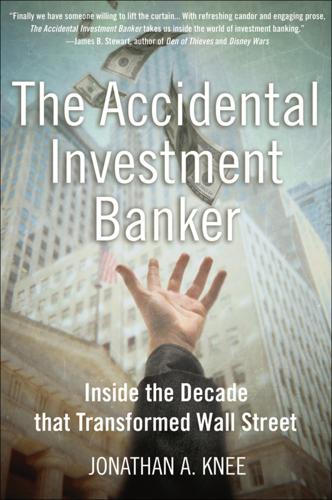
The Accidental Investment Banker: Inside the Decade That Transformed Wall Street
by
Jonathan A. Knee
Published 31 Jul 2006
One of the great mysteries was why he did not. Given his natural banking skills, the conventional wisdom was that if Kiernan spent half the time he devoted to office politics on calling CEOs instead, he could have been a great success. My only conclusion is that he must have been far more insecure and have a much deeper fear of failure than his suave exterior betrayed. By staying above the fray he could maintain plausible deniability. If he had become too closely associated with any particular account he would have to risk public failure. I realized, having seen Kiernan in action over the years, that one of his problems was that he had not actually done that many deals.

Journey to the Edge of Reason: The Life of Kurt Gödel
by
Stephen Budiansky
Published 10 May 2021
Scott, 154 flamingo, pink, in KG’s garden, 254, 254 Fleck, Christian, 288 Flexner, Abraham background and personality, 146–47 establishment of IAS and, 146, 147–50, 151, 152, 156 KG’s invitations to IAS and, 170–71, 192, 201 new buildings, opposes spending on, 209–10 Flying Dutchman, The (Wagner), 255 f-number, 127–28, 281–85 Fogelin, Robert, 279 Ford, Gerald, 273 formalism, mathematical, 111–12, 112–13, 115–16, 121, 135, 267 Forman, Phillip, 232, 234 foundations of mathematics crisis in, 80–81, 99, 108–12 KG’s interest in, 101, 118, 138, 158–59, 215, 241 Nazis’ attacks on, 189, 202, 203–4 schools of thought in, 112–16, 121 see also Incompleteness Theorem Frank, Philipp, 89, 120, 208 Frankfurter, Felix, 152–53 Franz I, 19, 30, 33 Franz Joseph I, 18–22, 24, 27, 28 Franz Joseph University, 26 Franzensbad (Františkovy Lázně), 55 fraternities, German, 82, 84 Frederick III of Austria, 13 Frege, Gottlob, 108, 109–10, 117 Frenkel, Else, 192 Freud, Sigmund anti-Semitism and, 29–30, 83, 183, 196 feelings for Vienna of, 38, 61 KG’s view of, 3 also mentioned, 21, 26, 65, 166, 168, 191 Friedell, Egon, 37, 66 Friedrich III of Prussia, 219 Friedrich Redlich Feintuch- und Schafwollwaren Fabrik, 41 (map), 43, 44, 56, 56–57, 119, 139, 208 Fuld, Caroline, 148 Fuld Hall, 209, 209, 210, 216 Fürtwangler, Philipp, 70, 70, 117 Gabelsberger shorthand KG’s notes in, 57–58, 71, 186, 232, 245 teaching in school of, 57 transcription of, 277, 288 Gabriel, Leo, 260–61 Galicia, 13, 16 (map), 26 game theory, 219, 244 Genoa, 160 German General Consul, 222, 223 German Students’ Union, 83 German-nationalists, 42, 52, 82, 84, 195, 229 Germany cultural and linguistic differences from Austria, 15–17 scientific exodus from, 142–43, 150, 153, 154–55, 156 Sudetenland and, 42, 52 Gestapo, 49, 196 ghosts, KG’s interest in, 176, 227 Gibbs Lecture, 236, 239–42 Gleispach, Wenzel, 84 Gödel, Adele (wife): family background, 106–8; appearance and personality, 107, 174–77, 175, 252; earlier marriage, 107, 251; works as nightclub dancer, 107–8, 107, 296–97 n 48; works as masseuse, 107–8; meets KG, 106–8; has abortion, 173, 259; cares for KG in sanatorium, 174–75; domination and possible sexual sadism, 175; lives with KG before marriage, 184, 190–91; attempts to enroll in Nazi party, 197, 198; weds KG, 198–99, 199; stays in Vienna during KG’s 1938–39 U.S. visit, 198–99, 200; protects KG from Nazi thugs, 203; travels across Pacific with KG, 204–6, 206; appendicitis, 251; finds friendship with Kreisel and Tarski, 163, 176, 177, 215; finds life in Princeton difficult, 176, 250–51, 277; friends see her warm and humorous side, 176; knits vest for Einstein, 218; fights with landlords and hotel keeper, 221–22; sees psychiatrists in New York, 223, 256; visits family in Vienna, 230, 231, 251; clashes with KG’s mother, 230–32, 251; becomes U.S. citizen, 224, 232; makes trouble about Einstein Award ceremony, 238–39; weight problems, 251; drunkenly dances at IAS party, 251; spending habits, 251, 276; takes solo vacations, 230, 251–52; shares KG’s lowbrow tastes, 252–54; finds house to buy, 252–53, 259; cooking and gardening, 176, 252–53, 254, 257; brings mother to live in Princeton, 262; has shouting match with KG over prostate condition, 272; health deteriorates, 272, 273–74; insists KG see psychiatrist, 3, 274; hospitalized in 1977 for five months, 274, 275; persuades KG to go to hospital, 276; destroys letters from KG’s family, 230, 277; final years, 276–77 Gödel, Anna (“Aunt Anna”), 40, 120, 141 Gödel, Carl (cousin), 198 Gödel, Kurt BIOGRAPHICAL FACTS: birth and well-to-do upbringing, 9, 43–46, 43, 44, 48–49, 54–55; family background and ancestry, 25, 43–45, 49; Brünn residences, 43, 45–46, 46; called Herr Warum, 47; early education and interest in science, 47–48, 55–58, 59, 60; religious instruction, 49–50; appendectomy, 55; Vienna residences, 62, 63 (map), 90, 106, 119–20, 140, 141, 187, 190–92, 222; university studies, 69–70, 71, 71, 72–73, 74, 75–76; switches from physics to logic, 73, 75–76; association with Vienna Circle, 88, 90, 92–93, 95, 101; in Menger’s Mathematical Colloquium, 102, 104, 139, 162, 168, 185; meets Adele Nimbursky, 106–8; submits thesis, 117–18; father dies, 118–19; renounces Czech citizenship, 119; proves Incompleteness Theorem, 121–37, 126; Habilitation, 137–38, 145; lectures as Privatdozent, 138–39, 138, 188; 1933 invitation to IAS, 145, 146; initial Princeton residences, 155, 170, 207, 221; lectures in U.S., 158–60; disastrous 1935 U.S. visit, 170–72; treatment in sanatoriums, 165–68, 173, 177–78, 184, 259; in Zilsel circle, 187, 192; marries Adele, 190, 198, 199; 1939–40 visit to IAS and Notre Dame, 185, 189–90, 198–200; troubles with Nazi authorities, 196, 200–204, 222–23; emigration, 201–6, 205, 206; friendship with Einstein, 3–5, 4, 216–18, 217, 231, 255, 257–58; 1941 mental crisis, 223–25; exempted from U.S. draft, 225; becomes U.S. citizen, 232–35; permanent appointment to IAS, 234–35; 1951 ulcer hospitalization, 236–37; Einstein Award, 238–39, 238; Yale and Harvard honorary degrees, 239, 247; appointed professor at IAS, 248–49 purchases Princeton house, 252–53, 252, 254; mother dies, 267; public fame, 269–70; 1970 psychological crisis, 271–72; National Medal of Science, 273; final illnesses and death, 6–7, 272–76; will and estate, 276; mathematical and philosophical legacy, 277–80 CHARACTER AND PERSONALITY: attitudes and tastes America, feelings toward, 153, 207, 235 artistic and literary tastes, 230, 254–55 childhood, nostalgia for, 48, 49, 76, 230 conspiratorial ideas, 232–33, 243–45, 246, 274 ethnic prejudice, absence of, 28, 57, 240 food and drink, 155, 168, 257, 275–76 ghosts and evil spirits, belief in, 3, 5, 176, 227, 275 kitsch, fondness for, 230, 253–54, 254 pacifism, 246–47, 271 politics, 85, 95, 164–65, 192, 202, 204, 246–48 religion, view of, 3, 49–50, 243, 267–69, 278 Vienna, ambivalence toward, 235, 259, 261 health appendectomy, 55 digestive upsets, 168, 231, 256 hallucinations, 177–78, 271 hypochondria, 55, 146, 230–31, 237, 255–56, 271, 272, 273, 274 insomnia, 165, 172, 256, 268 paranoia, 1–3, 5–7, 174–75, 177–78, 184, 220–22, 268, 271, 272, 274–76 prostate trouble, 6, 272–73 self-medication, 256, 273 ulcer, 168, 236–37, 255, 257 weight loss, 3, 6–7, 165, 168, 184, 257 personal traits appearance and dress, xiv, 2–3, 5, 71, 252, 253, 273 conscientiousness and perfectionism, 6, 60, 71–72, 75, 102, 168–70, 248–49 fear of failure, 1–2, 6, 168–69 humility, 104, 231, 232 indecisiveness, 103, 169–70, 187–90 kindness and generosity, 104, 170, 220, 231, 264, 270 language ability, 57, 60, 139, 158–59, 199, 207 optimism, 242, 255, 266, 279–80 self-criticism, 1–2, 71, 103–4, 119, 169 sense of humor, 104–6, 206, 237 social wariness and anxiety, 102–3, 139, 159, 168–69, 214–15 theatricality, 274 voice, 3, 103, 105 work habits, 6, 71–72, 124, 139, 169–70, 246, 255 private life amusements and diversions, 6, 139, 253–55 family relations, 44–45, 119, 139, 230–31, 262, 275 financial situation, 6, 120, 139, 171, 187–88, 203, 204, 222, 234, 250, 251 friendships, 3–5, 28, 58–60, 68–69, 91, 104–5, 106, 163–64, 214–20 married life, 3, 6, 175–76, 230–32, 251–52, 272 pets, 48, 253 sexuality, 60, 106, 155, 175, 230–31 MATHEMATICAL AND PHILOSOPHICAL IDEAS: anti-materialism, 241, 243, 265 axiomatic method, 116, 242, 266–67 complexity of calculation, 258 continuum problem, 177, 189–90, 210–14, 268 Hilbert’s program and, 127, 137, 192, 267 human intuition, 266–67 inexhaustibility of mathematics, 79, 122, 137, 266–67, 279–80 Leibniz and, 105–6, 242, 243, 244–45, 268 mathematical realism and Platonism, 93, 100–101, 239–42, 266, 296 n 33 mind vs. machine, 116, 241, 265, 279–80 non-constructive proofs, 114 philosophical postulates, 241–43 relativity and time travel, 75–76, 225–27, 278 religion, 49–50, 243, 267–69, 278 set theory, 211–14 Vienna Circle and, 75, 88, 90, 91, 92–93, 98, 100–101, 265 see also Incompleteness Theorem PUBLICATIONS, LECTURES, AND OTHER WORKS: “Completeness of Functional Calculus of Logic” (1929–30), 117–18, 121 “On Formally Undecidable Propositions” (1931), 123, 126, 132–33 “Present Situation in the Foundation of Mathematics” (1933), 158–59 “The Existence of Undecidable Propositions in any Formal Mathematical System Containing Arithmetic,” NYU Philosophical Society lecture (1934), 125, 159 “Can Mathematics Be Proved Consistent?”
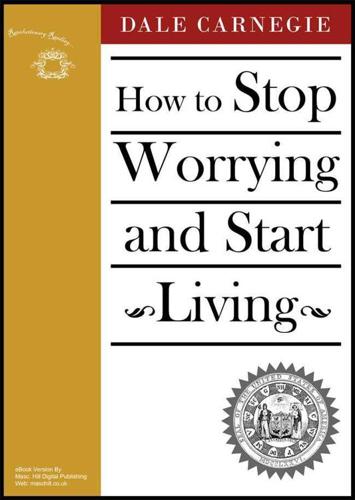
How to Stop Worrying and Start Living
by
Dale Carnegie
Published 17 May 2009
I was threatening my husband's career, my children's natural endowment of a happy, normal home life, and I was also threatening my own life. My husband could find no housing, and the only solution was to build. Everything depended on my getting well. The more I realized this and the harder I would try, the greater would be my fear of failure. Then I developed a fear of planning for any responsibility. I felt that I could no longer trust myself. I felt I was a complete failure. When all was darkest and there seemed to be no help, my mother did something for me that I shall never forget or cease being grateful for. She shocked me into fighting back.

Screenplay: The Foundations of Screenwriting
by
Syd Field
Published 17 Dec 2007
Creating conflict within the story, through the characters and events, is one of those simple, basic “truths” of all writing, whether it be novel, play, or screenplay. So what is conflict? If you look up the word, you’ll see it involves “opposition”; and the hub of any dramatic scene is having the character or characters be in opposition to someone or something. Conflict can be anything: a struggle, a quarrel, a battle, or a chase scene; fear of life, or fear of failure or success; internal or external— any kind of confrontation or obstacle, and it really doesn’t matter whether it’s emotional, physical, or mental. Conflict must be at the very hub of your story, because it is the core of strong action and strong character. If you do not have enough conflict, the foundation to your writing, you’ll find yourself more often than not caught in a quagmire of dull writing.
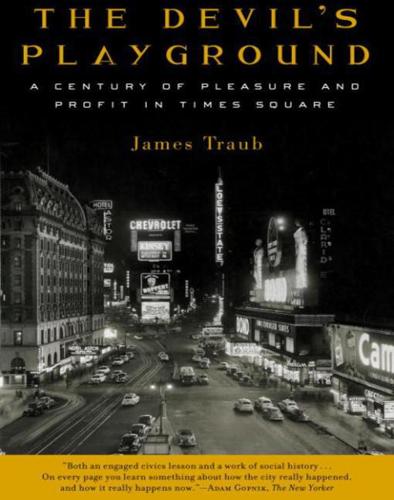
The Devil's Playground: A Century of Pleasure and Profit in Times Square
by
James Traub
Published 1 Jan 2004
Kaufman was absolutely and utterly a creature of Broadway. He rarely strayed beyond walking distance from Times Square; almost all of his friends were show folk. He kept his job at the Times years after he no longer needed the measly salary, though it’s hard to say whether this was owing to his love of the milieu or his ever-present fear of failure. And Kaufman wrote about what he knew; Broadway gave him his setting, his characters, and his language. The characters in The Butter and Egg Man, for example, speak an almost impenetrable vaudeville slang—“I done six clubs for the wow at the finish, and done it for years!” “Butter and egg man” was the Broadway pejorative for one of the freshly minted midwestern plutocrats who could be counted on to back stage productions; the play’s main character is a starstruck rube from Chillicothe, Ohio, whom a scheming producer separates from his inheritance.
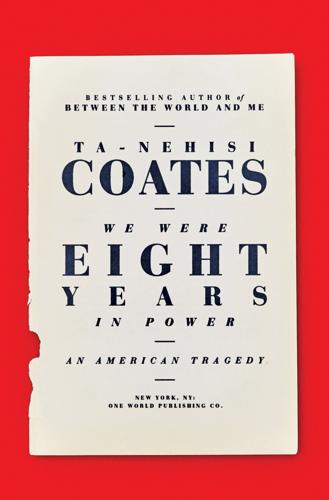
We Were Eight Years in Power: An American Tragedy
by
Ta-Nehisi Coates
Published 2 Oct 2017
They’d been written about by other journalists. I also know they deserved more than the one line they ultimately occupied in this piece. I had never actually written a story like “This Is How We Lost to the White Man.” I had never written for such a prestigious national publication. I had my own fears of failure lingering. Better to tell a neater story, I reasoned, than attempt the messier one and have to contend with editors I did not then know. But the messier one was truer—indeed, the messier one might well have lent explanatory power to the simple story I chose to tell. And so it happened that in an attempt to analyze, in Cosby’s movement, the lure of the simplistic, I myself fell prey to it.
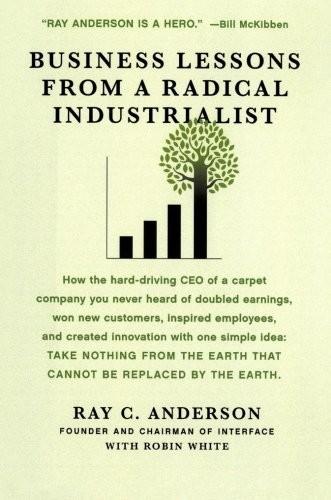
Business Lessons From a Radical Industrialist
by
Ray C. Anderson
Published 28 Mar 2011
I took enormous pride and pleasure in that declaration. Back to the Five Ps. We’d certainly made changes in our products and our processes. They were evolving to meet the challenges of our hard climb up Mount Sustainability. Check. But people have to evolve, too. The Play to Win™ program had helped to break down the fears (of failure, of standing out, of saying something that might compromise a career) and given our associates new skills. Check again. Interface had also sponsored Why? conferences for customers, combining the concepts of Play to Win™ and sustainability in an understandable, interactive format that built valuable friendships and lasting relationships.
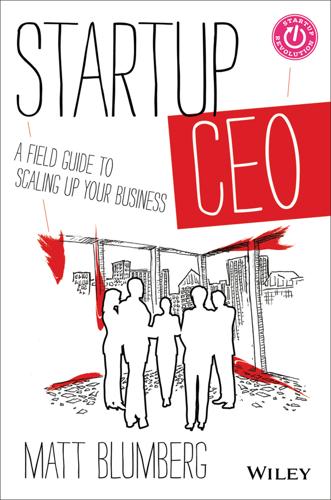
Startup CEO: A Field Guide to Scaling Up Your Business, + Website
by
Matt Blumberg
Published 13 Aug 2013
What does this mean for entrepreneurs and managers? It means that the first time you run a business, you should admit what you are up against. Don’t let ego get in the way. Ask for help from your board and get coaching and mentoring. And recognize that you may fail at some level. And don’t let the fear of failure get in the way. Because failure isn’t fatal. It may well be a required rite of passage. As a CEO, I feel like I’ve made every mistake in the book at least once. I’m sure I’ve made a couple more than once. So this book is my hope to pay forward the lessons of my 14 years of experience as a first-time CEO to other entrepreneurs, whether actual or aspiring.

Remix
by
John Courtenay Grimwood
Published 15 Nov 2001
Having Lady Clare Fabio as a mother didn’t instil a strong desire to leave yourself vulnerable. A fact LizAlec had finally learnt to turn to her advantage when she realized her S3 shadow would be too worried about losing LizAlec to admit she’d flicked down some alley in the Marais and given him the slip. Her bodyguard’s fear of failure had worked for months. Until it half-yearly medical finally threw up bruising on LizAlec’s thighs that her S3 shadow couldn’t explain — and LizAlec wasn’t prepared to. More than anything else, the girl was too embarrassed to admit the blotches were where Fixx’s fingertips had dug into her. But she didn’t have to.
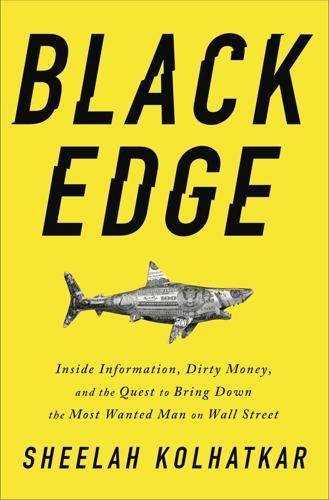
Black Edge: Inside Information, Dirty Money, and the Quest to Bring Down the Most Wanted Man on Wall Street
by
Sheelah Kolhatkar
Published 7 Feb 2017
Even though he had achieved his life’s dream of running his own firm, he was still unhappy, and he had become dependent on a psychiatrist named Ari Kiev to help him manage his moods. In addition to treating depression, Kiev’s other area of expertise was success and how to achieve it. He had worked as a psychiatrist and coach with Olympic basketball players and rowers trying to improve their performance and overcome their fear of failure. His background building athletic champions appealed to Cohen’s unrelenting need to dominate in every transaction he entered into, and he started asking Kiev to spend entire days at SAC’s offices, tending to his staff. Kiev was tall, with a bushy mustache and a portly midsection, and he would often appear silently at a trader’s side and ask him how he was feeling.

America, You Sexy Bitch: A Love Letter to Freedom
by
Meghan McCain
and
Michael Black
Published 31 May 2012
I want to fight for what I believe in, use my voice, speak out, help make change, and be allowed to wear clothes that make me feel like a sexy woman. Over our first drink of the day, I spill to Michael and Stephie. I spill all of the failures, the paranoias and fears I think most people have on some level or another. That I’m not going to make an impact. That, after Los Angeles, I’m going to freeze up from fear of failure. Michael and Stephie sit across from me wide-eyed and listen to my melodrama. They both share different fears they have about the future, which makes me feel better. We keep drinking and talking and slowly we all get tired. I hug both of them before we head off to bed. As I get undressed and get into bed, my mind is a bit more at ease, and I think about how amazing it is just to be doing this sort of project with both of them and being in Branson on such a beautiful summer night—and that from here on out the end goal in my life is to not end up like Yakov Smirnoff.
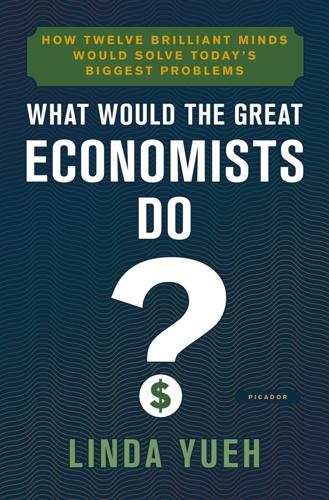
What Would the Great Economists Do?: How Twelve Brilliant Minds Would Solve Today's Biggest Problems
by
Linda Yueh
Published 4 Jun 2018
Between 1930 and 1933 the US money supply contracted by over a third, coinciding with a raft of bank failures. Between October 1930 and March 1933 there were four major bank runs. Most of these occurred between August 1931 and January 1932, when there were 1,860 bank failures and the money supply fell at an annual rate of 31 per cent. As deposits were withdrawn for fear of failure, banks had less money to lend, so the supply of credit to the economy evaporated, which led to downward pressure on output and prices. It was not just fear of encouraging a further run-up in prices of assets such as stocks that had made the Federal Reserve reluctant to pump money into the economy, where it was especially needed by a banking sector which was haemorrhaging deposits.

One Day in September
by
Simon Reeve
We knew that achieving our objective would cost lives, but since the day we joined up we had been aware that there was a possibility of martyrdom at any time in the name of Palestine. We were not afraid, but we felt the apprehension that a person feels when embarking on an important job, the fear of failure.” It was already early morning by the time the terrorists were ready to leave their hotel in the center of Munich for the attack, their bags packed and prepared. Esther Roth and the other Israeli athletes were sound asleep, dreaming of sports victories, when the men from Black September quietly slipped out of their hotel, jumped into two waiting taxis, and drove off towards the Olympic Village.55 3 Negotiations The Black September terrorists may have spent weeks planning their assault on 31 Connollystrasse, but their initial deadline of 9:00 A.M. for the release of their comrades from Israel and German jails was hopelessly unrealistic.
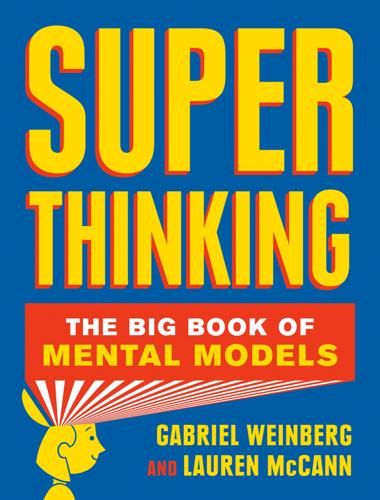
Super Thinking: The Big Book of Mental Models
by
Gabriel Weinberg
and
Lauren McCann
Published 17 Jun 2019
Surveys indicate that 70 percent of people become inflicted with impostor syndrome at some point in their careers. Have you? Dunning-Kruger Effect When people fall victim to impostor syndrome, they dismiss their successes as luck or deception and focus on their failures or fear of failure. This constant focus on failure can lead to high stress and anxiety, and negative behaviors like overexertion, perfectionism, aggression, or defeatism. You can take the following steps to help people overcome impostor syndrome: Highlight its prevalence (“Everyone’s felt this way before; I’ve felt this way before”).
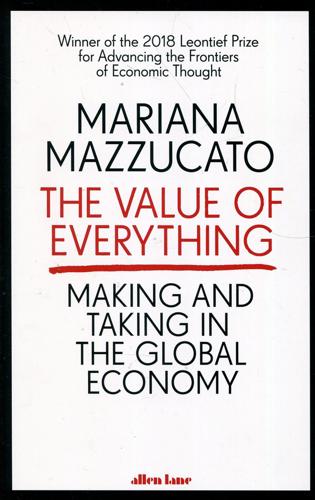
Value of Everything: An Antidote to Chaos The
by
Mariana Mazzucato
Published 25 Apr 2018
Public institutions can reclaim their rightful role as servants of the common good. They must think big and play a full part in the great transformations to come, squaring up to the issues of climate change, ageing populations and the need for twenty-first-century infrastructure and innovation. They must get over the self-fulfilling fear of failure, and realize that experimentation and trial and error (and error and error) are part of the learning process. With confidence and responsibility, they can expect success, and in so doing will recruit and retain top-quality employees. They can change the discourse. Instead of de-risking projects, there will be risk-sharing - and reward-sharing.
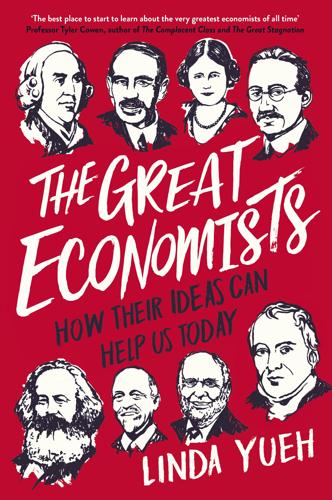
The Great Economists: How Their Ideas Can Help Us Today
by
Linda Yueh
Published 15 Mar 2018
Between 1930 and 1933 the US money supply contracted by over a third, coinciding with a raft of bank failures. Between October 1930 and March 1933 there were four major bank runs. Most of these occurred between August 1931 and January 1932, when there were 1,860 bank failures and the money supply fell at an annual rate of 31 per cent. As deposits were withdrawn for fear of failure, banks had less money to lend, so the supply of credit to the economy evaporated, which led to downward pressure on output and prices. It was not just fear of encouraging a further run-up in prices of assets such as stocks that had made the Federal Reserve reluctant to pump money into the economy, where it was especially needed by a banking sector which was haemorrhaging deposits.
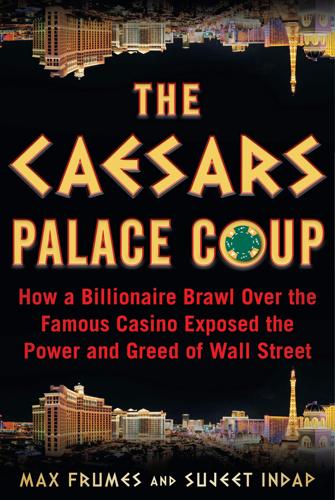
Palace Coup: The Billionaire Brawl Over the Bankrupt Caesars Gaming Empire
by
Sujeet Indap
and
Max Frumes
Published 16 Mar 2021
One such attempt at promoting reconciliation was a formal mediation process, which had brought combatants Liang and Sambur into the same room this morning in the summer of 2016. Mediators in bankruptcies often did lead to breakthroughs, but the timing and conditions had to be ripe. The warring parties had to be interested in peace, fearful of failure, and have differences close enough to be bridged. It was not clear that would ever be the case with Caesars, but it was worth a shot. The concept of a mediator was first broached with Judge Goldgar in February, a month before the examiner’s report was published. Goldgar again took an unorthodox approach: He highly encouraged mediation but would not formally approve a motion, saying that if the parties wanted it then he couldn’t stop them.
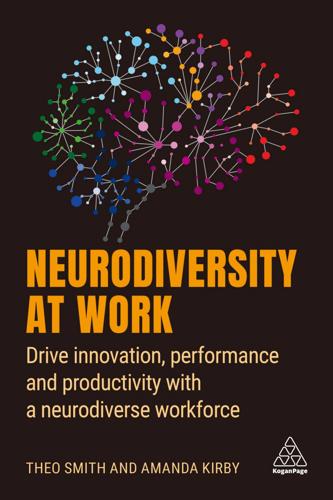
Neurodiversity at Work: Drive Innovation, Performance and Productivity With a Neurodiverse Workforce
by
Amanda Kirby
and
Theo Smith
Published 2 Aug 2021
Listening to someone telling their ‘story’ has always been humbling for her in that someone is sharing this with her and feeling they are in a safe space to do so. Why is this important in the context of this book? She has a very spiky profile and only has put the pieces together as an adult. In her late teens, she had an eating disorder and was very anxious about exams, and had an overwhelming fear of failure. But as a female no one suggested that this could be a part of neurodiversity or her traits could be associated with ADHD at all. She thinks at her age and stage she has coping mechanisms in place but it seems a real shame that it has taken 30 years working in the field of neurodiversity for this to happen.

Boundaries: When to Say Yes, How to Say No to Take Control of Your Life
by
Henry Cloud
Published 1 Apr 1992
Our talents are clearly within our boundaries and are our responsibility. Yet taking ownership of them is often frightening and always risky. The parable of the talents says that we are accountable—not to mention much happier—when we are exercising our gifts and being productive. It takes work, practice, learning, prayer, resources, and grace to overcome the fear of failure that the “wicked and lazy” servant gave in to. He was not chastised for being afraid; we are all afraid when trying something new and difficult. He was chastised for not confronting his fear and trying the best he could. Not confronting our fear denies the grace of God and insults both his giving of the gift and his grace to sustain us as we are learning.

Getting Past Your Past: Take Control of Your Life With Self-Help Techniques From EMDR Therapy
by
Francine Shapiro
Published 26 Mar 2013
While not thrilled with having to attend therapy, he was sincere about saving his relationship and agreed to try a new way. At the next session, Jack eagerly agreed to provide his therapist with the “play by play” on his recent angry thoughts about Mary, particularly his distress over behaviors and choices she had made before they had ever met. During these discussions it was easy to see the insecurity, fear of failure, shame, a deep sense of inadequacy and powerlessness behind the anger. Jack struggled to understand and address the issues along with his actions that he didn’t fully believe were wrong. He would rant in fury toward Mary and a few moments later tearfully express his fear about losing one of the best relationships he ever had.
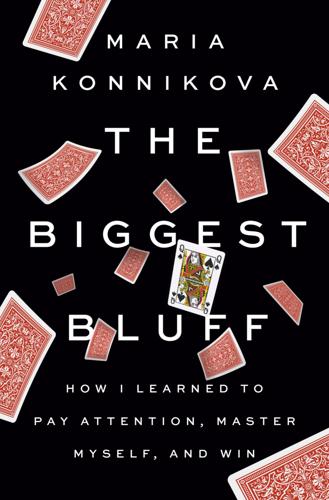
The Biggest Bluff: How I Learned to Pay Attention, Master Myself, and Win
by
Maria Konnikova
Published 22 Jun 2020
“How do you feel about yourself? Do you want to prove you’re not an idiot, or overcome pain, or fulfill visions and dreams of yourself as someone capable of playing at the highest levels?” The poker table, Jared explains, brings out the fears that I already carry with me and pushes them to the surface: fears of failure, pressure—it all gets exaggerated and brought forward during the course of a game. “What I look to do is see all of that as symptoms of deeper flaws. And what we’re trying to do together is get at those deeper flaws.” Identify the weaknesses and you start the process of responding to them in the moment rather than after the fact.
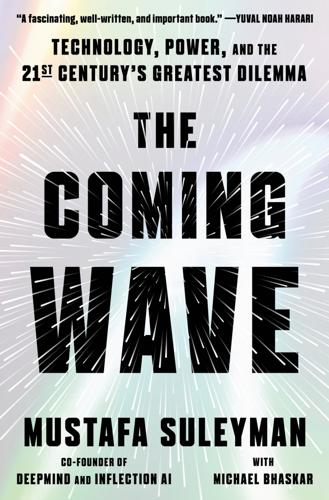
The Coming Wave: Technology, Power, and the Twenty-First Century's Greatest Dilemma
by
Mustafa Suleyman
Published 4 Sep 2023
One consequence is that as soon as a new technology or product goes awry, a culture of secrecy takes over. The openness and mutual trust that characterize portions of the development process get lost. Opportunities for learning, and then broadcasting that learning, disappear. Even admitting to mistakes, opening the floodgates, is seen as a risk, a corporate no-no. Fear of failure and public opprobrium is leading to stasis. Immediate self-reporting of problems should be a baseline for individuals and organizations alike. But rather than being commended for experimentation, companies and teams are hung out to dry. Doing the right thing only triggers a backlash of cynicism, Twitter flaming, and vicious public point scoring.
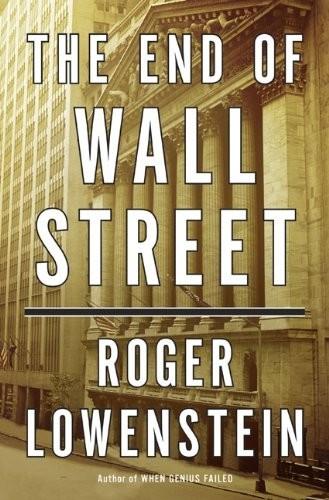
The End of Wall Street
by
Roger Lowenstein
Published 15 Jan 2010
O’Neal, in 2006, received $48 million, much of it thanks to Merrill’s lofty revenues in CDOs. It is unlikely that O’Neal consciously put Merrill at risk, for he had more to lose—his expected future salary, his reputation, and probably his career—if Merrill went down. But his eight-figure swag established a destructive example for the troops. It dulled his sense of urgency—the fear of failure that drives a manager to worry about the downside. Bankers who took home these enormous paychecks were crafty financiers, but their cleverness served their personal interests first, their clients and shareholders second, and the economy barely at all. The bankers learned to fool the system: to game the rating agencies, to bundle deadbeat mortgages into paper that was triple A and foist it on trusting clients.

Shoe Dog
by
Phil Knight
Published 25 Apr 2016
He said he knew that, when it came to Blue Ribbon, each of us was willing to do whatever was necessary to win, and if “whatever was necessary” fell outside our area of expertise, hey, as Giampietro would say, “No fucking problem.” He didn’t know anything about running a factory, but he was willing to try. To learn. Fear of failure, I thought, will never be our downfall as a company. Not that any of us thought we wouldn’t fail; in fact we had every expectation that we would. But when we did fail, we had faith that we’d do it fast, learn from it, and be better for it. Johnson frowned, nodded. Okay, he said. Deal. And so, as we entered the final days of 1974, Johnson was firmly ensconced in Exeter, and often, late at night, thinking of him back there, I’d smile and say under my breath: Godspeed, old friend.
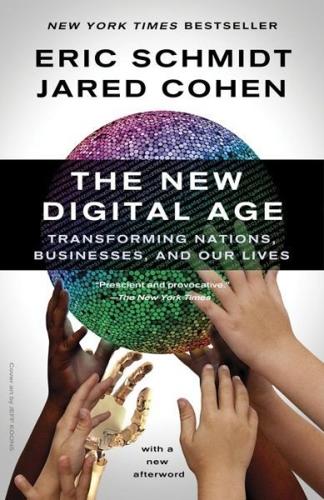
The New Digital Age: Transforming Nations, Businesses, and Our Lives
by
Eric Schmidt
and
Jared Cohen
Published 22 Apr 2013
Communication technologies could not have hoped to ameliorate all of Haiti’s woes, but there are many areas where, if correctly and widely utilized, coordinated online platforms can streamline this process so that a future version of the Haitian earthquake will produce more good results and less waste in a faster recovery period. Throughout this section we will present a few of our own ideas, knowing full well that the institutional actors in reconstruction settings—the large NGOs, the foreign government donors and all the rest—may be unwilling to take these steps for fear of failure or loss of influence in the future. As we look ahead to the next wave of disasters and conflicts that will occur in a more connected age, we can see a pattern emerging. The mixture of more potential donors and impressive online marketing will create an “NGO bubble” within each postcrisis society, and eventually that bubble will burst, ultimately leading to a greater decentralization of aid and a rash of new experiments.
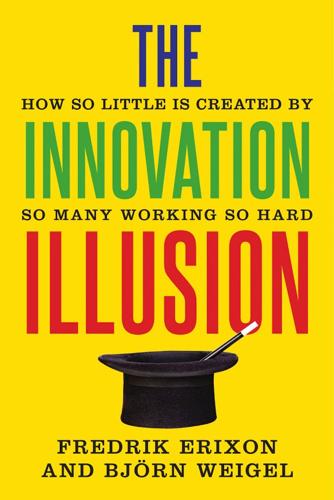
The Innovation Illusion: How So Little Is Created by So Many Working So Hard
by
Fredrik Erixon
and
Bjorn Weigel
Published 3 Oct 2016
Naturally, young companies and entrepreneurs only stand for a small part of the economy, but they are sensitive and responsive to trends. Unfortunately, the situation is likely to get worse. A study from Babson College, for instance, confirms that the United States is on a downward trend. About 24 percent of people between the ages of 25 and 34 said fear of failure kept them from aiming at entrepreneurial stardom in 2001. Today, that share has risen to almost 41 percent.26 Out of the pool of existing companies, a smaller share of them can be classified as high-growth firms. Around 3 percent of all firms qualified as high-growth companies in 1994–7, but in 2008–11 that share had been cut by half.27 True, the latter period came amid a crisis–recovery cycle and it may be that declining business dynamism followed on the heels of the general downturn.
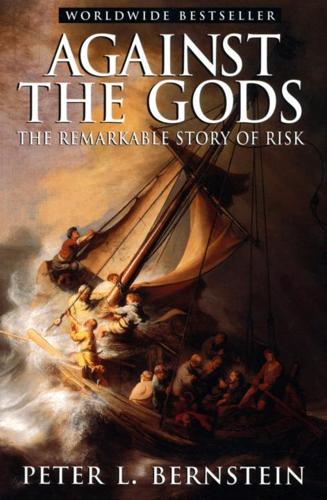
Against the Gods: The Remarkable Story of Risk
by
Peter L. Bernstein
Published 23 Aug 1996
The Emergence of Probability: A Philosophical Study of Early Ideas about Probability, Induction, and Statistical Inference. London: Cambridge University Press.* Hald, Anders, 1990. A History of Probability & Statistics and Their Applications Before 1750. New York: John Wiley & Sons. Hancock, J. G., and Teevan, R. C., 1964. "Fear of Failure and Risk-Taking Behavior." Journal of Personality, Vol. 32, No. 2, pp. 200-209. Hayano, David M., 1982. Poker Face: The Life and Work of Professional Card Players. Berkeley and Los Angeles: University of California Press. Heilbroner, Robert L., 1995. Visions of the Future. New York: New York Public Library/Oxford University Press.

Autonomous Driving: How the Driverless Revolution Will Change the World
by
Andreas Herrmann
,
Walter Brenner
and
Rupert Stadler
Published 25 Mar 2018
Making mistakes must be allowed and may not mean the end of a career, as is currently often the case. Digital companies thrive on the courage of their employees, on trial and error, and on the urge to try something out time and again, even if one has so far failed. Instead of encouraging a culture of fear of failure, the willingness to take risks must be encouraged so that employees approach digitisation with courage and commitment. (3) Renew the structure The structure of an organisation also plays an important role in mastering the process of transformation. Car manufacturers have a large number of hierarchies, which are named with all kinds of acronyms and resemble bureaucratic institutions rather than start-up companies.
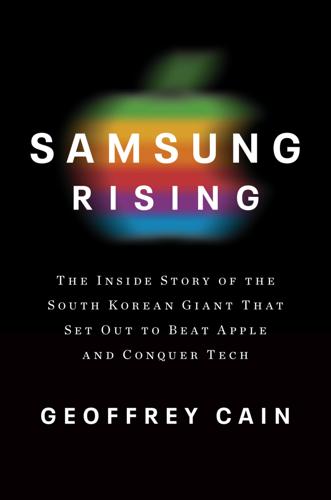
Samsung Rising: The Inside Story of the South Korean Giant That Set Out to Beat Apple and Conquer Tech
by
Geoffrey Cain
Published 15 Mar 2020
The executive, shamed, scorned, and suffering a devastating loss of face, sat down. The CFO then called on another executive. And he proceeded with a similar self-criticism exchange. “It went on for the most painful two hours,” Skarzynski said. Luckily, he was never called on. But the yelling and shaming of employees—this ingrained fear of failure and loss of face—paid off for Samsung in its own way. In his meetings with America’s carriers, K.T. had a chance to show off the progress that he’d made with his phone developers. K.T. and Skarzynski made a pitch to Sprint in 1999 over dinner in Kansas City. K.T. began with a quality-control demonstration.
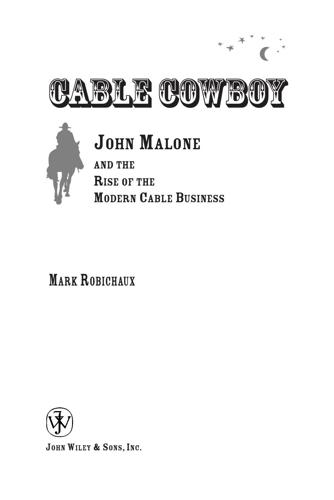
Cable Cowboy
by
Mark Robichaux
Published 19 Oct 2002
“I’m the head of a little pipsqueak company in debt up to its ass, a couple million dollars in revenue, and not creditworthy to borrow from a bank—we’re barely making it,” he thought.3 While he could still see an upside in TCI, the bigger motivator that pulled Malone out of bed in the morning was the fear of failure. If TCI failed, Malone felt, he would lose much more than the company—he would lose the respect of his colleagues, the trust of his family, and perhaps the approval of his father. Magness, in his enthusiasm for cable TV, had gotten carried away in TCI’s acquisition program, and the way out was simple: Stop expanding so quickly.

Emotional Ignorance: Lost and Found in the Science of Emotion
by
Dean Burnett
Published 10 Jan 2023
Conclusions based on flawed, skewed data, which are then applied to real life, can cause serious issues. Especially in areas like medicine, where lives are genuinely in the balance. Scientists know all this. But scientists are also humans, with human brains, so their actions and thinking can be guided by emotions (fear of failure, desire for success, anger at a rival, etc.) as much as by reason and logic. This means that scientists running and observing an experiment can, knowingly or unknowingly,||| influence the outcome, to produce one they want. They introduce observer bias. That’s why scientific methods include things like control groups, randomisation, blinding, and more.99 These exist to prevent the scientists running experiments from acting on their more emotional leanings, and thus spoiling the research.100 And if scientists do manage to publish flawed, self-serving research, but are later found out, they can be stripped of their titles, position, and worse.
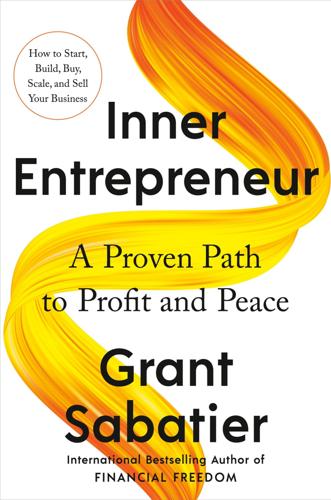
Inner Entrepreneur: A Proven Path to Profit and Peace
by
Grant Sabatier
Published 10 Mar 2025
So many of us go through life doing things because we’re expected to, because we’re comfortable, or because we’ve always done things that way and don’t see a different approach. Even if we aren’t content living this way—even if we know the trade-offs we’re making aren’t worth the results—we continue as we always have because we’re afraid of what might happen when we stop. We get stuck between the fear of failure and the fear of regret. What you spend your time doing and who you spend your time with make up your life. I’m always struck by how many unhappy entrepreneurs I meet. They feel stressed, stuck, and hopeless. The reason is usually pretty clear: they are building a business they think they should build or doing things they see others doing, but they aren’t building their business or life.
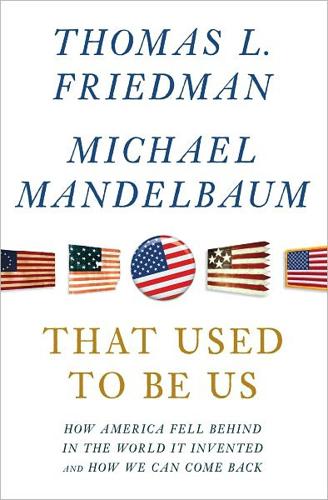
That Used to Be Us
by
Thomas L. Friedman
and
Michael Mandelbaum
Published 1 Sep 2011
“I look at the world and see something I don’t like and my immediate instinct is to say, How can I fix that? I don’t think I have better skill than other people to do that, but I have less fear than other people to go out and do it.” Gross argues that a big part of teaching the creative process at any level involves getting people to overcome their fear of failure and plunge ahead when they have an idea. Who taught him that? “Failure,” says Gross. “We have had one hundred companies over the last twenty years and sixty have succeeded and forty failed, and the failures are where I learned everything. Everybody goes through life and sees things and says, ‘I wish that were this way.’”
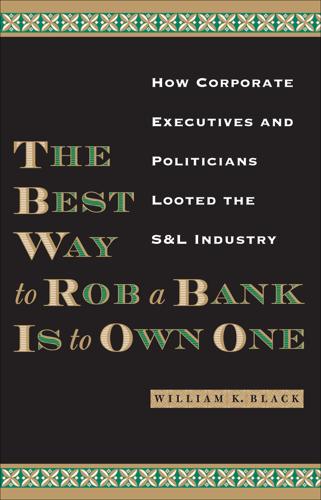
The Best Way to Rob a Bank Is to Own One: How Corporate Executives and Politicians Looted the S&L Industry
by
William K. Black
Published 31 Mar 2005
The worst aspect of control frauds is that they can cluster. The two variants of corporate control fraud, “opportunistic” and “reactive,” can occur in conjunction. Opportunists are looking for an opportunity to commit fraud. Reactive control frauds occur when a business is failing. A CEO who has been honest for decades may react to the fear of failure by engaging in fraud. Economists distinguish between systemic risk that applies generally to an industry and risks that are unique to a particular company. Systemic risks can endanger a regional or even a national economy. Systemic risks pose a danger of creating many control frauds. In the S&L case, the systemic risk in 1979 was to interest rates.
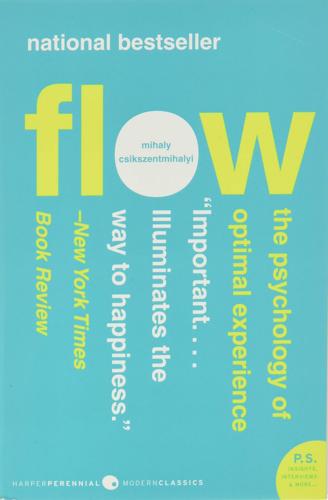
Flow: The Psychology of Optimal Experience
by
Mihaly Csikszentmihalyi
Published 1 Jul 2008
Animals’ skills are always matched to concrete demands because their minds, such as they are, only contain information about what is actually present in the environment in relation to their bodily states, as determined by instinct. So a hungry lion only perceives what will help it to find a gazelle, while a sated lion concentrates fully on the warmth of the sun. Its mind does not weigh possibilities unavailable at the moment; it neither imagines pleasant alternatives, nor is it disturbed by fears of failure. Animals suffer just as we do when their biologically programmed goals are frustrated. They feel the pangs of hunger, pain, and unsatisfied sexual urges. Dogs bred to be friends to man grow distraught when left alone by their masters. But animals other than man are not in a position to be the cause of their own suffering; they are not evolved enough to be able to feel confusion and despair even after all their needs are satisfied.
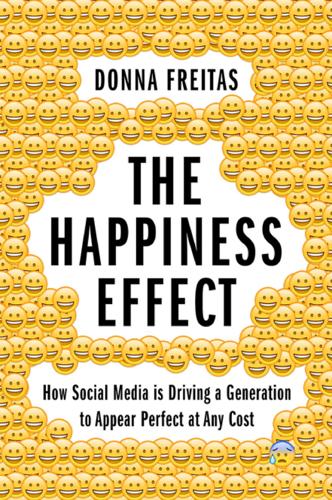
The Happiness Effect: How Social Media Is Driving a Generation to Appear Perfect at Any Cost
by
Donna Freitas
Published 13 Jan 2017
But this can be negative, as well, she says, “because you can spend all your time focusing on how your character is perceived by other people and [wonder constantly] if you are doing the right thing.” Sometimes college students like Lucy become so concerned about not posting anything that could reflect badly on their character that they develop a crippling fear of failure and a concern about “appearing happy” so extreme that it can eventually sound almost pathological. In addition to character, Lucy thinks a lot about online “image.” She doesn’t like that she thinks about this at all—it seems somehow that “you’re not being fully truthful,” she says, to be so concerned about it.

The Billionaire and the Mechanic: How Larry Ellison and a Car Mechanic Teamed Up to Win Sailing's Greatest Race, the Americas Cup, Twice
by
Julian Guthrie
Published 31 Mar 2014
The events of September 11 had given Larry a new enemy, one that didn’t race yachts. To be sure, whenever Larry felt remotely close to being at risk of failure he couldn’t stop working. And now everything—his country, his business—seemed at risk. Like most overachievers, he was driven not so much by the pursuit of success as the fear of failure. He didn’t build Oracle so he could be richer than Bill Gates. Instead, it was all about Oracle beating Microsoft. He was part of Team Oracle and he wanted his team to defeat every rival. One thing that became more important to Larry after September 11, he told Erkelens, was a certain number for his second America’s Cup boat.
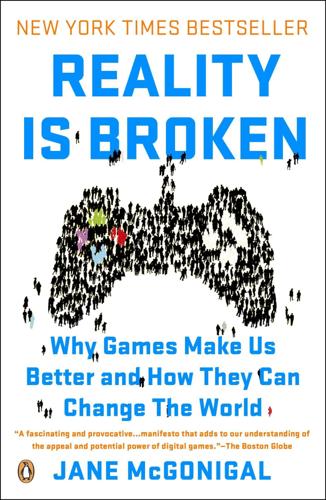
Reality Is Broken: Why Games Make Us Better and How They Can Change the World
by
Jane McGonigal
Published 20 Jan 2011
The trick is simple, but the effect is powerful: you have to show players their own power in the game world, and if possible elicit a smile or a laugh. As long as our failure is interesting, we will keep trying—and remain hopeful that we will succeed eventually. Which gives us our next fix for reality: FIX #4: BETTER HOPE OF SUCCESS Compared with games, reality is hopeless. Games eliminate our fear of failure and improve our chances for success. In many cases, that hope of success is more exciting than success itself. Success is pleasurable, but it leaves us at a loss for something interesting to do. If we fail, and if we can try again, then we still have a mission. Winning tends to end the fun.
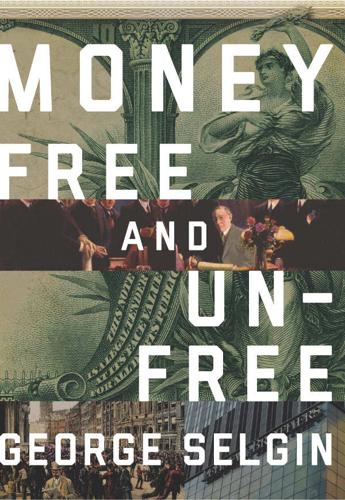
Money Free and Unfree
by
George A. Selgin
Published 14 Jun 2017
Such failures should not have to be regretted, though. On the contrary, in banking as in other industries, failures are needed to discipline and weed out bad managers; furthermore, if they lead to takeovers (or if banks are well capitalized), isolated failures need not cause bank customers to suffer large losses. The great fear of failure that affects regulatory authorities today reflects the widespread belief that failures, instead of being limited to poorly managed banks, will have undesirable “third-party” effects, causing panic to spread indiscriminately to other banks in the system. Indeed, a lender of last resort is needed only when such “contagion, spillover, or domino effects” threaten “the stability of the entire monetary system” (Humphrey and Keleher 1984: 278), for otherwise runs and failures at one or several depository institutions would result in a transfer of funds to others, strengthening rather than weakening the latter.
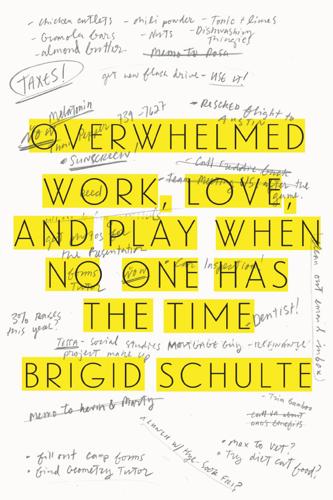
Overwhelmed: Work, Love, and Play When No One Has the Time
by
Brigid Schulte
Published 11 Mar 2014
• Understand the neuroscience of how humans work best: pulsing between periods of intense concentration of typically no more than ninety mintues, and breaks to completely change the channel. • Embrace the restorative power of vacation. Allow knowledge workers to daydream or noodle around with an idea without fear of failure. • Draw on the science of human motivation first by giving workers a fair salary and benefits, then allowing them to have greater autonomy, a sense of purpose, and the ability to become masterful at what they do. • Working in a new way does not mean working less. It means working smart. It means a healthier work environment and healthier employees, reduced health-care costs, reduced turnover costs, and reduced absenteeism.

The Brain That Changes Itself: Stories of Personal Triumph From the Frontiers of Brain Science
by
Norman Doidge
Published 15 Mar 2007
For a long time I mistakenly thought his problems were based primarily on psychological conflicts, such as a fear of competition, and buried conflicts about surpassing his parents and siblings. Such conflicts did exist and did hold him back. But I came to see that his conflict about learning—his wish to avoid it—was based mostly on years of frustration and on a very legitimate fear of failure based on his brain’s limits. Once he was liberated from his difficulties by Arrowsmith’s exercises, his innate love of learning emerged full force. The irony of this new discovery is that for hundreds of years educators did seem to sense that children’s brains had to be built up through exercises of increasing difficulty that strengthened brain functions.

Make Your Own Job: How the Entrepreneurial Work Ethic Exhausted America
by
Erik Baker
Published 13 Jan 2025
Scott, Wal-Mart: A History of Sam Walton’s Retail Phenomenon (New York: Twayne Publishers, 1994); Nelson Lichtenstein, The Retail Revolution: How Wal-Mart Created a Brave New World of Business (New York: Henry Holt and Company, 2009); and Moreton, God and Wal-Mart. 19Reier, “CEO of the Decade: Sam M. Walton,” 56; Les Gilbert, “Wal-Mart’s Road to Riches: Bold Managers without Fear of Failure Set Course,” HFD—The Weekly Home Furnishings Newspaper 62, no. 46 (November 14, 1988). 20Sam Walton with John Huey, Made in America: My Story (New York: Doubleday, 1992), xiii. 21Vance and Scott, Wal-Mart, ch. 3. 22Stephen Taub, “Gold Winner: Sam M. Walton of Wal-Mart Stores Takes the Top Prize,” Financial World, April 15, 1986, 32; Walton, Made in America, 159–162; Vance and Scott, Wal-Mart, 102; Isadore Barmash, “The Hot Ticket in Retailing,” New York Times, July 1, 1984; Lynda Schuster, “Wal-Mart Chief’s Enthusiastic Approach Infects Employes, Keeps Retailer Growing,” Wall Street Journal, April 20, 1981, 21. 23Moreton, God and Wal-Mart, ch. 9; Vance and Scott, Wal-Mart, 104.

The Social Animal: The Hidden Sources of Love, Character, and Achievement
by
David Brooks
Published 8 Mar 2011
In the morning she’d stare at furious scribbles she had written to herself the night before, completely unable to decipher them. She did things she never thought she would do—cold-calling potential clients and then silently swallowing their dismissive disdain. She’d started this business with dreams of success, but once it was under way she was primarily motivated by fear of failure. It was the thought of the looks she would get from friends and colleagues if her business failed that drove her onward. It was the prospect of having to tell her mother that she’d gone bankrupt. She’d been a driven person since the Academy, but now she became a detail fanatic. She presented potential clients with little binders of her ideas and proposals.

ZeroMQ
by
Pieter Hintjens
Published 12 Mar 2013
Jealousy We’re jealous of others, which means we’ll overcome our stupidity and laziness to prove others wrong and beat them in competition. The architecture thus has to create space for public competition based on fair rules that anyone can understand. Fear We’re unwilling to take risks, especially if they might make us look stupid. Fear of failure is a major reason people conform and follow the group in mass stupidity. The architecture should make silent experimentation easy and cheap, giving people opportunities for success without punishing failure. Reciprocity We’ll pay extra in terms of hard work, even money, to punish cheats and enforce fair rules.

How to Make a Spaceship: A Band of Renegades, an Epic Race, and the Birth of Private Spaceflight
by
Julian Guthrie
Published 19 Sep 2016
The men moved forward, but were still sparring like prizefighters heading to the ring. Peter whispered to an aide that he wanted the two separated on the bus. Goldin told Burt that he wanted NASA to experiment with different approaches. Failure was a “way out of mediocrity,” Goldin said loudly. Fear of failure “would keep America grounded,” and expecting perfection was “unfair to the wonderful people at NASA.” Burt shook his head. “You’ve got a budget of fourteen billion dollars. Why don’t you take the money NASA spends on coffee at its centers and do what the XPRIZE people are trying to do? Why don’t you take one percent of that, or a half a percent—you wouldn’t miss it—and just throw it out there for someone to do this stuff?
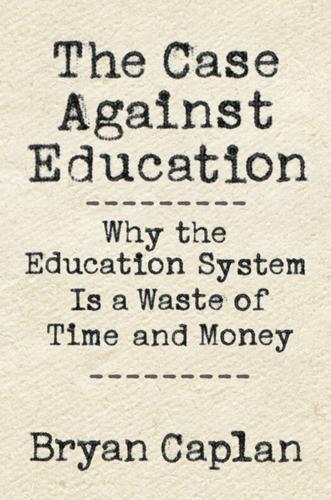
The Case Against Education: Why the Education System Is a Waste of Time and Money
by
Bryan Caplan
Published 16 Jan 2018
Correcting for AFQT, self-esteem, and fatalism (belief about the importance of luck versus effort) reduces the education premium by a total of 30%.13 The sole study correcting for detailed personality tests finds the education premium falls 13%.14 The highest serious estimate says that once you correct for intelligence and background, correcting for attitudes (such as fear of failure, personal efficacy, and trust) and personal behavior (such as church attendance, television viewing, and cleanliness) further cuts the education premium by 37%.15 There are admittedly two big reasons to mistrust these basic results: reverse causation and missing abilities. The former could systematically overstate the severity of ability bias.
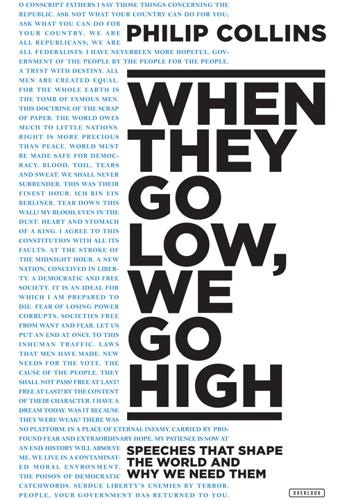
When They Go Low, We Go High: Speeches That Shape the World – and Why We Need Them
by
Philip Collins
Published 4 Oct 2017
While evoking her father for the standing he offers in her country, and stressing the continuity of aim, she nevertheless signals a break with him here. Within a system which denies the existence of basic human rights, fear tends to be the order of the day. Fear of imprisonment, fear of torture, fear of death, fear of losing friends, family, property or means of livelihood, fear of poverty, fear of isolation, fear of failure. A most insidious form of fear is that which masquerades as common sense or even wisdom, condemning as foolish, reckless, insignificant or futile the small, daily acts of courage which help to preserve man’s self-respect and inherent human dignity. It is not easy for a people conditioned by fear under the iron rule of the principle that might is right to free themselves from the enervating miasma of fear.

The Ice at the End of the World: An Epic Journey Into Greenland's Buried Past and Our Perilous Future
by
Jon Gertner
Published 10 Jun 2019
* * * — Like Fridtjof Nansen before him, Peary eventually wrote an account of his adventures on the Greenland ice. It was an effort to explain the challenges he’d experienced during his first few trips to the Arctic, while glossing over its discomforts, interpersonal tensions, and his private fear of failure.17 Like Nansen’s account, Peary’s drew heavily on his own journals and was published in two volumes; it was well over one thousand pages in length and included long digressions on Inuit culture, sledges, weather, food, and equipment. It is perhaps unsurprising that each man’s personality comes across in his prose.
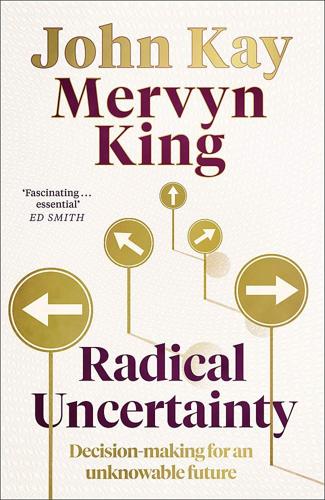
Radical Uncertainty: Decision-Making for an Unknowable Future
by
Mervyn King
and
John Kay
Published 5 Mar 2020
The exhilaration mixed with trepidation as the mountain climber tackles the notorious (Sir Edmund) Hillary step, the last major obstacle in the ascent of Everest. The complex mixture of feelings experienced by Fermi and his Los Alamos colleagues as they awaited the first nuclear explosion in the New Mexico desert. As we take the Hillary step (neither of us has or intends to) there is the present fear of failure, or worse, and the prospective exhilaration of reaching the summit. Fermi and his colleagues experienced one set of emotions as they set in train events of literally world-shaking significance, and expected another when they knew the outcome. Risk is something all of us feel emotionally, and we will see in chapter 9 that there are good evolutionary reasons for this.

The Sullivanians: Sex, Psychotherapy, and the Wild Life of an American Commune
by
Alexander Stille
Published 19 Jun 2023
Laing described the family as “a protection racket” in which parents offered security and protection in exchange for obedience and conformity. In his popular 1967 book, The Politics of Experience, Laing wrote: The family’s function is to repress Eros: to induce a false consciousness of security; to deny death by avoiding life … to promote respect, conformity, obedience; to con children out of play; to induce a fear of failure; to promote respect for work; to promote a respect for “respectability.” The family is, in the first place, the usual instrument for what is called socialization, that is, getting each new recruit to the human race to behave and experience in substantially the same way as those who have already got here.
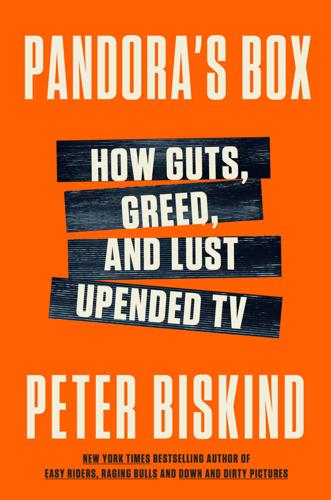
Pandora's Box: How Guts, Guile, and Greed Upended TV
by
Peter Biskind
Published 6 Nov 2023
And as long as people are deeply passionate about them, they would start to ripple outwards and resonate with wider audiences.”41 Like HBO and Netflix in their infancies, Amazon was network averse. “We hired no one from the broadcast networks,” Price continues. “Game-changing shows are rule-breaking shows. If they’re too safe, nobody’s going to care. They had to be different. They had to be new. If there’s no fear of failure, then you should not be ordering the show because it’s going to be a down-the-middle series that would work on NBC.”42 Says Hope, “Roy really wanted bold movies. What pulled me in was the promise of mid-budget films where excellence is the goal.”43 Leaning on quality instead of quantity, originality rather than the tried and true, might have sounded like a death wish, but it had worked for HBO, and the Amazon mothership up north was so flush with dollars—it would generate $321.8 billion in net sales in 2020—that it had a distinct advantage over Netflix.

The Land of Hope and Fear: Israel's Battle for Its Inner Soul
by
Isabel Kershner
Published 16 May 2023
But the army proved adaptable—and Israeli—enough to embrace the start-up culture and encourage a freewheeling, trial-and-error approach. The youthful savvy of the recruits, the typically Israeli yihye be’seder (it’ll be okay) attitude toward calculated risk, the knack for improvisation, and the lack of fear of failure all helped turn the IDF into a national high-tech incubator with premier offensive and defensive cyber capabilities and digital connectivity among its fighting forces, a powerful force multiplier in a world where war was increasingly fought on screens. Like much of the world, small Israel could not compete with China or India when it came to the sheer quantity of engineering graduates.
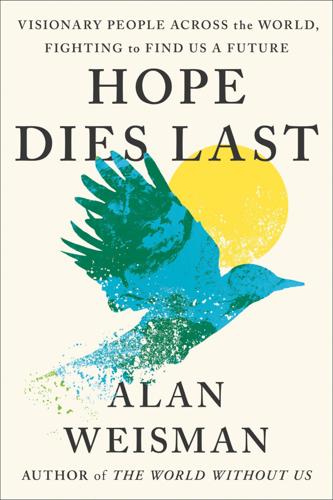
Hope Dies Last: Visionary People Across the World, Fighting to Find Us a Future
by
Alan Weisman
Published 21 Apr 2025
Just 70, still with a full head of hair, Bardaglio wasn’t expecting his body to suddenly betray him. “It was sad,” he adds, “to watch Luis encounter such active opposition, especially around his ethnic identity. But I think the resistance to him was more fear that Ithaca wasn’t going to be able to deliver, and all that attention would backfire.” If fear of failure stalls action, failure is guaranteed. “A classic instance of a self-fulfilling prophecy,” says Bardaglio, sighing, especially troubling when it involves a failure to face how to survive the climate we’ve inadvertently broken. Still, a year after Luis’s departure, they’d made some headway. Nearly a dozen buildings were ready for the fuel-free future: An ice cream store with geothermal heat pumps, LED lighting, new windows, and solar photovoltaic panels on the roof.

Melody Beattie 4 Title Bundle: Codependent No More and 3 Other Best Sellers by Melody Beattie: A Collection of Four Melody Beattie Best Sellers
by
Melody Beattie
Published 30 May 2010
The more experiments you make the better. What if they are a little coarse, and you may get your coat soiled or torn? What if you do fail, and get fairly rolled in the dirt once or twice? Up again; you shall never be so afraid of a tumble. —Ralph Waldo Emerson Fear can be a big stopper for many of us: fear of fragility, fear of failure, fear of making a mistake, fear of what others might think, fear of success. We may second-guess our next action or word until we talk ourselves out of participating in life. “But I failed before!” “I can’t do it good enough!” “Look at what happened last time!” “What if…?” These statements may disguise fear.
…
The goal of recovery is to live, learn our lessons, and make overall progress. Take a risk. Do not always wait for a guarantee. We don’t have to listen to “I told you so.” Dust yourself off after a mistake, and then move on to the success. God, help me begin to take healthy risks. Help me let go of my fear of failure, and help me let go of my fear of success. Help me let go of my fear of fully living my life, and help me start experiencing all parts of this journey. Self-Love: May 16 “I woke up this morning and I had a hard time for a while,” said one recovering man. “Then I realized it was because I wasn’t liking myself very much.”
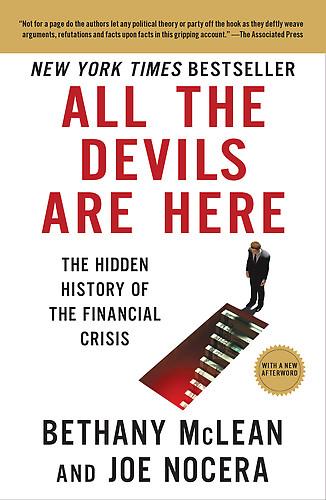
All the Devils Are Here
by
Bethany McLean
Published 19 Oct 2010
As he later related in his memoir, when he first got the call from the White House in the spring of 2006, he agreed to a meeting with the president, but then quickly canceled when John Rogers, the firm’s veteran Washington hand, told him that going to the meeting was tantamount to accepting the offer. Having been through several ineffectual Treasury secretaries, Bush wanted Paulson badly, largely because his Goldman Sachs credential gave him a stature his predecessors had lacked. Paulson was initially deterred by “fear of failure, fear of the unknown,” he later wrote. But he finally said yes. “I didn’t want to look back and have been asked to serve my country and declined,” he later explained. “So I just took the plunge.” He did so after getting an unprecedented agreement from Bush that he would have real power: regular access to the president, on a par with the secretaries of State and Defense, and the ability to bring in his own people.
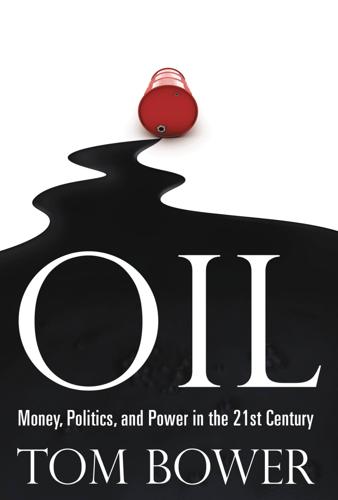
Oil: Money, Politics, and Power in the 21st Century
by
Tom Bower
Published 1 Jan 2009
Smart technology that enabled drills to turn corners in rocks miles beneath the surface could be relied upon to produce more oil, and oil’s contribution to industrial production was diminishing. Raymond’s sense of certainty enhanced Exxon’s stature. He and Rex Tillerson were guided by their desire to satisfy their shareholders. They appeared to have no fear of failure. Exxon’s reserves, compared to those of their competitors, were enormous. “Lots of molecules” was a familiar Exxon boast. Convinced that Exxon’s balance sheet could withstand any cycle, Tillerson asserted, “We’ll be the last one standing.” The volatility of prices during the 1990s had convinced Raymond that Exxon should continue on its own terms, without departing from its preordained systematic process.
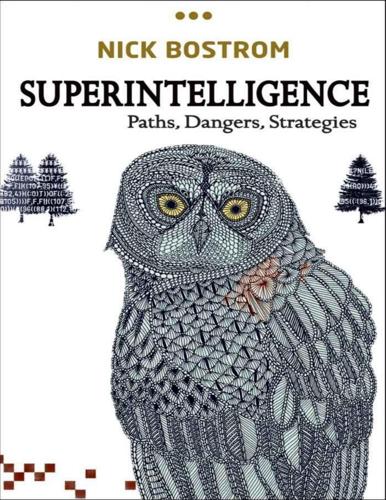
Superintelligence: Paths, Dangers, Strategies
by
Nick Bostrom
Published 3 Jun 2014
The simplest forms of genetic selection, however, could largely abrogate the need for such testing, since they would use standard fertility treatment techniques and genetic information to choose between embryos that might otherwise have been selected by chance. Delays could also result from obstacles rooted not in a fear of failure (demand for safety testing) but in fear of success—demand for regulation driven by concerns about the moral permissibility of genetic selection or its wider social implications. Such concerns are likely to be more influential in some countries than in others, owing to differing cultural, historical, and religious contexts.
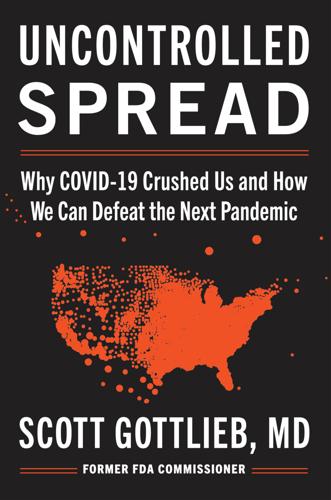
Uncontrolled Spread: Why COVID-19 Crushed Us and How We Can Defeat the Next Pandemic
by
Scott Gottlieb
Published 20 Sep 2021
“Perfection is the enemy of the good when it comes to emergency management,” he said. “Speed trumps perfection, and the problem in society we have at the moment is everyone is afraid of making a mistake, everyone is afraid of the consequence of error. But the greatest error is not to move. The greatest error is to be paralyzed by the fear of failure.”21 The stay-at-home order was critical to stem the spread in New York, but investigations would later show that the measures were applied too slowly, contributing to the city’s devastating death toll.22 For a period of time, the New York hospitals became a COVID-only healthcare system, barely able to handle medical emergencies like heart attacks and strokes.
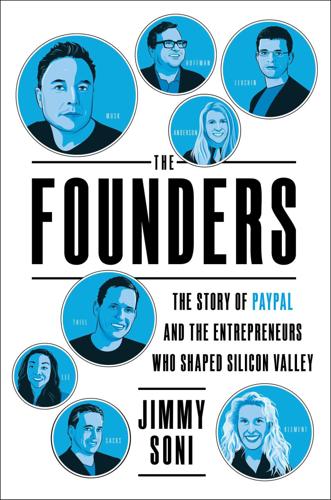
The Founders: The Story of Paypal and the Entrepreneurs Who Shaped Silicon Valley
by
Jimmy Soni
Published 22 Feb 2022
“Those that bring the big ideas into hard, unpredictable reality are the practitioners, the high-leverage ones, and I admire them almost without reservation,” Max Levchin wrote on a personal blog, years after PayPal. “One key ingredient of being this kind of a person is an almost irrational lack of fear of failure and irrational optimism, but there is a more tactical side there too: they manage to not get caught up in all the little details… while being remarkably aware of the really important ones.” By that point in his life, Max Levchin had ushered several ideas into “hard, unpredictable reality.” And yet, he ended with an earnest request for advice: “There must be many more essential ingredients to being high-leverage.
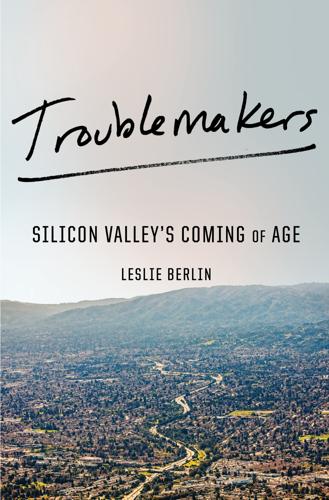
Troublemakers: Silicon Valley's Coming of Age
by
Leslie Berlin
Published 7 Nov 2017
Bristow concurs: “The thinking moved from ‘We don’t know what we can do, so let’s give it a try’ to ‘You need to prove why you need to do this new product.’ ” Decades later, Alcorn still cannot understand why, at a time when Atari’s revenues were so high that it would have made no discernible difference to the bottom line if the Cosmos hologram system failed, Kassar was unwilling to risk its release. Kassar and the rest of the Warner executive team, in Alcorn’s estimation, were paralyzed by “the fear of failure”: “They weren’t Silicon Valley, they weren’t start-up guys, they were not risk takers—so nothing came out!”55 Even more important than Kassar’s East Coast roots, however, was his lack of technical background. He was a marketing expert who believed, correctly, that much of the success of the VCS had come from the marketing push behind it.
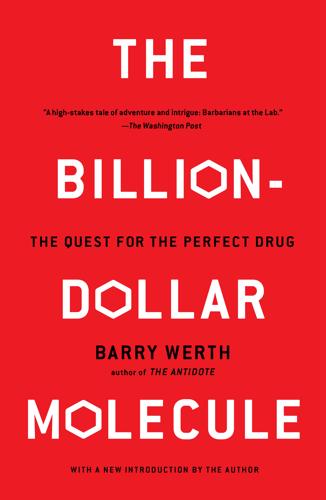
The Billion-Dollar Molecule
by
Barry Werth
The chemical pathway that included FKBP remained unknown, and it was still uncertain what the protein did besides help other proteins invert themselves. If Thomson’s second constituent bound chemically to FKBP and if it was new, he conceivably had a molecule as important, as rewarding, as FKBP. This and a fear of failure to equal Starzl’s kept Thomson from relaxing his pace. Thomson now moved into the lab altogether. He abandoned the waist-high stack of take-out pizza boxes in his apartment and a refrigerator empty but for the world’s supply of fetal eye lens protein and some beer and began those experiments that would delicately tear his two molecules from their embrace.

Aftershocks: Pandemic Politics and the End of the Old International Order
by
Colin Kahl
and
Thomas Wright
Published 23 Aug 2021
South Korea suffered more cases than any nation outside Saudi Arabia and had thirty-six deaths. Consequently, the government rewrote its public health laws and implemented sweeping legislation, embracing a “test, trace, and isolate” mantra to deal with future pandemics. The Wall Street Journal would later attribute South Korea’s success in containing COVID-19 to “a constant fear of failure.”41 As the threat from the novel coronavirus grew, South Korea was quick to translate these plans into action. Less than a week after its first case of COVID-19, health officials met with twenty medical and pharmaceutical companies to jump-start the production and approval of test kits. About two weeks later, on February 4, the government approved and distributed test kits capable of producing results in six hours.
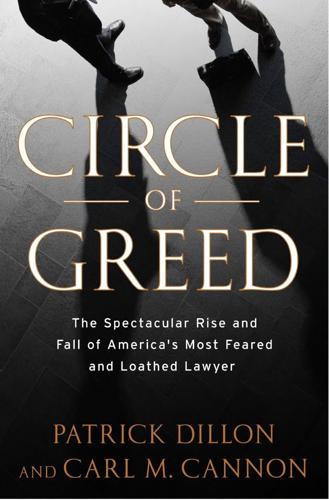
Circle of Greed: The Spectacular Rise and Fall of the Lawyer Who Brought Corporate America to Its Knees
by
Patrick Dillon
and
Carl M. Cannon
Published 2 Mar 2010
“Nineteen of the thirty largest companies in the Silicon Valley have been sued since 1988, with an aggregate settlement value of $500 million … This explosion in speculative litigation has led to less disclosure, not more; companies pursuing more expensive capital rather than the public corporation route; companies hesitant to introduce new drugs and new technologies for fear of failure and the resultant filing of a class action lawsuit.” Following House procedures, Fields yielded the microphone to Representative Edward Markey of Massachusetts, the ranking Democrat on the subcommittee, who invoked a different set of horrors—those perpetrated by corporations—and warned that if the legislation was rushed to the floor, as Republicans seemed hell-bent on doing, Congress would be “tilting the scales of justice sharply” away from the little guy and in favor of heartless corporations that sought profit above all else.

The Big Score
by
Michael S. Malone
Published 20 Jul 2021
But soon after Sanders arrived, “Don moved in three guys at my level. Marshall Cox, Bernie Marren, and Jim Martin,” all of whom at one time or another had worked for Sanders. “I thought that was pretty bum and unfair…” But Valentine, “a master of manipulation,” took advantage of Sanders’s huge ego and fear of failure to keep him on the job. Adding to the pressure, Sanders’s home in the Hollywood Hills refused to sell for a year—forcing him to continue to make payments on the place while renting another house in Silicon Valley. Exacerbating this financial strain, of course, was Sanders’s undying talent for living beyond his means.
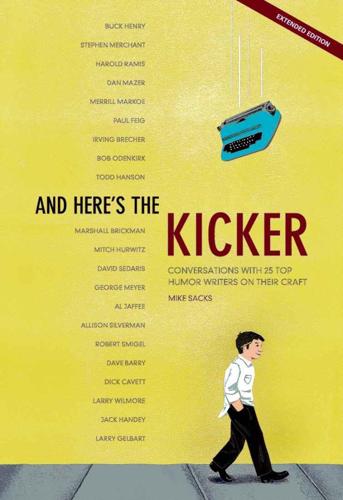
And Here's the Kicker: Conversations with 21 Top Humor Writers on Their Craft
by
Mike Sacks
Published 8 Jul 2009
They were more than true. Anyway, I said, “Mr. Berle, you wanted me to bring some jokes —” “— Yeah, yeah, yeah,” he said. “Whatcha got?” I handed him my gags, and he told me to wait a minute. He closed the door, and I just stood there. I can't tell you what I was feeling — but it was mainly terror and worry. Also, fear of failure. I was really petrified. About five minutes later, he opened the door again. Now he's wearing a bathrobe, and he said, “Some of these jokes are pretty good, so I'll tell you what. You know where the Park Central hotel is? It's six blocks away. Run there, and go up to an office on the second floor where my agent works.
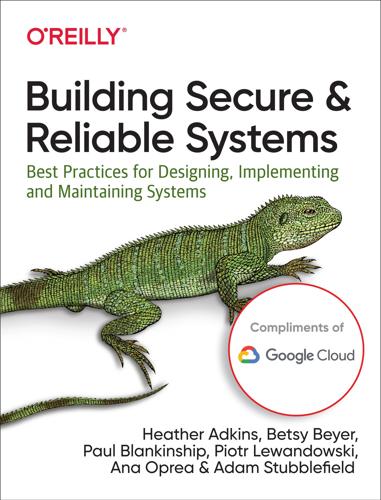
Building Secure and Reliable Systems: Best Practices for Designing, Implementing, and Maintaining Systems
by
Heather Adkins
,
Betsy Beyer
,
Paul Blankinship
,
Ana Oprea
,
Piotr Lewandowski
and
Adam Stubblefield
Published 29 Mar 2020
Incident response skills are effective only when you use them regularly, so it’s a good idea to use exercises such as tabletops, Red Team attacks, hands-on recovery tests, and disaster role playing to test and refine your organization’s processes. Organizations that embrace the inevitable also study any failures that do occur, including within their peer groups. Internally, they use blameless postmortems—discussed in Chapter 18 of this book and in Chapter 15 of the SRE book—to reduce the fear of failure and build confidence that repeated events will be unlikely. They also make use of after-action reports published by other organizations, both within and outside of their industry. These reports provide a broader understanding of failure scenarios that may be relevant to the organization. Using Related Case Studies In 2003, NASA convened the Columbia Disaster Investigation Board, which aimed to understand the root causes of the Space Shuttle Columbia incident.9 The final report is a useful example of how an organization can study the underpinnings of failure to effect significant changes that contribute to a culture of safety and reliability.

Back to Blood
by
Tom Wolfe
Published 1 Jan 2012
Norman went on about it in tones of socially religious awe. Oh, he was excited, too, Norman was, but not even remotely the way she was. Sometimes her heart literally, literally, beat faster just thinking about it… which is to say, about Sergei. She could actually feel it speed up beneath her breastbone from fear of failure in his eyes… What should she wear? She didn’t possess one thread of clothing that could possibly impress these Chez Toi people… or him. She’d just have to go à la cubana… flash plenty of cubana cleavage… turn her eye sockets into nightclub-black pools with two gleaming orbs floating in them… have her long hair cascading down to her shoulders as full-bodied as she and Fructis shampoo, conditioner, and a Conair hair dryer could possibly manage… turn her dress, any dress, into nothing but a sheet of Cling Wrap around her breasts, her waist, her hips, her “butt,” and her upper thighs… only the upper thighs… at least eighteen inches above the knee… She’ll lift this whole production up close to six inches on stiletto heels.
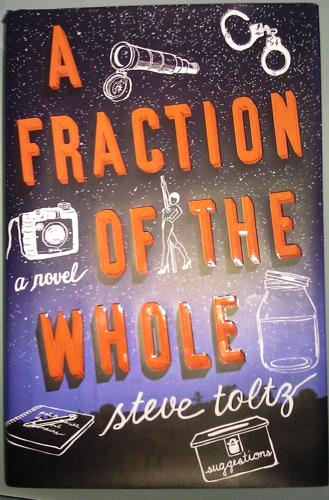
A Fraction of the Whole
by
Steve Toltz
Published 12 Feb 2008
It was two a.m. when Terry Dean stumbled into the emergency room with a penknife stuck in the small of his back at such an awkward angle he couldn't remove it himself. As Eddie pulled out the knife, Terry's open and candid manner, combined with the late-night silence of the graveyard shift, made Eddie confide to his patient his confused feelings--how it felt to be torn between disgust and duty, between obligation and the fear of failure. Basically, Eddie moaned: did he want to be a fucking doctor or didn't he? He admitted that he loathed the idea and it would in all probability drive him to suicide, but how could he get out of it now? How else could he make money? Terry listened sympathetically, and on the spot offered him a high-paying though unusual job: traveling the world and watching over his brother with the aim of helping him out when he needed it.

Look Homeward, Angel
by
Thomas Wolfe
Published 9 Oct 2006
He was like a sailor drowned within the hold, who gropes to life and morning through a hatch; a diver twined desperately in octopal feelers, who cuts himself from death and mounts slowly from the sea-floor into light. Within a month a thick hummock of muscle hardened on his shoulder: he bent jubilantly into his work. He had now no fear of failure. His heart lifted like a proud crested cock. He had been dropped among others without favor, and he surpassed them. He was a lord of darkness; he exulted in the lonely sufficiency of his work. He walked into the sprawled chaos of the settlement, the rifleman of news for sleeping men. His fast hands blocked the crackling sheet, he swung his lean arm like a whip.

The Wealth of Networks: How Social Production Transforms Markets and Freedom
by
Yochai Benkler
Published 14 May 2006
An Atlanta Journal-Constitution story, entitled "Georgia Puts Trust in Electronic Voting, Critics Fret about Absence of Paper Trails," 65 is not atypical of coverage at the time, which generally reported criticism by computer engineers, but conveyed an overall soothing message about the efficacy of the machines and about efforts by officials and companies to make sure that all would be well. The New York Times report of the Georgia effort did not even mention the critics. 66 The Washington Post reported on the fears of failure with the newness of the machines, but emphasized the extensive efforts that the manufacturer, Diebold, was making to train election officials and to have hundreds of technicians available to respond to failure. 67 After the election, the Atlanta Journal-Constitution reported that the touch-screen machines were a hit, burying in the text any references to machines that highlighted the wrong candidates or the long lines at the booths, while the Washington Post highlighted long lines in one Maryland county, but smooth operation elsewhere.
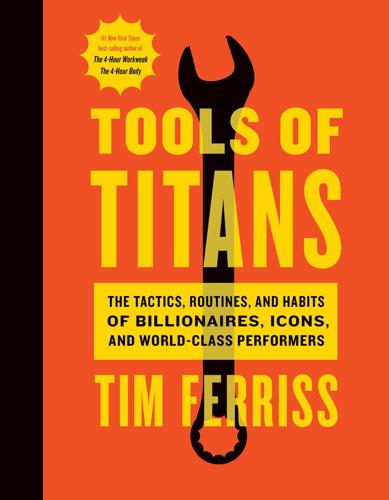
Tools of Titans: The Tactics, Routines, and Habits of Billionaires, Icons, and World-Class Performers
by
Timothy Ferriss
Published 6 Dec 2016
He was a little indignant about that. Now, I try to put love in my meals when I cook. “The second was to make it colorful. . . . It’s very hard for me to do. Everything was kind of gray. And the third was to have three set meals that you make.” Pride Can Be a Tool “For me, pride worked because my fear of failure was way greater than my fear of fire. I didn’t often feel fear of fire, to be totally frank. I’m not trying to pretend I’m so brave. It’s just that I had a bigger fear—humiliation, failure, letting down women. Pride can be a really great motivator.” ✸ A book to give every graduating college student?
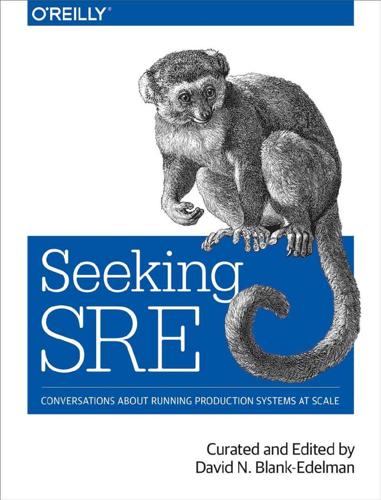
Seeking SRE: Conversations About Running Production Systems at Scale
by
David N. Blank-Edelman
Published 16 Sep 2018
There are lots of examples of games in computing education in recent times, including Regex Golf, in which players write regular expressions to match given inputs accurately, and Deadlock Empire, in which the players attempt to reveal concurrency problems by acting as a scheduler. Games are effective learning tools because people enjoy them. They are a way to get effortlessly into a flow without fear of failure posing a distraction. They can be social. They have inbuilt and instant feedback, and they have rewards or scoring systems when players get things right. These are all great features of any learning experience. Other forms of active learning exist. Tutorials and discussion groups are a common example.
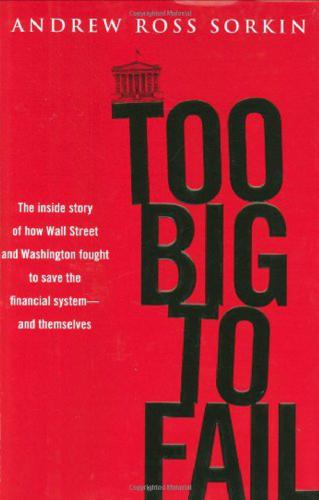
Too big to fail: the inside story of how Wall Street and Washington fought to save the financial system from crisis--and themselves
by
Andrew Ross Sorkin
Published 15 Oct 2009
On the first Sunday afternoon of May, he found himself fretting in his home in Georgetown, wondering whether he had given Paulson bad advice. He finally picked up the phone and called Bolten. “I know Hank told you no,” he told him, “but if the president really wants him, you should ask him again.” When Bolten called and repeated his pitch, Paulson wondered whether his resistance to the overtures was really a matter of a fear of failure. At Goldman he was known as someone who “runs to problems.” Was he now running away from them? Paulson is a devout Christian Scientist and, like most members of the faith, he deeply admires the writings of Mary Baker Eddy, who, seeking to reclaim early Christianity’s focus on healing, founded the First Church of Christ, Scientist, in Boston in 1879.

Gnomon
by
Nick Harkaway
Published 18 Oct 2017
I knew by old habit how to break the picture into parts and so produce something that made sense to someone without my fractured consciousness, and so I did, no longer wrestling with what was in my mind to force it on to the canvas, but inviting it and making space for it. Without the urgency and arrogance of youth, I found I was content to accept its strictures, and without the fear of failure I did not seek to moderate what came, so that the business of art was to some extent a placid and exploratory one – as one might explore a tornado in a glider, if one did not fear for the structure of the plane. In that earlier encounter, I had traced the outline of a grim leviathan in a forest of numbers – to the stark disapproval of the viewing public, who wanted more in the vein of frozen worlds and bikini astronauts – and now I revisited that unloved image, setting the scene in a vast underground commuter tunnel.
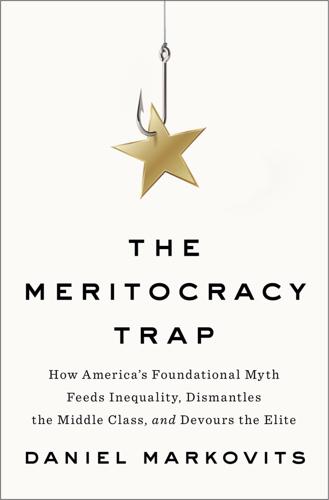
The Meritocracy Trap: How America's Foundational Myth Feeds Inequality, Dismantles the Middle Class, and Devours the Elite
by
Daniel Markovits
Published 14 Sep 2019
If an Ivy League education was once a patina that burnished a carefree hereditary elite, it has become an open scramble to acquire or retain an elite status that must be won and may be lost. Meritocratic education also produces harms that are less measurable, but no less important. A life subsumed by competition infects students with shallow ambitions and deep and pervasive fears of failure. The infection has grown so severe that an entire genre is now devoted to describing it. Critics variously call elite students “very smart” but “completely confused” with “no idea what to do next,” “zombies,” or, in perhaps the most memorable phrase in the genre, “excellent sheep.” When a group of elite professional school students was recently asked who among them would be willing to spend fifteen hours per week on an intrinsically worthless task in order to gain a career advantage, all said that they would and, moreover, expressed surprise at the question.

The Deluge: The Great War, America and the Remaking of the Global Order, 1916-1931
by
Adam Tooze
Published 13 Nov 2014
Not only Stalin, but the Japanese, German and Italian insurgents of the 1930s were impelled in their radical energy by a sense that at their first attempt they had failed. The Western Powers might squabble and prevaricate. Knowing the costs of full-scale war, both political and economic, they shrank from it. But they did not shrink from fear of failure. In a direct confrontation Britain, France and the United States were to be feared. In 1930 at the London Naval Conference, as they traded battleships, cruisers, destroyers and submarines, neither the Russians nor the Germans had a navy to barter with. The positions of Japan and Italy were second and third tier.

Full Catastrophe Living (Revised Edition): Using the Wisdom of Your Body and Mind to Face Stress, Pain, and Illness
by
Jon Kabat-Zinn
Published 23 Sep 2013
They may stem from previous traumas we have experienced, both big-T and little-t traumas, such as having being chronically disregarded and neglected, or outrightly abused, violated, or even tortured. They may arise from feeling pain or from anticipating it, or from being alone, or sick, or disabled. We can fear for someone we love, that he or she may be hurt or killed. We may harbor fears of failure or fears of success, fears of letting other people down, or fears about the fate of the earth. Most of us carry such fears within us. They are always present, but they usually surface only under certain circumstances. Some people handle fearful feelings much better than others do. Commonly, we cope with our fears by ignoring such feelings when they surface, or by denying them altogether, or by concealing them from other people.
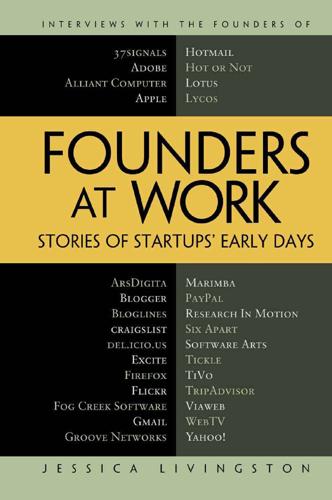
Founders at Work: Stories of Startups' Early Days
by
Jessica Livingston
Published 14 Aug 2008
Not miserly cheap, but cool, bohemian cheap. That’s what we strove for. Livingston: So investors were your biggest worry? Graham: Probably, but I worried about all the different things that could kill us and all the different ways they could kill us. People start startups to get rich, but what keeps them going day to day is the fear of failure. You’ve said, “OK, I’m starting this startup and I’m going to get all the users and be successful,” and once you’ve told everybody that’s what you’re doing, if you fail you’ll look like a fool. So when we did sell the thing finally to Yahoo, in the eyes of the world, because we got bought, we were a success.
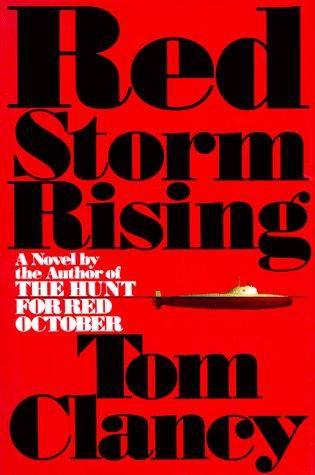
Red Storm Rising
by
Tom Clancy
Published 2 Jan 1986
The cool temperatures and hard physical effort conspired to drain the energy from their bodies as they picked their way around and over the two-thousand-foot hills that dotted the Icelandic coast like so many fence pickets. Several things kept them moving. One was the fear that the Soviet division they had watched airlifted in would expand its perimeter and snap them up. No one relished the thought of captivity under the Russians. But worse than this was fear of failure. They had a mission, and no taskmaster is harsher than one's own self-expectations. Then there was pride. Edwards had to set an example for his men, a principle remembered from Colorado Springs. The Marines, of course, could hardly let a "wing-wiper" outperform them. Thus, without thinking consciously about it, four men contrived to walk themselves into the ground, all in the name of pride.
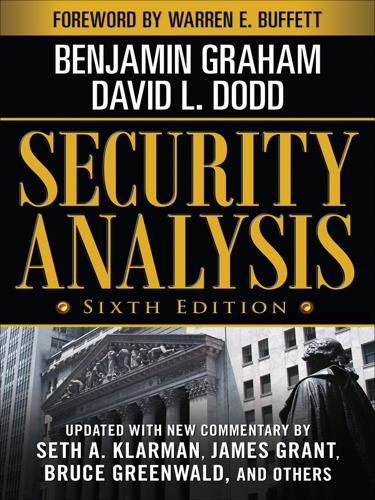
Security Analysis
by
Benjamin Graham
and
David Dodd
Published 1 Jan 1962
I doubt many owners of private companies are preoccupied with the value of their business on a short-term basis—how different from the public markets, where a rising stock price makes us feel smart and a falling one makes us feel dumb. In my office, when one of our businesses is floundering and the stock is getting pounded, my partners and I start to doubt the reasoned basis upon which we made the investment. Our self-doubts and fears of failure cause us to glimpse catastrophe where once we envisioned opportunity. Or if you prefer the Graham and Dodd condensed version: “Obviously it requires strength of character in order to think and act in opposite fashion from the crowd and also patience to wait for opportunities that may be spaced years apart.”

George Marshall: Defender of the Republic
by
David L. Roll
Published 8 Jul 2019
From a room adjoining the kitchen, he heard his brother, who had graduated from VMI in the class of 1894, attempting in vain to persuade his mother that Flicker should not be allowed to attend the Institute because he “would disgrace the family.”8 Stuart was referring to Flicker’s feckless attitude toward school, his shyness, and his fear of failure and rejection. As Marshall recalled later, “The urgency to succeed came from hearing that conversation; it had a psychological effect on my career . . . I decided right then that I was going to wipe [Stuart’s] face, or wipe his eye.”9 Nor would Marshall ever forgive Stuart for the “unkind, unfair remarks” he made about Lily Carter Coles, the flirtatious, titian-haired beauty with whom Marshall fell in love as a senior at VMI, the year he headed his class of thirty-three as First Captain, the highest-ranking cadet.10 In February of 1902, after he had graduated and received his commission in the army, Marshall married Lily in the parlor of the little Gothic cottage at 319 Letcher Avenue near the south Limit Gate of VMI in Lexington, Virginia, where she lived with her widowed mother.

A History of Modern Britain
by
Andrew Marr
Published 2 Jul 2009
Here the high-risk bets were made on the future value of commodities and currencies, in one of the older buildings of the City, the Royal Exchange. Inside its elegant shell roared an atmosphere borrowed straight from Chicago, likened by startled observers at the time to an ill-bred casino. LIFFE would turn out to be very profitable for the traders, the raucous ‘barrow boys’ pumped up on booze, cocaine and fear of failure who became such an emblem of eighties life, many retiring exhausted and vastly rich by their early thirties. It would also be the scene of broken dreams. It was in the derivatives market that old Barings Bank, one of the grander names of the traditional City, lost its money and died. And so to the next question for the City: for how long could the traditional distinction between brokers, dealing with the public, and the jobbers or wholesalers, dealing only with stockbrokers, be maintained?
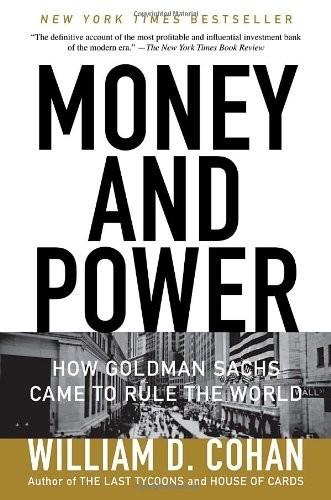
Money and Power: How Goldman Sachs Came to Rule the World
by
William D. Cohan
Published 11 Apr 2011
Whitehead figured Weinberg’s business-getting prowess could not be easily replaced, and he—alone, apparently—was increasingly worried about how the firm would carry on without its “ultimate rainmaker.” Ironically, Whitehead reasoned, “it was apparent that our greatest strength was our greatest weakness.” It was this fear of failure that led Whitehead to devise his plan for a New Business Group—a group of ten or more senior bankers who would fan out across the country and touch base with one large company after another to see what, if anything, Goldman Sachs could do for them. Whitehead’s thinking—Marketing 101, really—was highly Cartesian, logical, and totally radical for Wall Street at the time.

The Art of Computer Programming: Fundamental Algorithms
by
Donald E. Knuth
Published 1 Jan 1974
Several things about this subroutine should be noted: 1) The sentinel constant appears as the 101st word of each buffer, and it makes a convenient test for the end of the buffer. In many applications, however, the sentinel technique will not be reliable, since any word may appear on tape. If we were doing card input, a similar method (with the 17th word of the buffer equal to a sentinel) could always be used without fear of failure; in that case, any negative word could serve as a sentinel, since MIX input from cards always gives nonnegative words. 2) Each buffer contains the address of the other buffer (see lines 07, 11, and 14). This "linking together" facilitates the swapping process. 3) No JBUS instruction was necessary, since the next input was initiated before any word of the previous block was accessed.

State of Emergency: The Way We Were
by
Dominic Sandbrook
Published 29 Sep 2010
Even as manager of England in the mid-1970s, he took football’s spiritual side – such as it was – painfully seriously. ‘I believe it will help you if you pray every night before you go to sleep,’ he told his charges during an early meeting, ‘and ask God to help you become better players.’13 Revie’s fear of failure was rooted in the difficult circumstances of his boyhood. To the young footballers plying their trade in the mid-1970s, with their expensive cars parked outside their neat suburban homes, the Hungry Thirties seemed like ancient history. For Revie, however, they had left a mark that would never fade.

Gorbachev: His Life and Times
by
William Taubman
Something must have happened in my head that night because in the morning I got up and went to school. By the end of the year, I had earned a certificate of merit, and from then on I got ‘distinction.’ ”73 What happened that night was a revealing turning point. For a moment, a sharp shadow of fear—of failure and humiliation—fell across Gorbachev’s growing self-confidence. But then his so often harsh mother again showed her love. After that, Gorbachev began to identify success in life with reading and thinking, and also with leading his peers. “From my earliest days,” he later would say, “I liked to be a leader among my peers—that was my nature.”74 But first he, his fellow pupils, and their teachers had to make the schools usable.
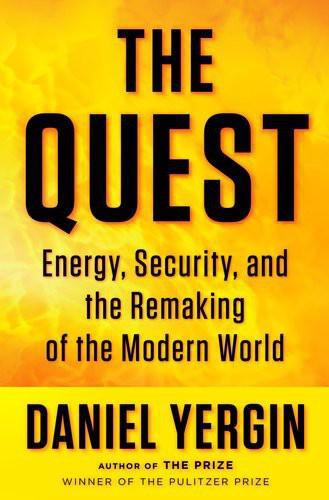
The Quest: Energy, Security, and the Remaking of the Modern World
by
Daniel Yergin
Published 14 May 2011
While in high school, Rickover worked the night shift, from 3:00 to 11:00, at the Western Union telegraph agency. A picture from the 1916 Republican convention in Chicago shows him standing stiffly at attention in his Western Union uniform as he would later stand in his naval uniform. Through a lucky fluke, he won a nomination to the Naval Academy at Annapolis.5 Anxious, fearful of failure, and certainly no athlete—and subject to extra hazing because he was Jewish—Rickover spent every moment he could at the academy studying. He was, as he later put it, “trying to get by, stay alive.” At night when the library closed, he even crammed himself into an unused shower stall to get in extra time with his books.

American Prometheus: The Triumph and Tragedy of J. Robert Oppenheimer
by
Kai Bird
and
Martin J. Sherwin
Published 18 Dec 2007
The once casual college professor now could be seen carefully pinning a classified memo inside his hip pocket so as not to lose it. He even tried to placate the Army security officers, giving them his valuable time and complying with virtually all of their requests. But the pressure of the work, the sensation of being constantly watched, the fear of failure—all of this and more—began to take its toll. At one point in the summer of 1943, Oppenheimer confessed to Robert Bacher that he was thinking of quitting. He felt hounded by the investigations into his past. Besides, he told Bacher, the strain of the job was just too much. After listening to Oppie list his inadequacies, Bacher told him simply, “There isn’t anybody else who can do it.”
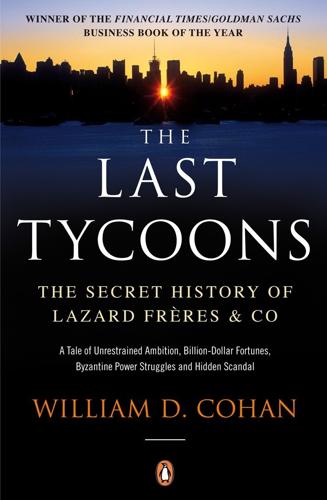
The Last Tycoons: The Secret History of Lazard Frères & Co.
by
William D. Cohan
Published 25 Dec 2015
He then bemoaned as a "major problem for us"--correctly as usual--the firm's complete lack of accountability. "Accountability for partners at Lazard is not a clear concept, or, at least, does not closely track our goals," he continued. "Accountability tends to be perceived as individual in nature and either a negative incentive (fear of failure) or an endorsement of raw personal ambition (to become a hero)." Lazard also had no formal training program for new hires or even anyone who gave much thought to what happened to new employees when they arrived. In this sense, and in many others, the firm was totally Darwinian, a fact Loomis lamented, metaphorically.